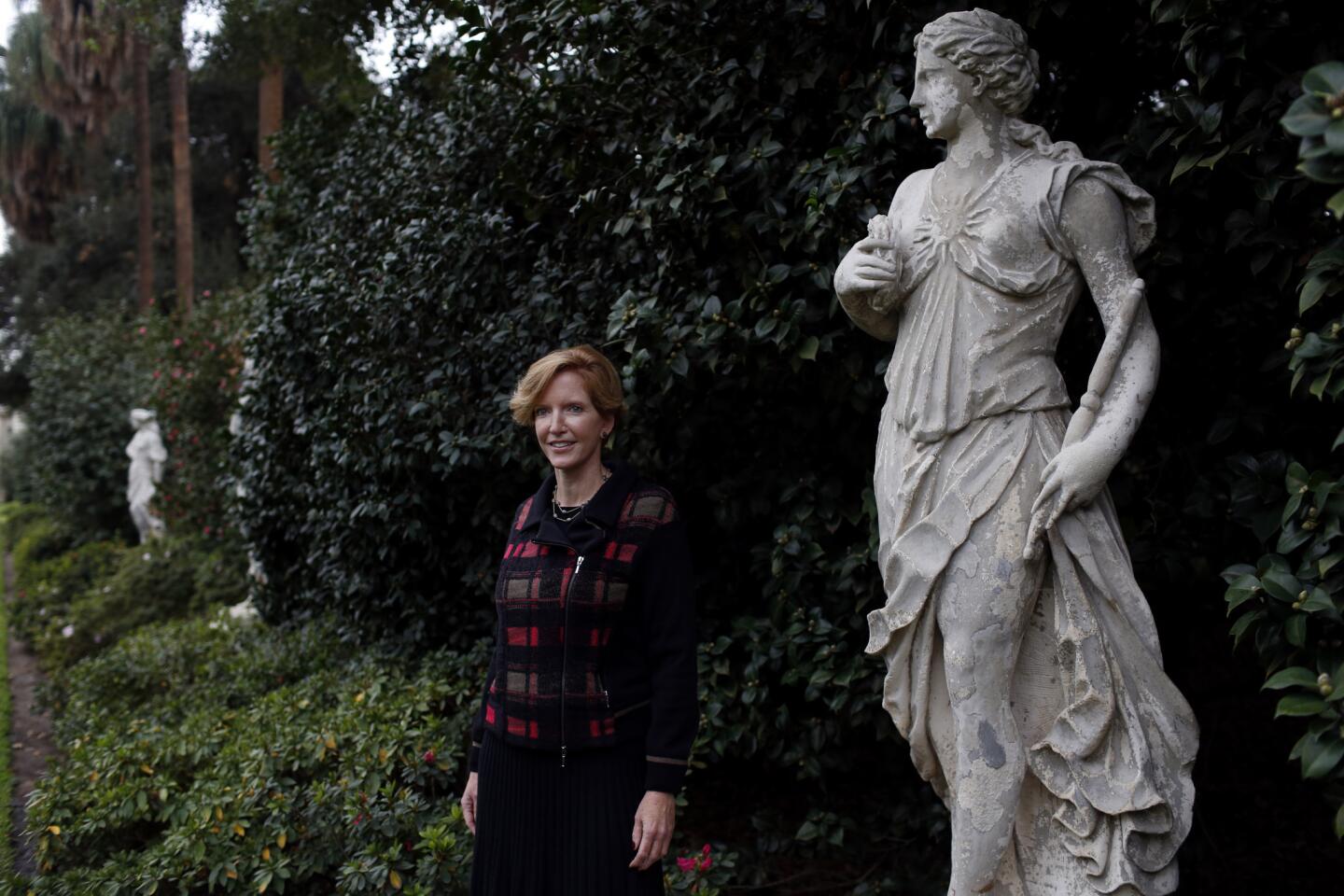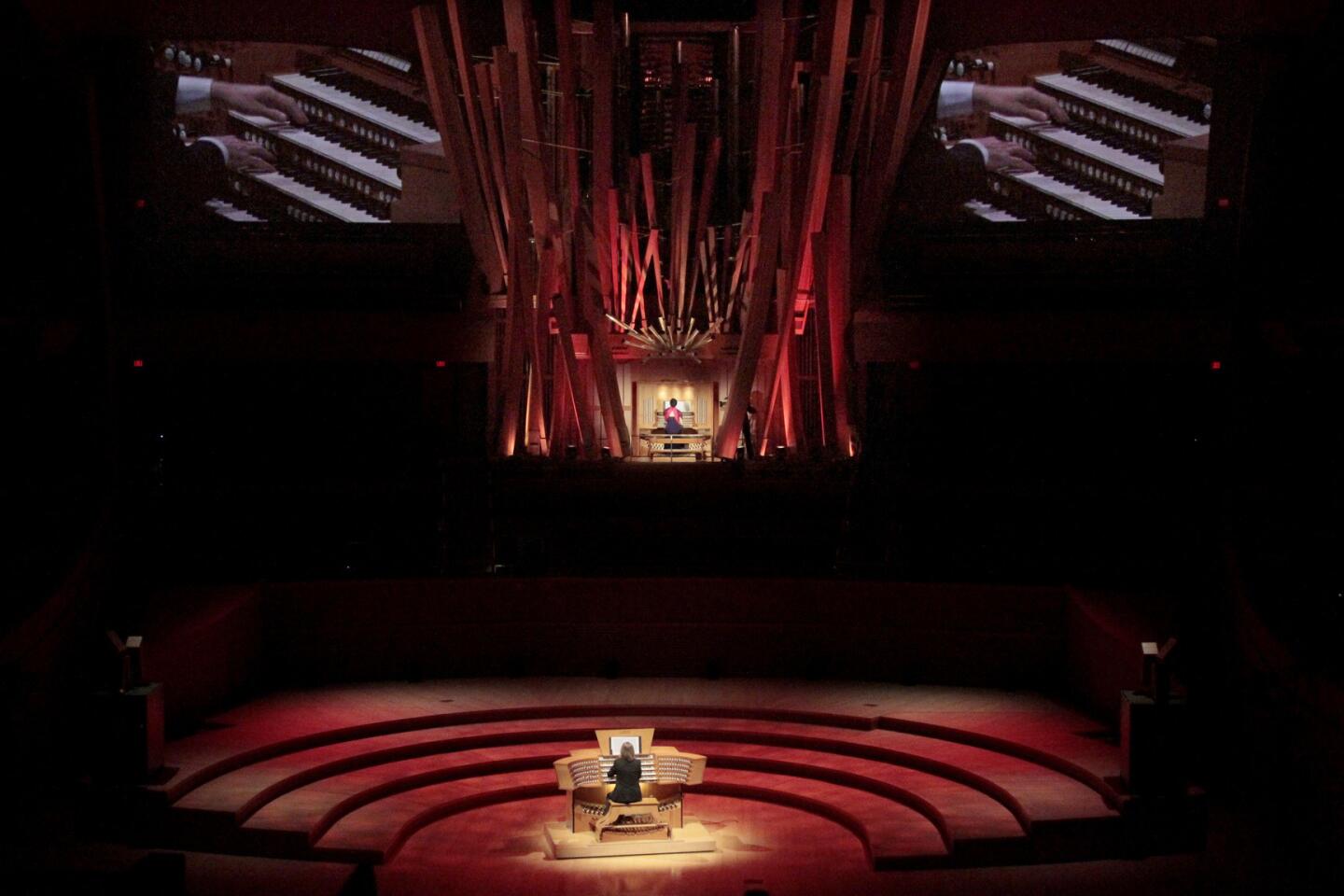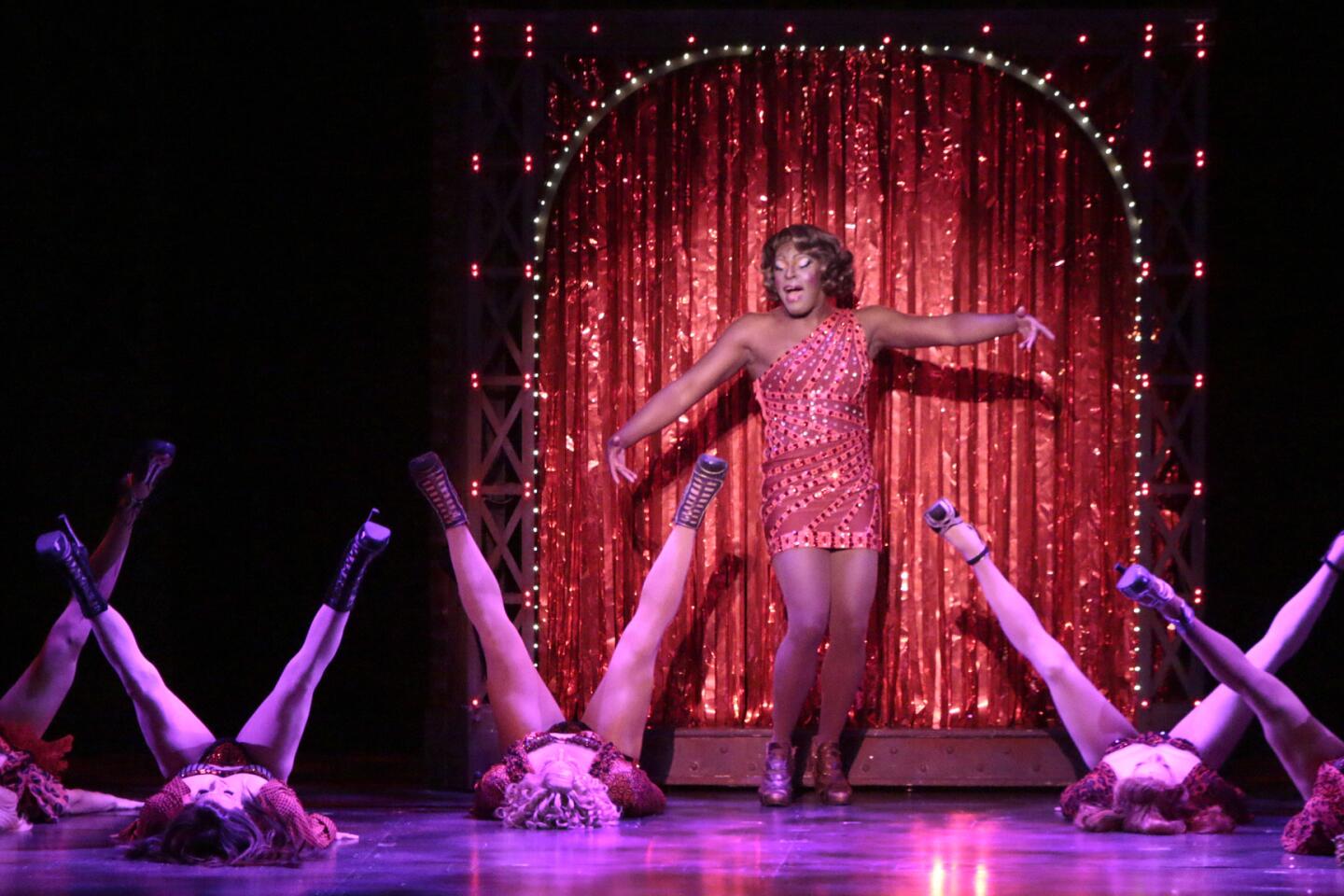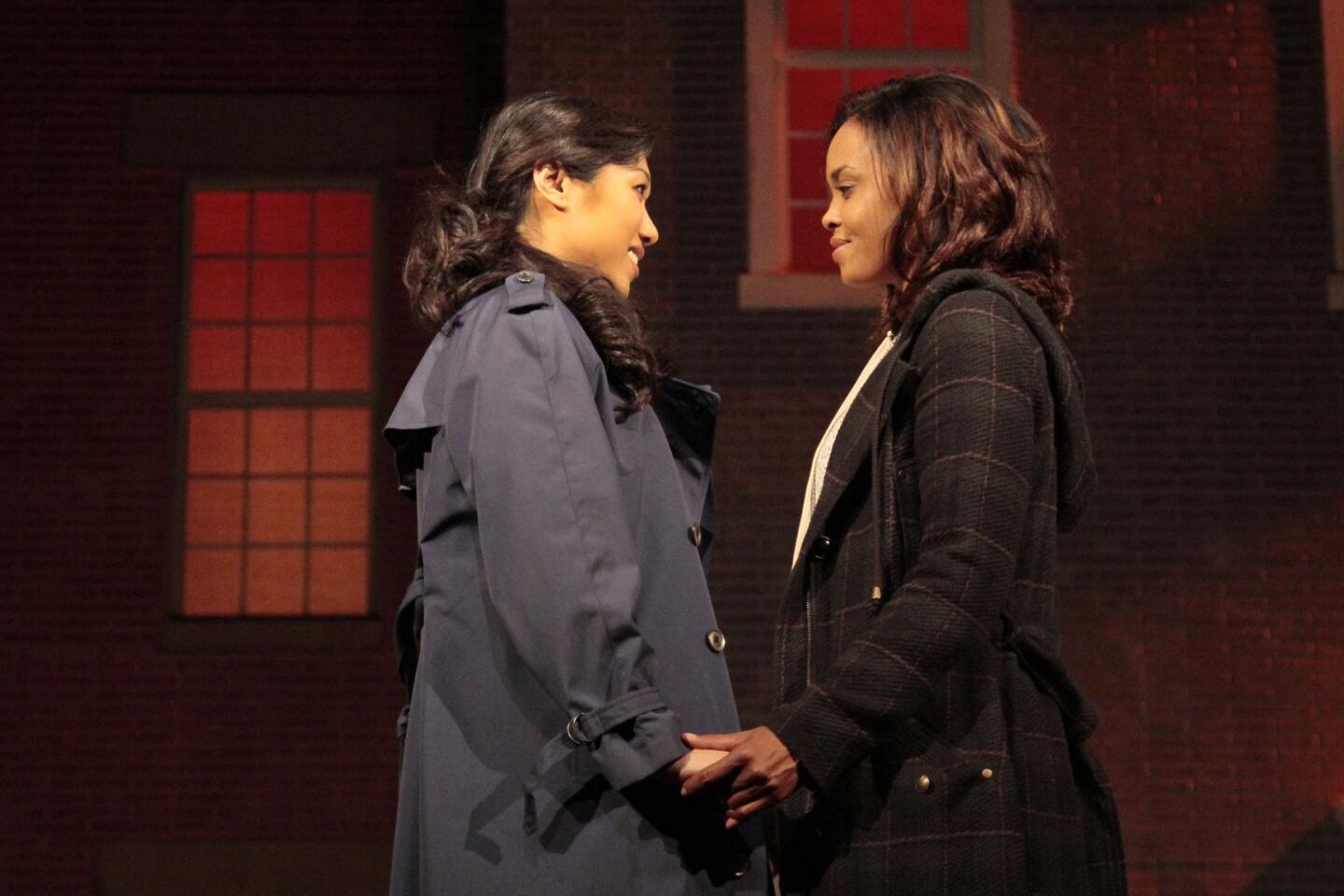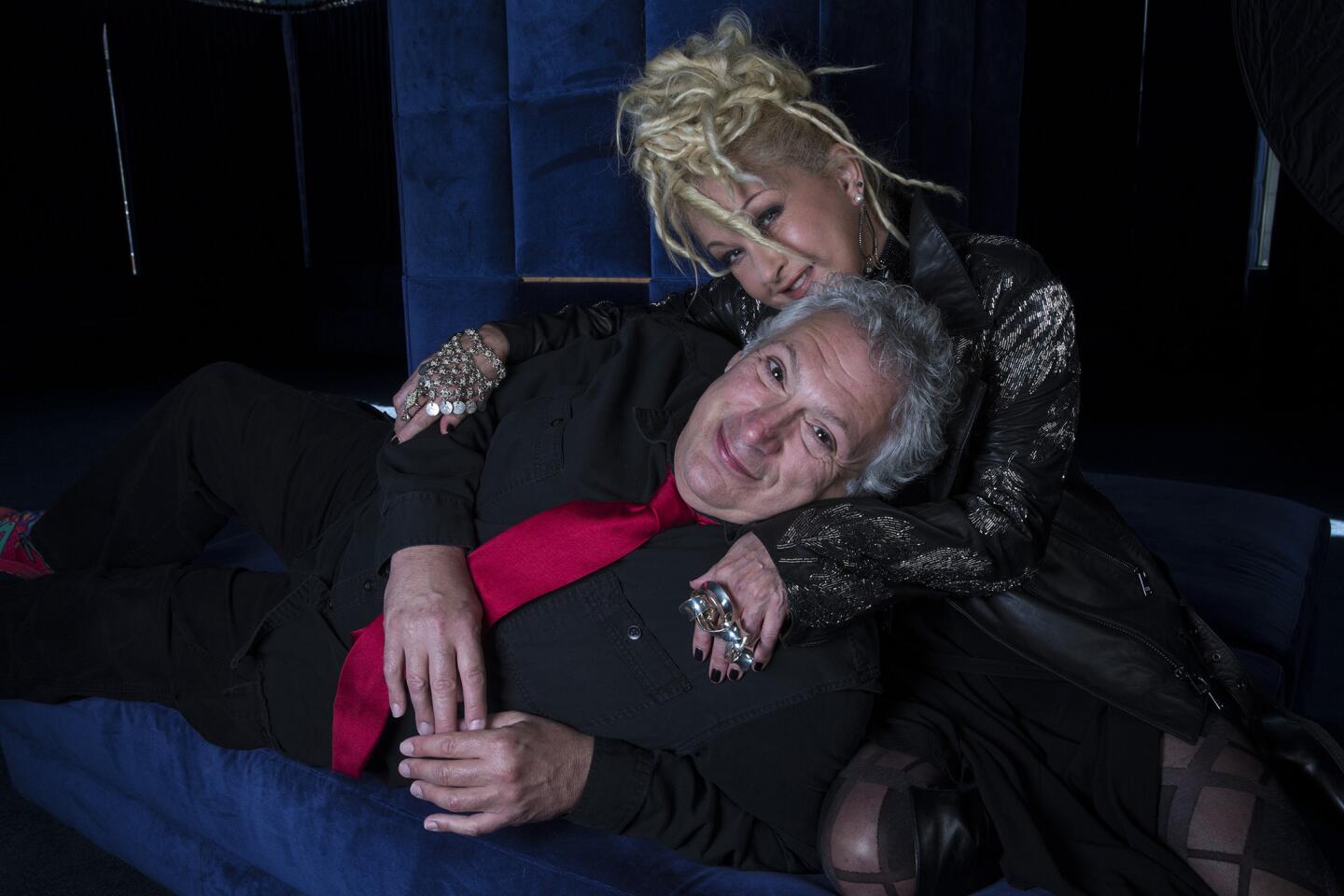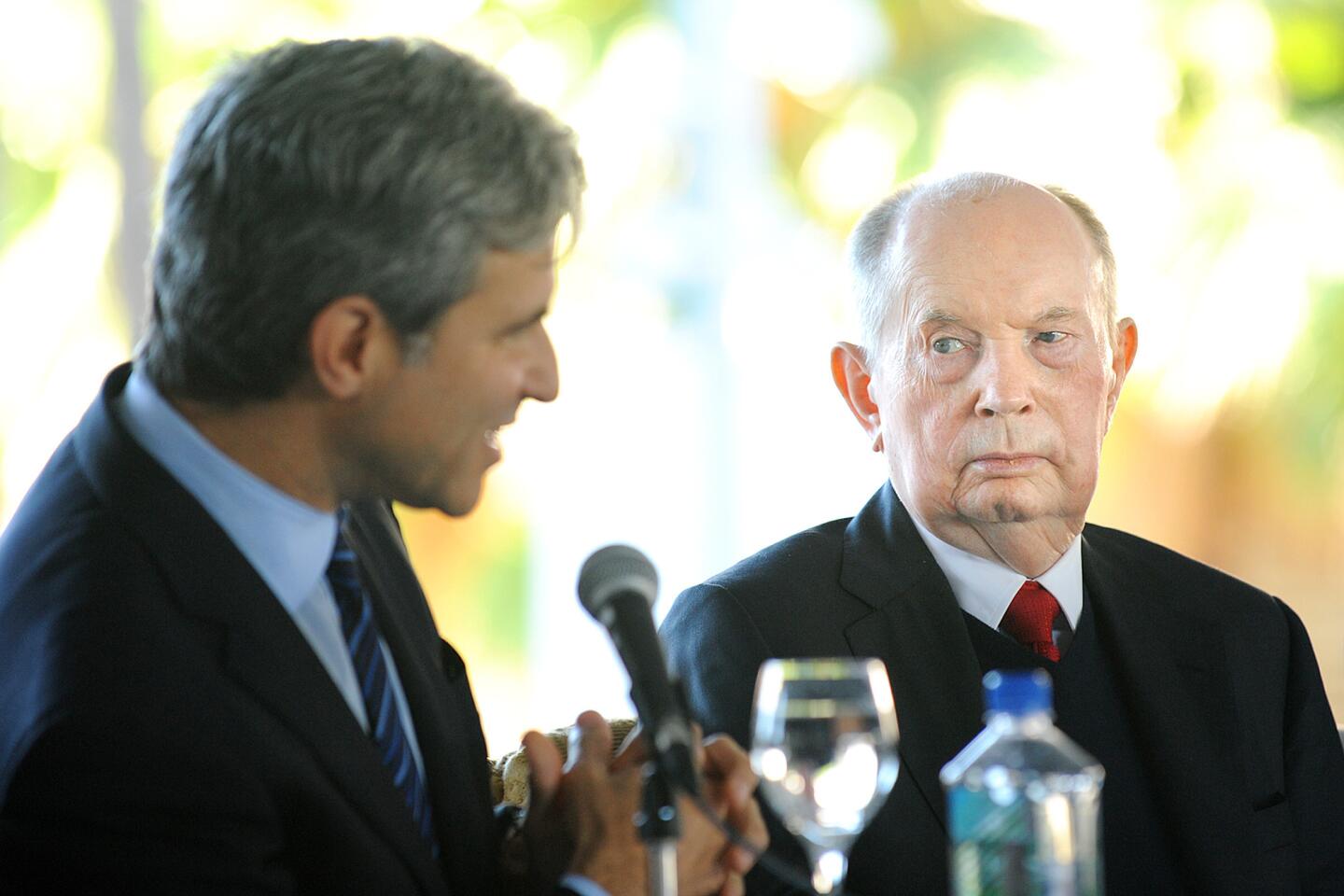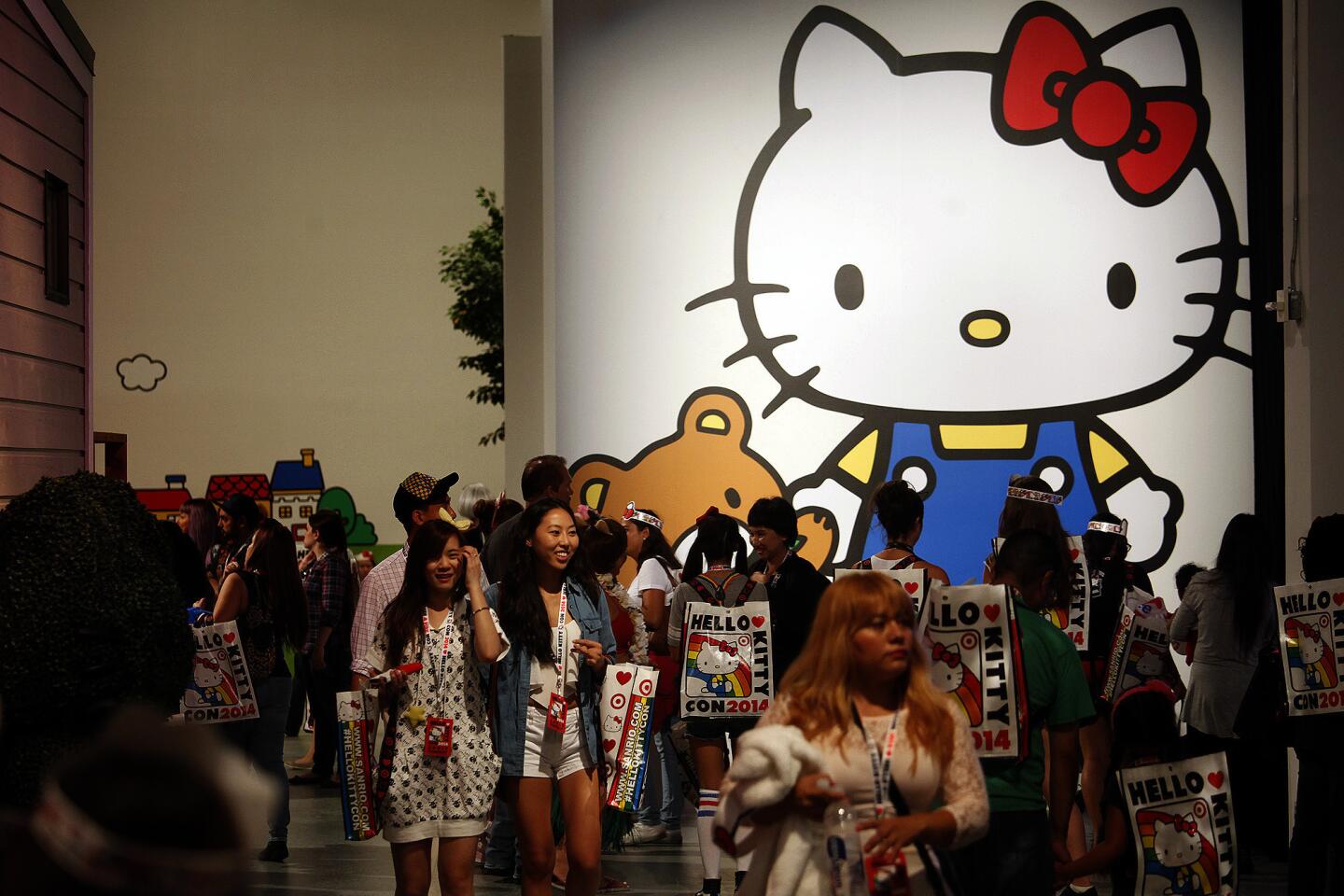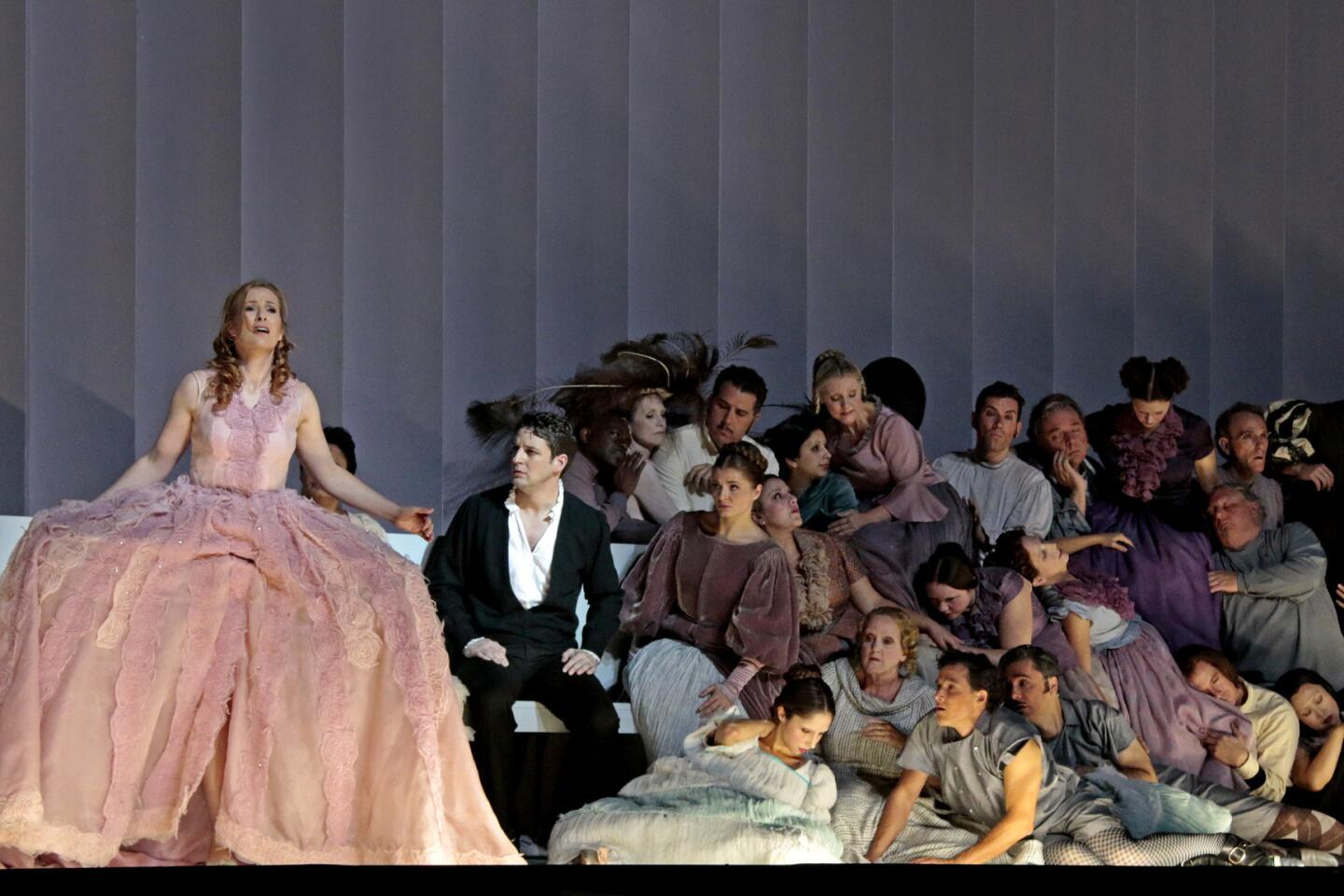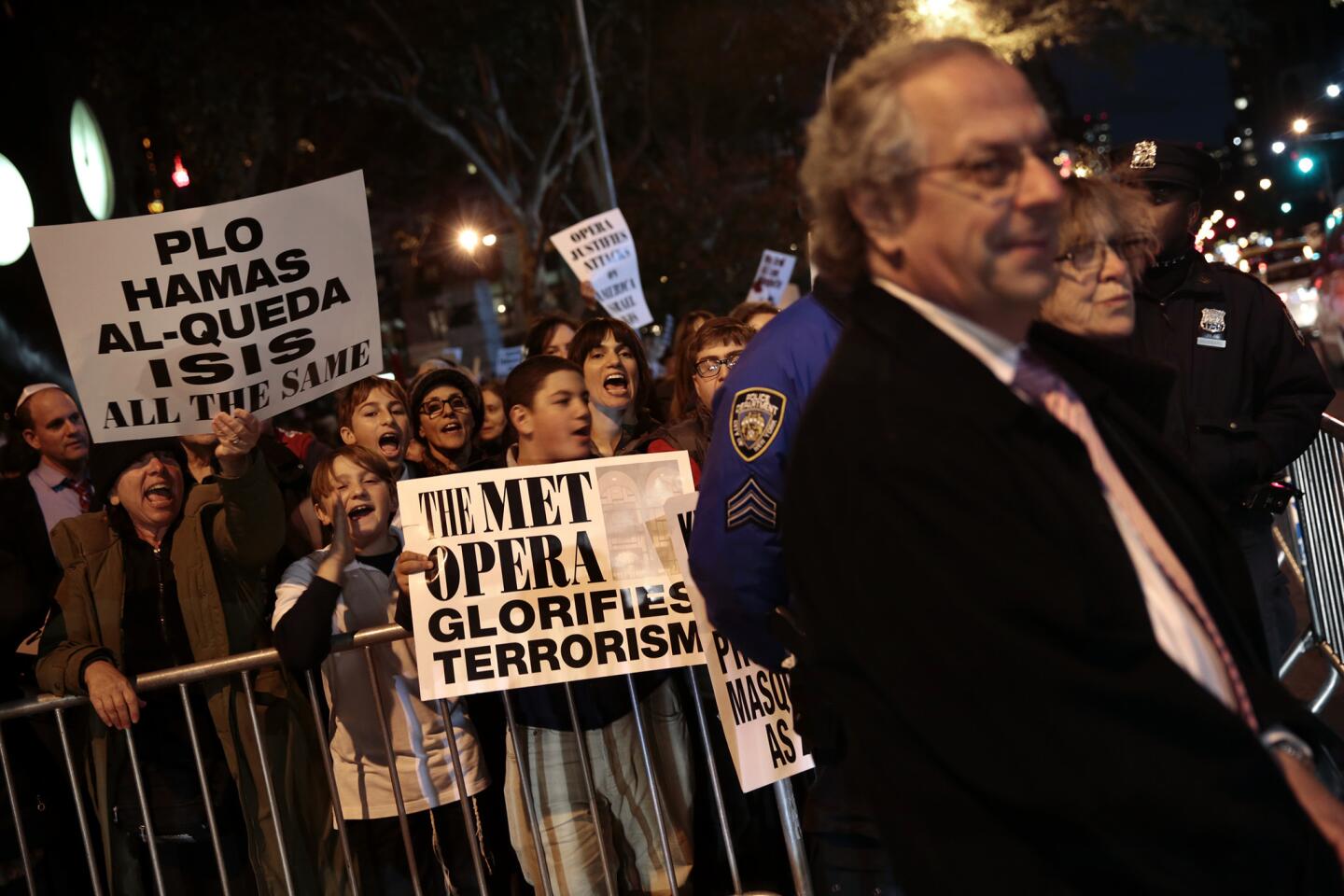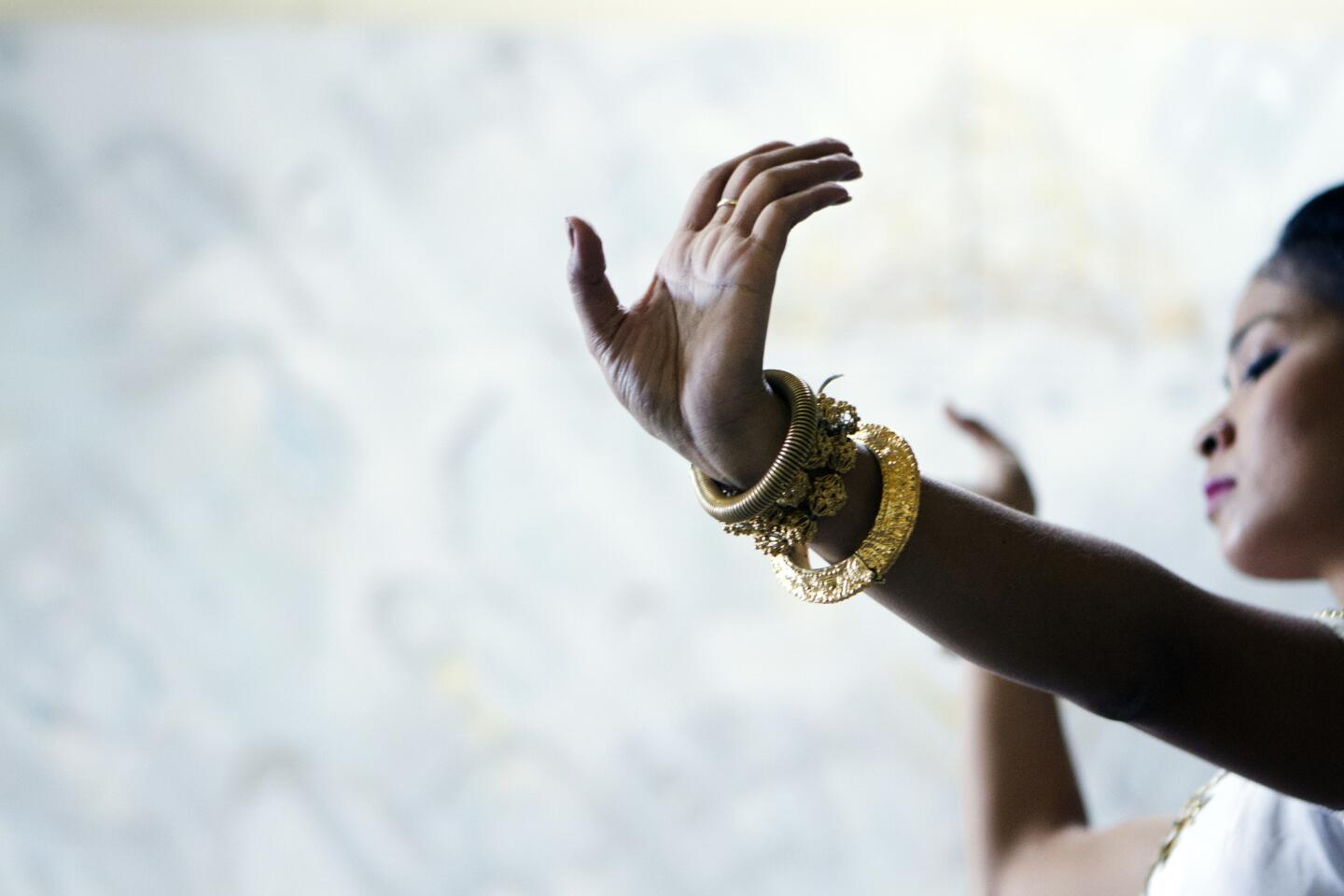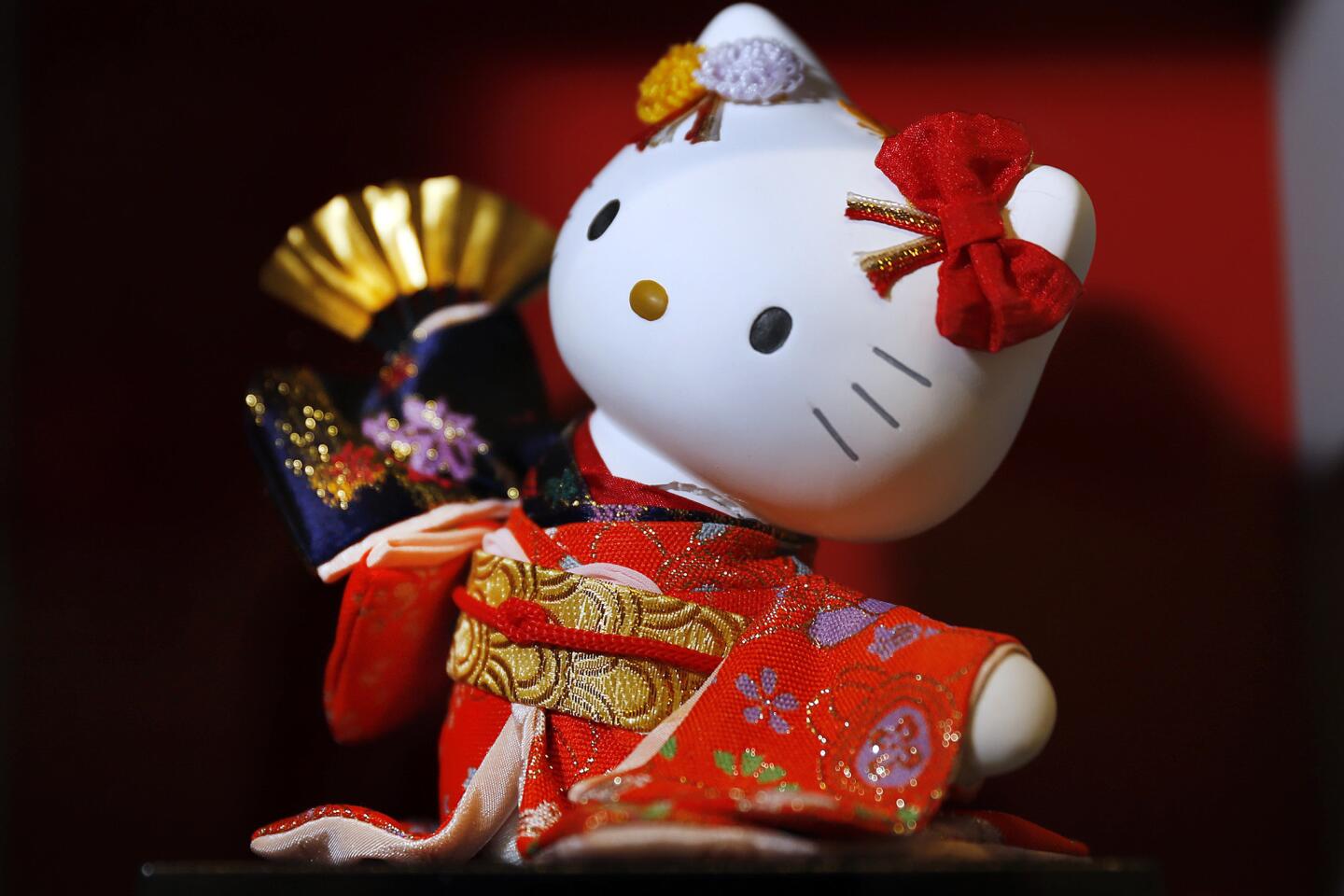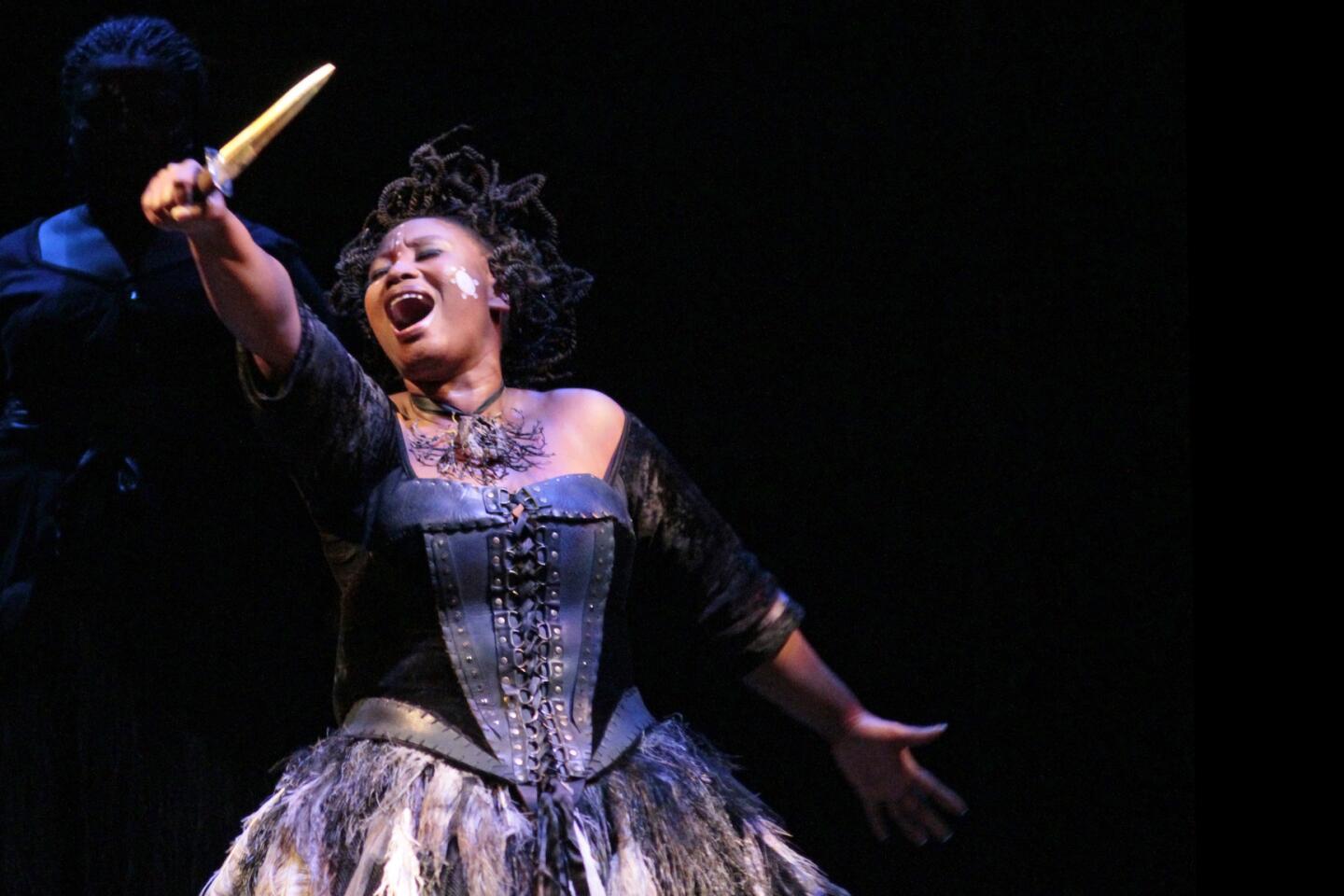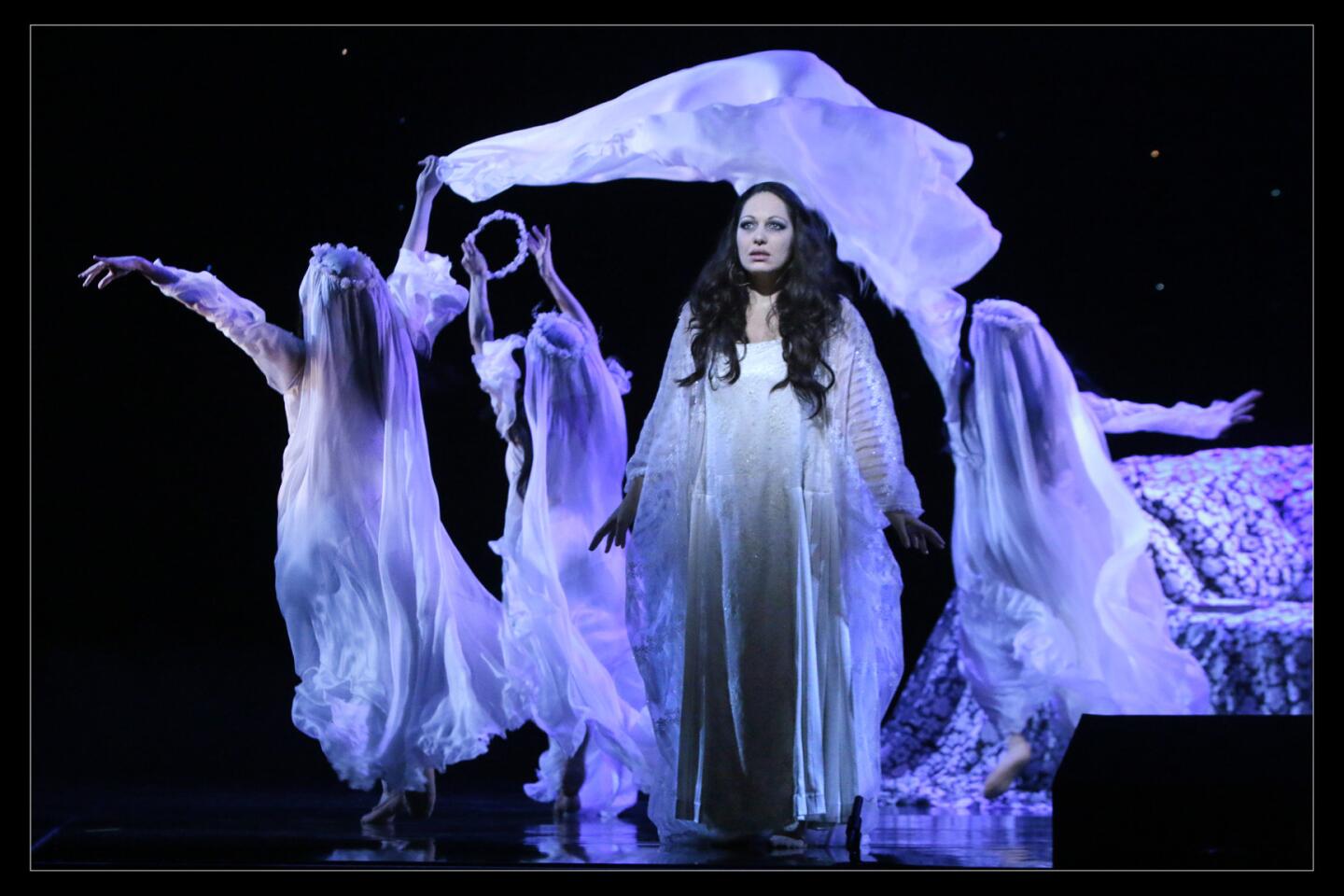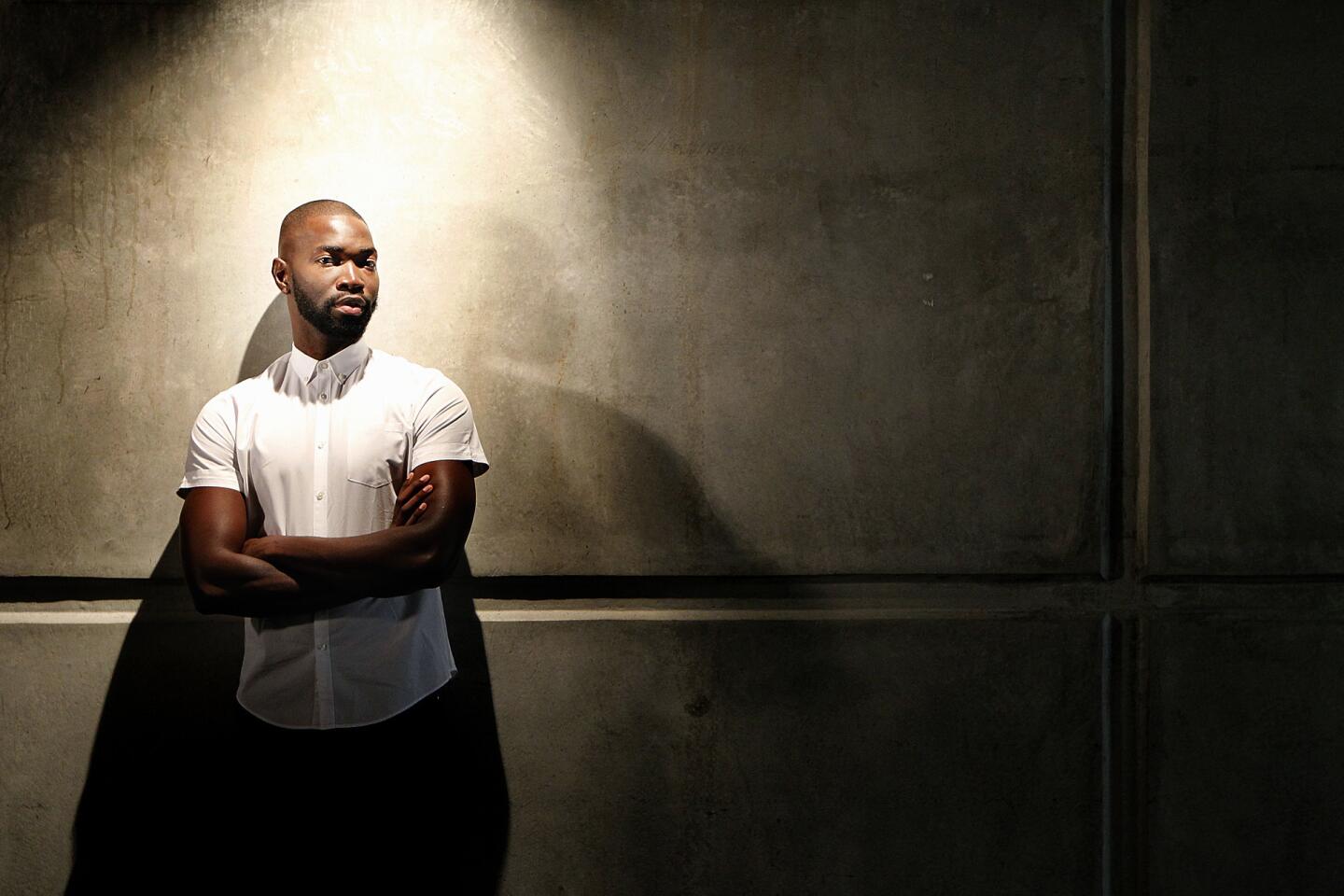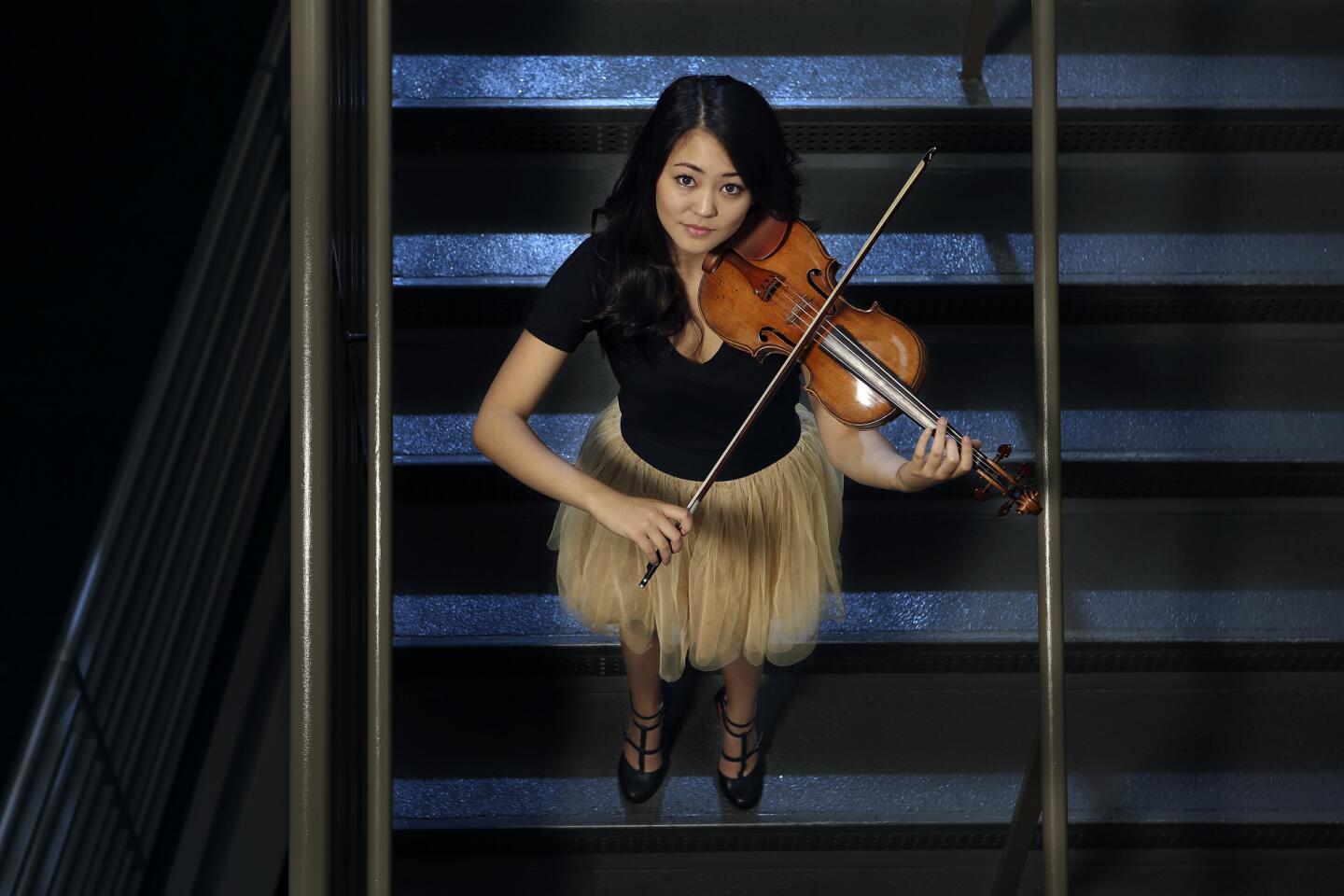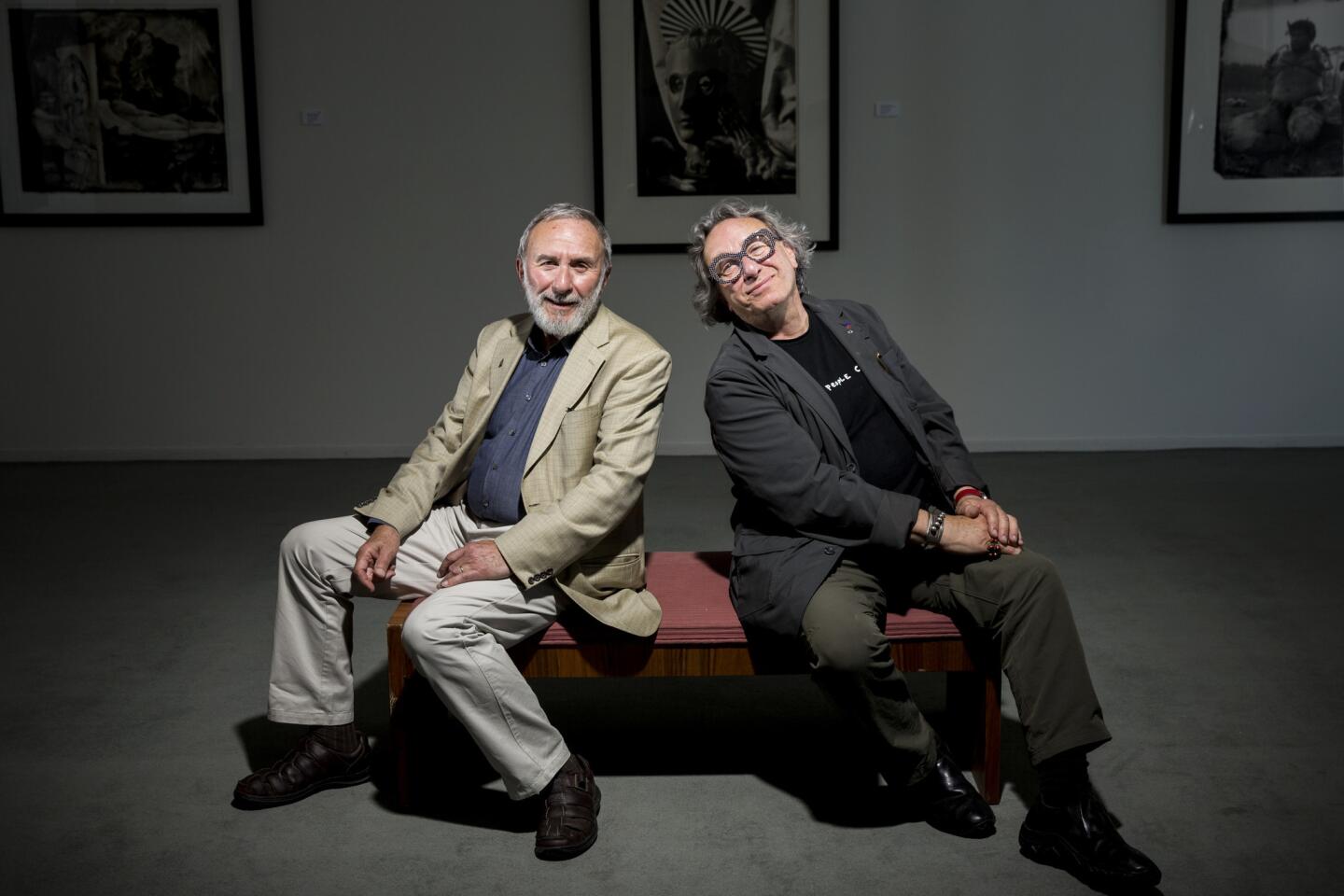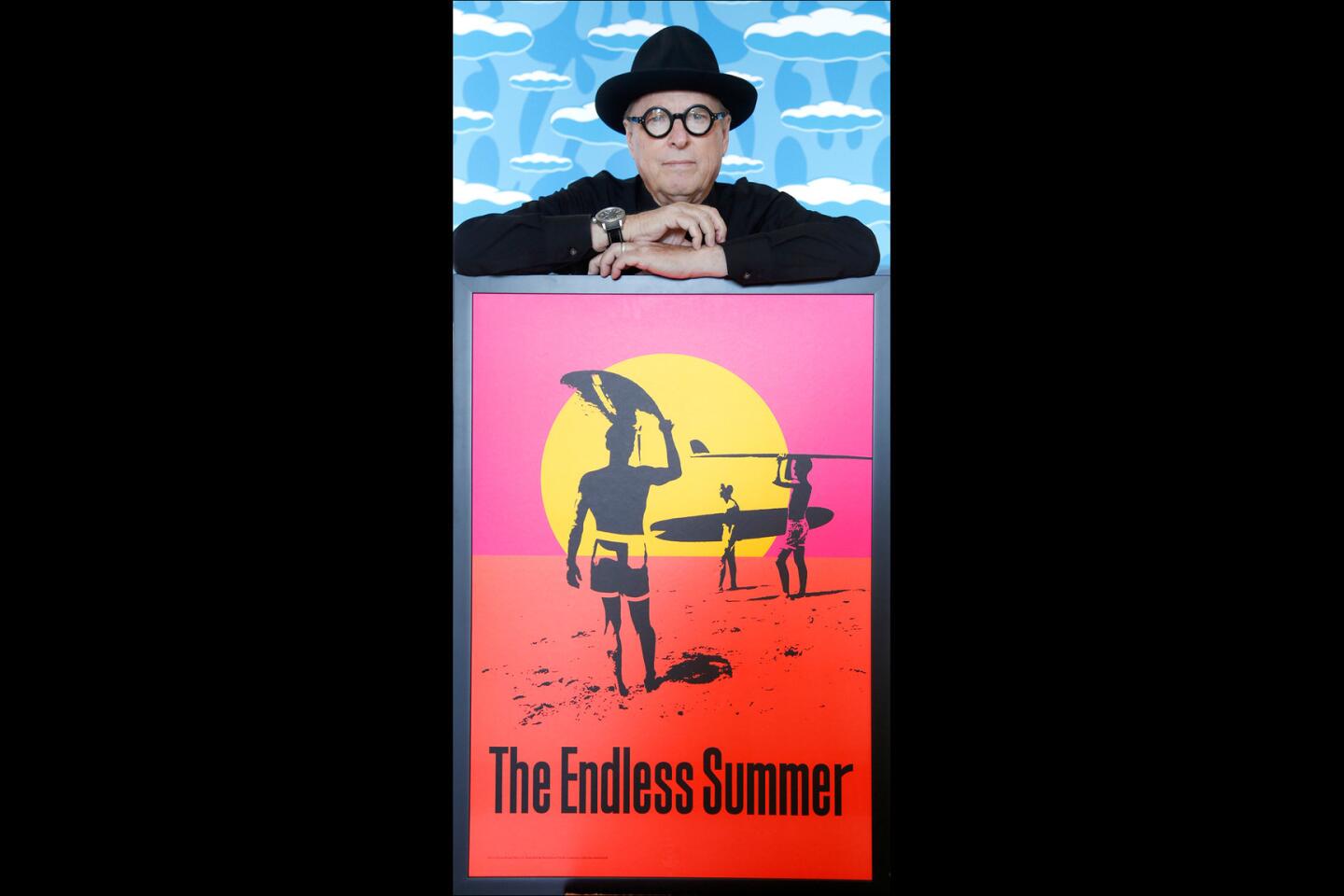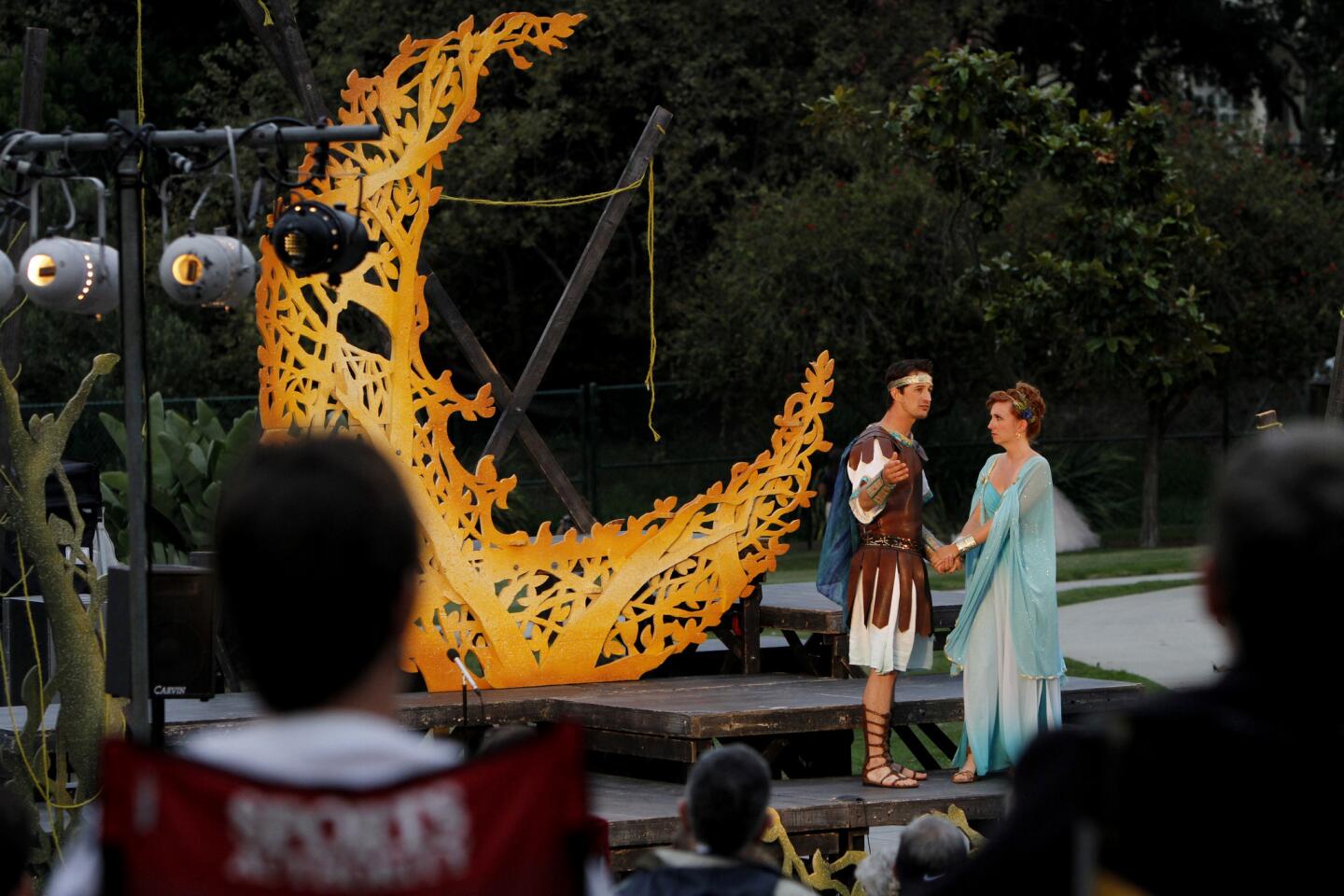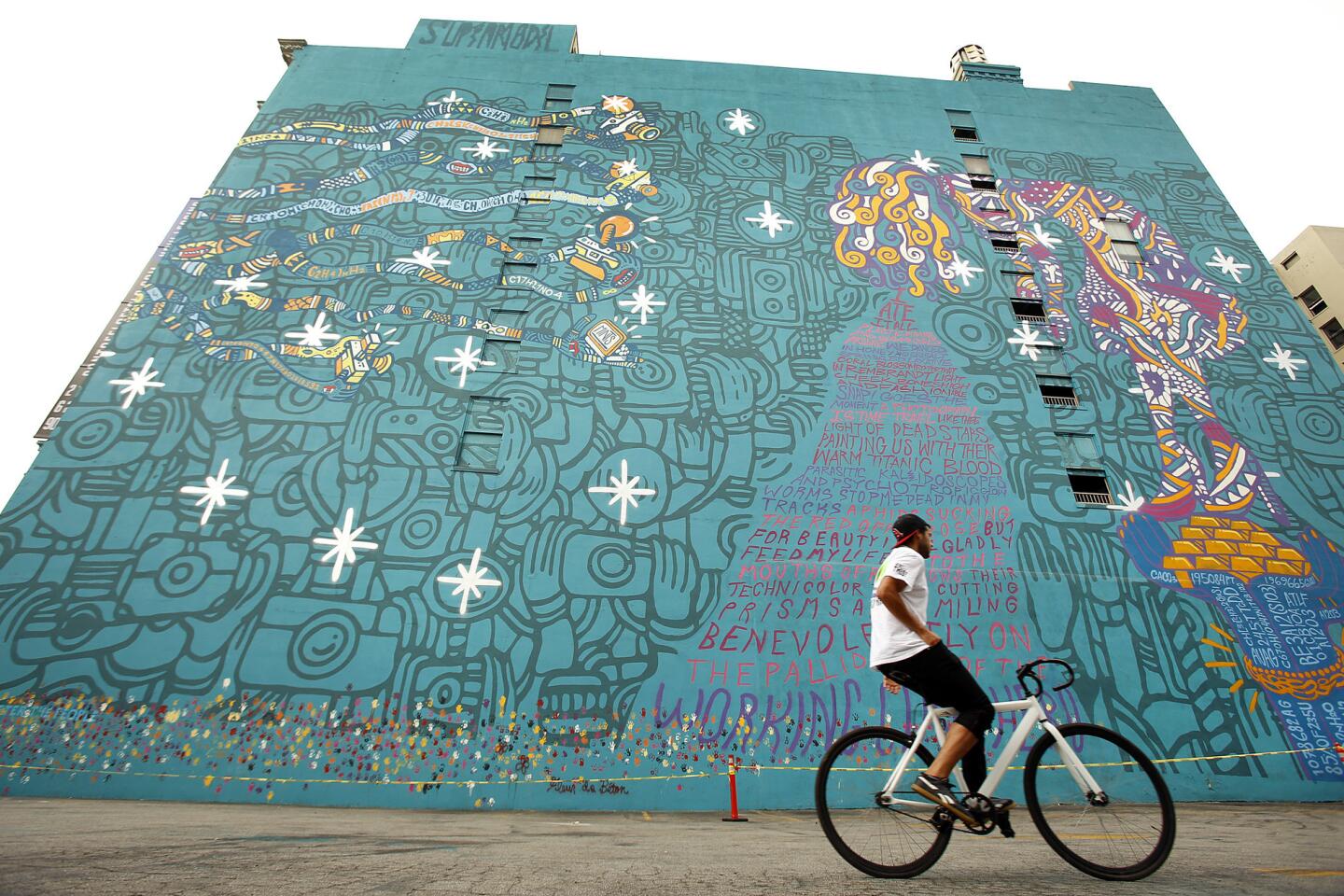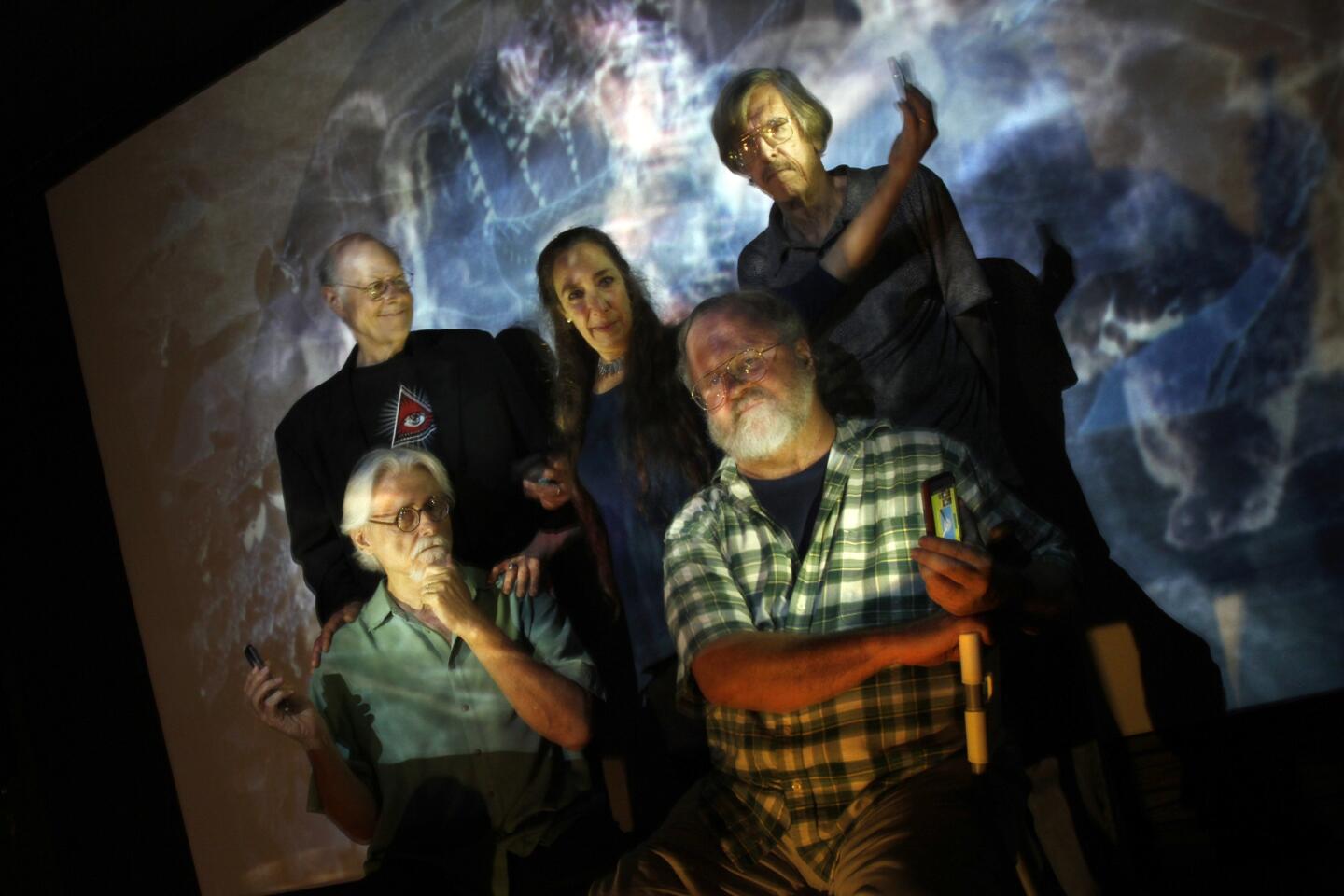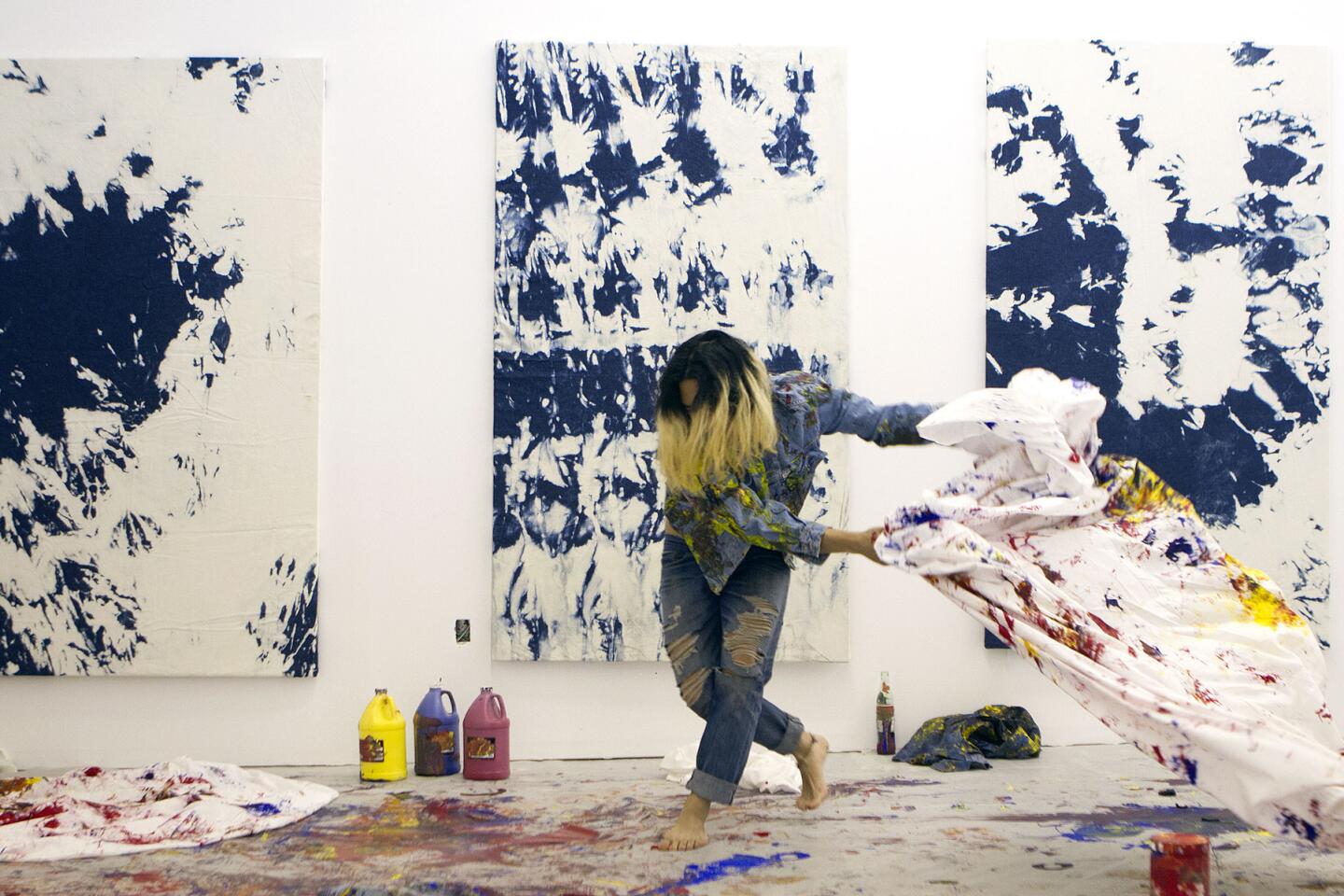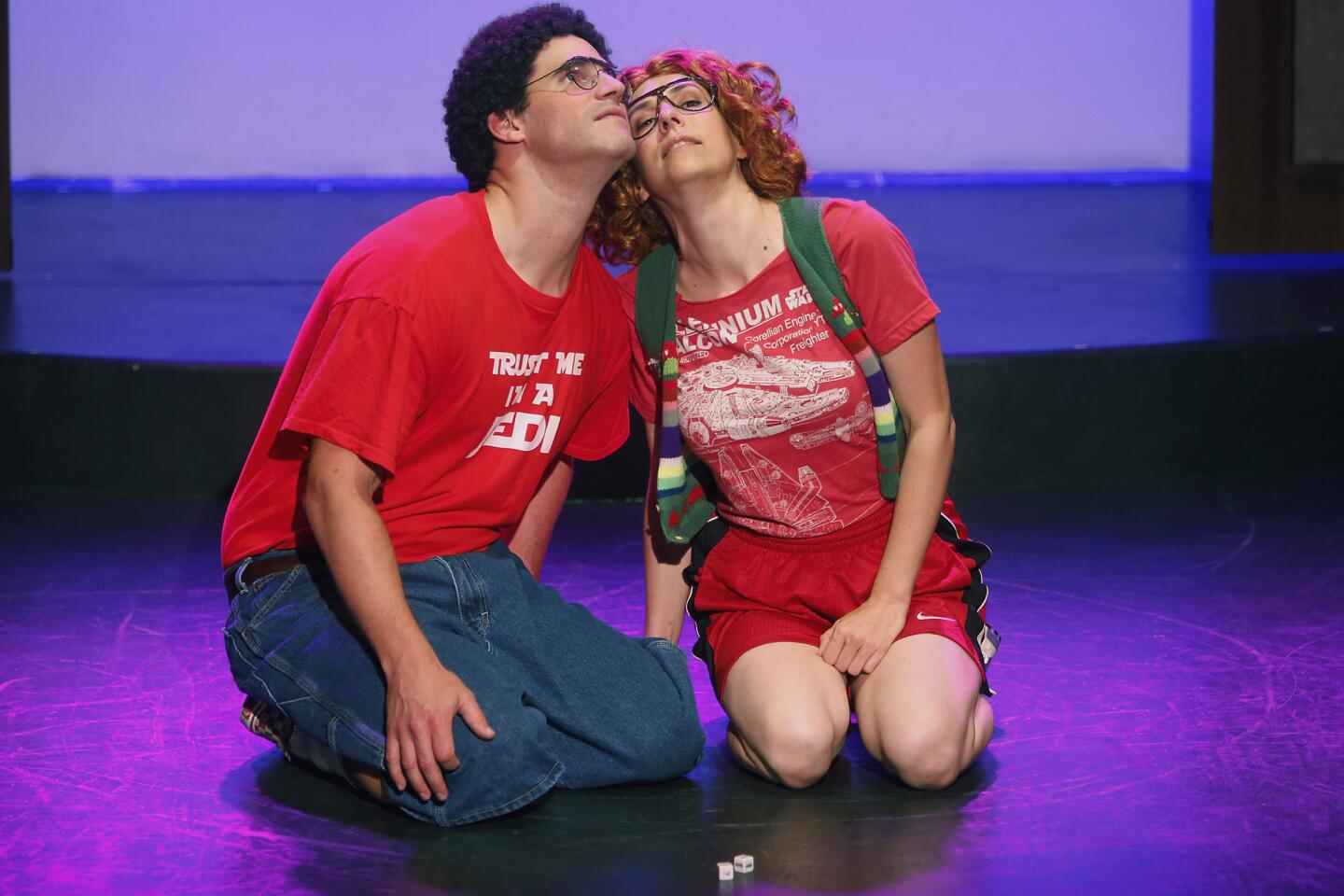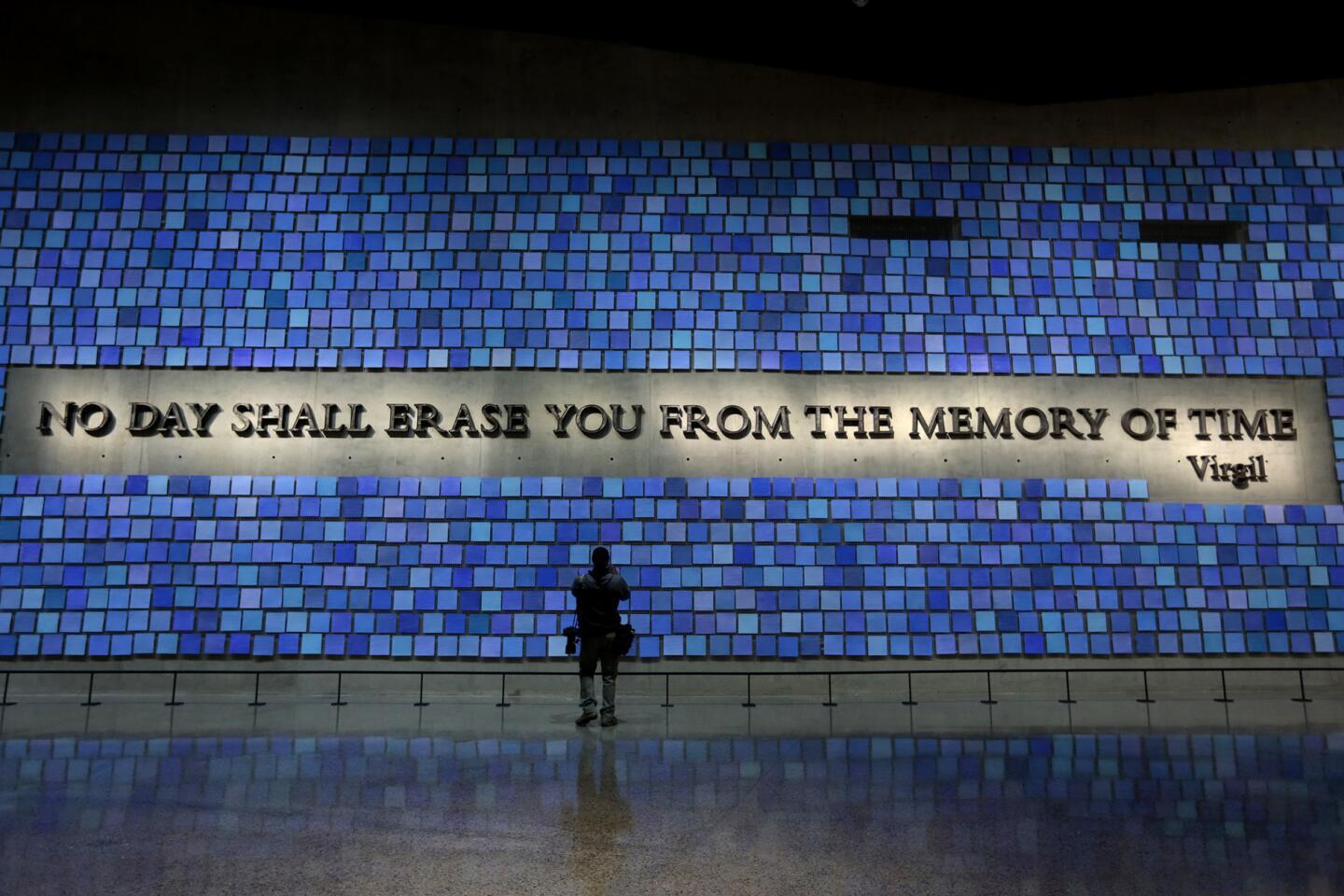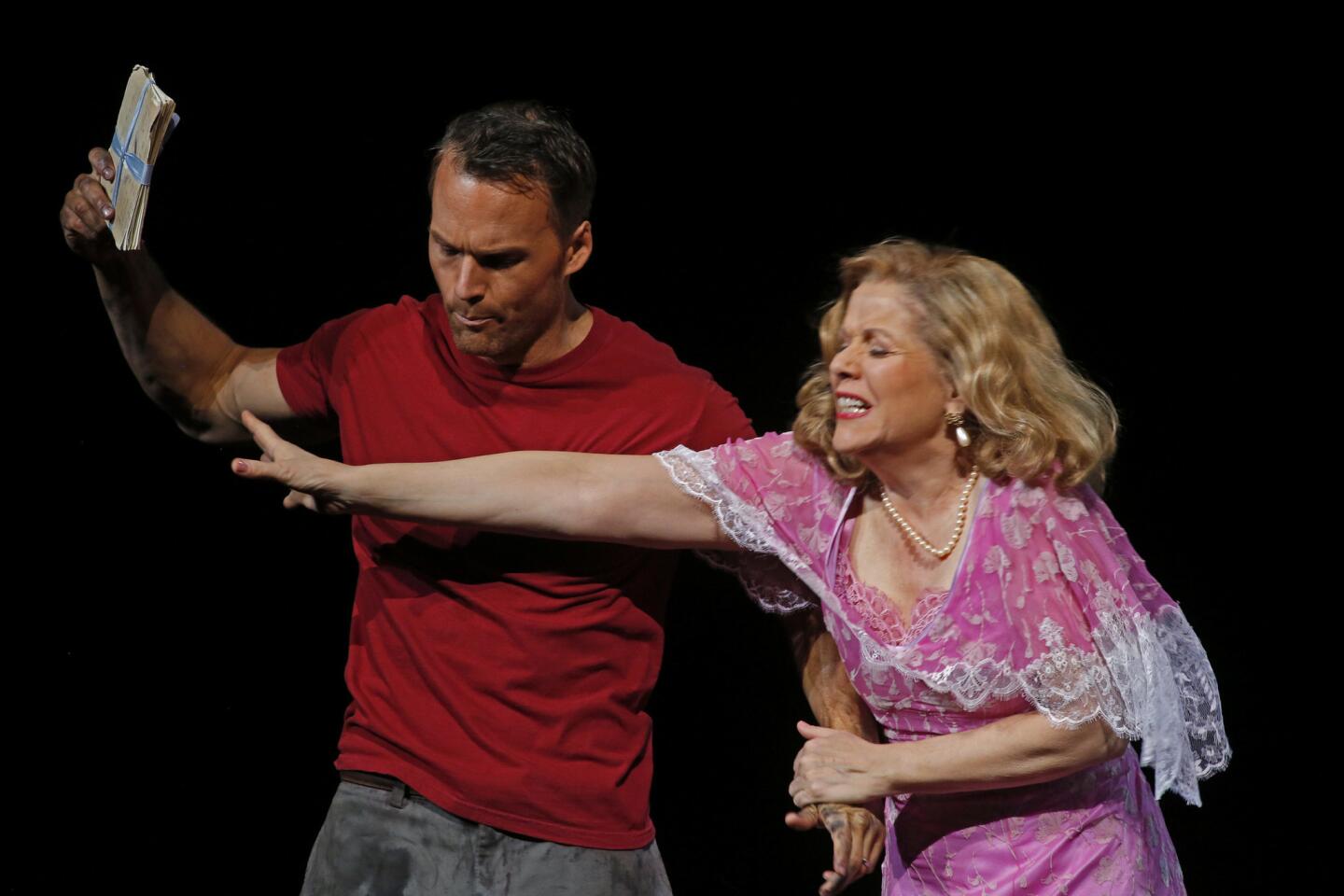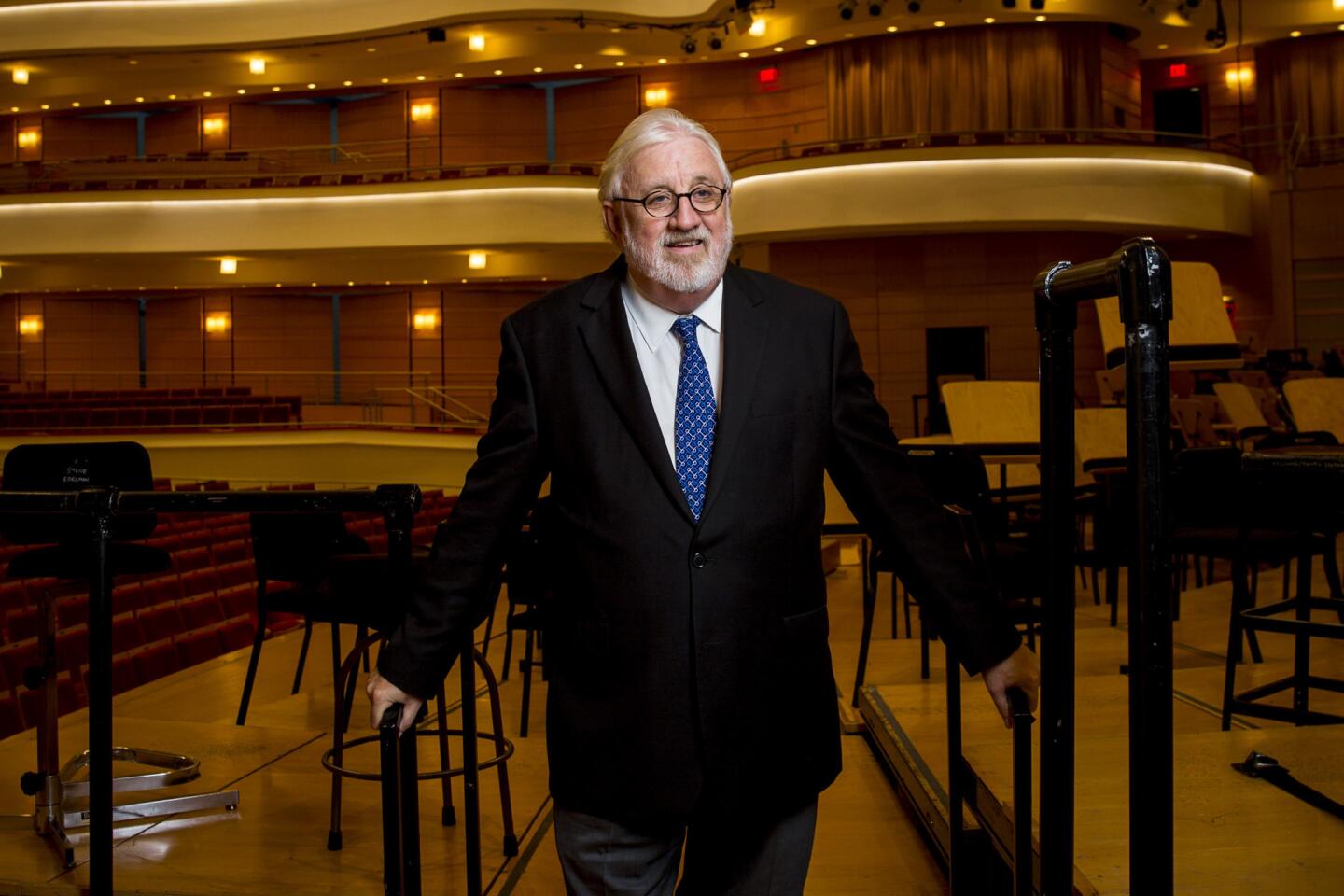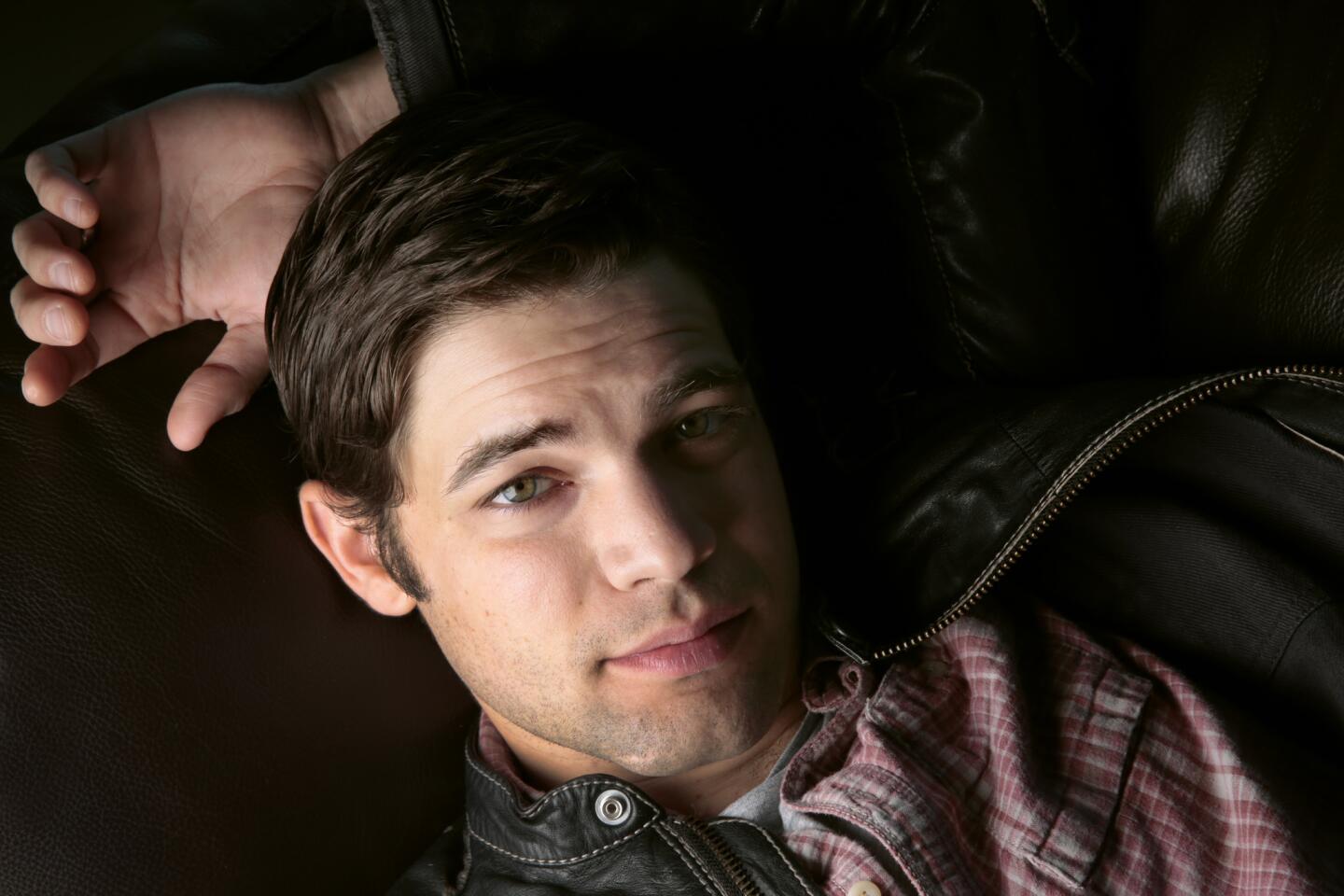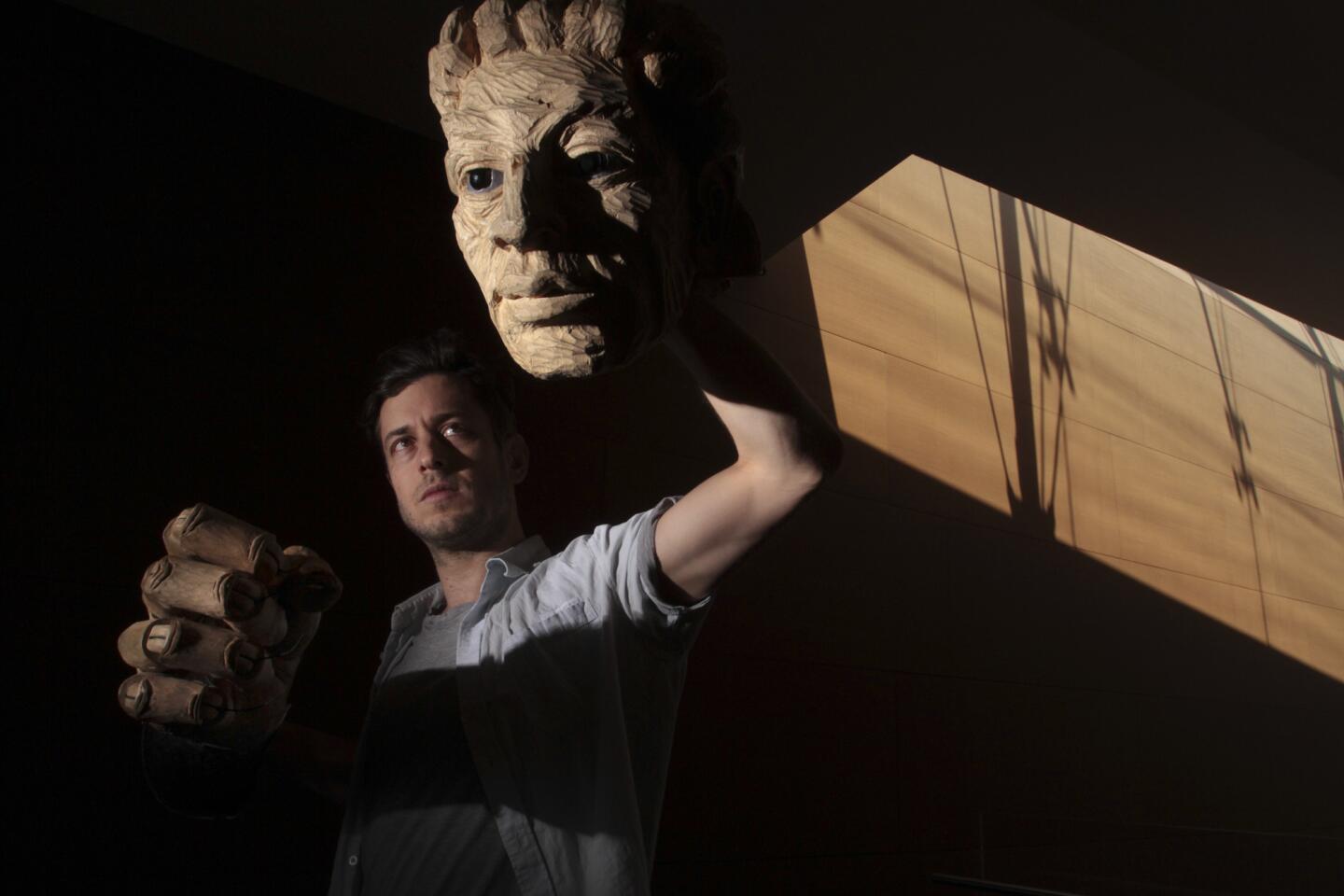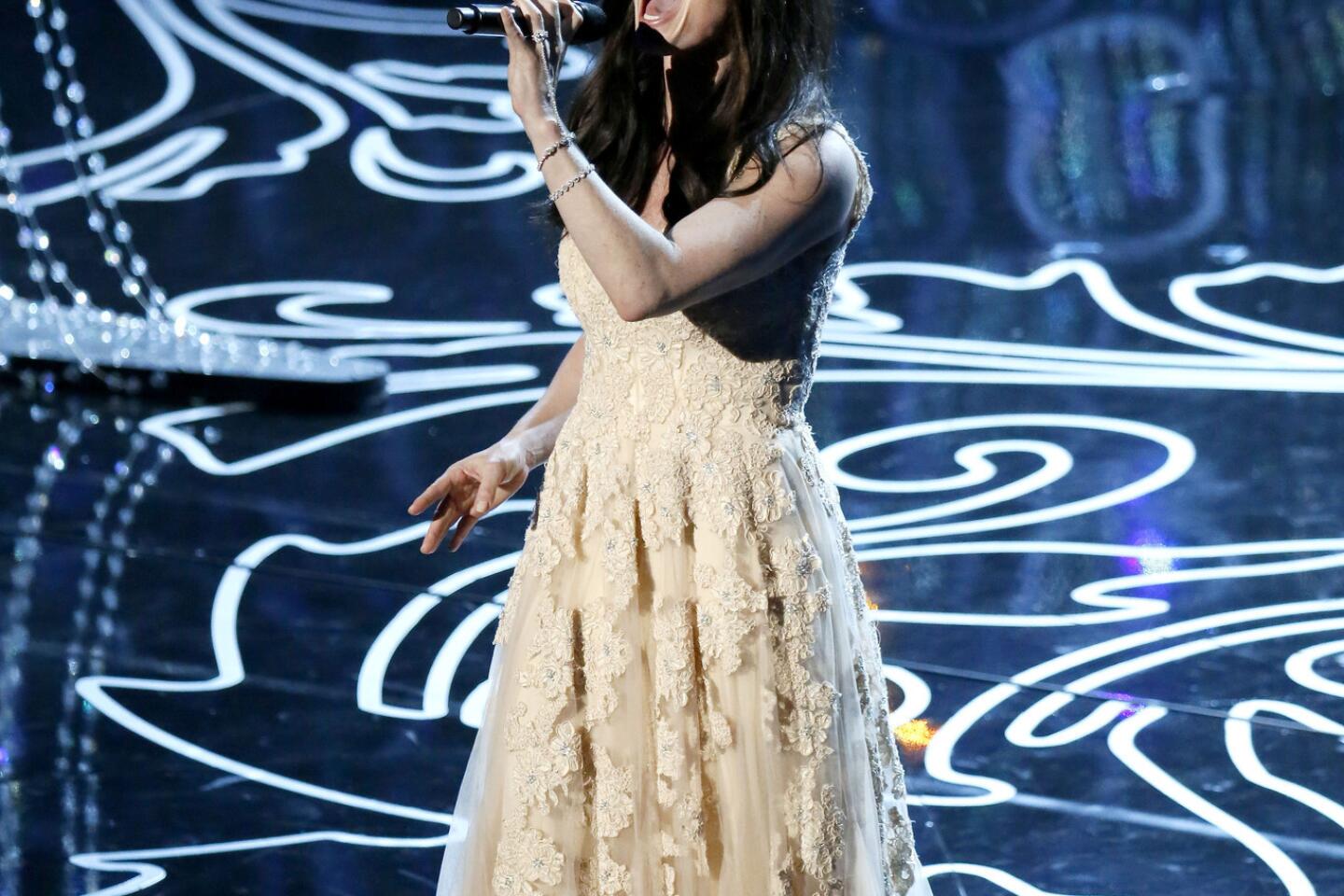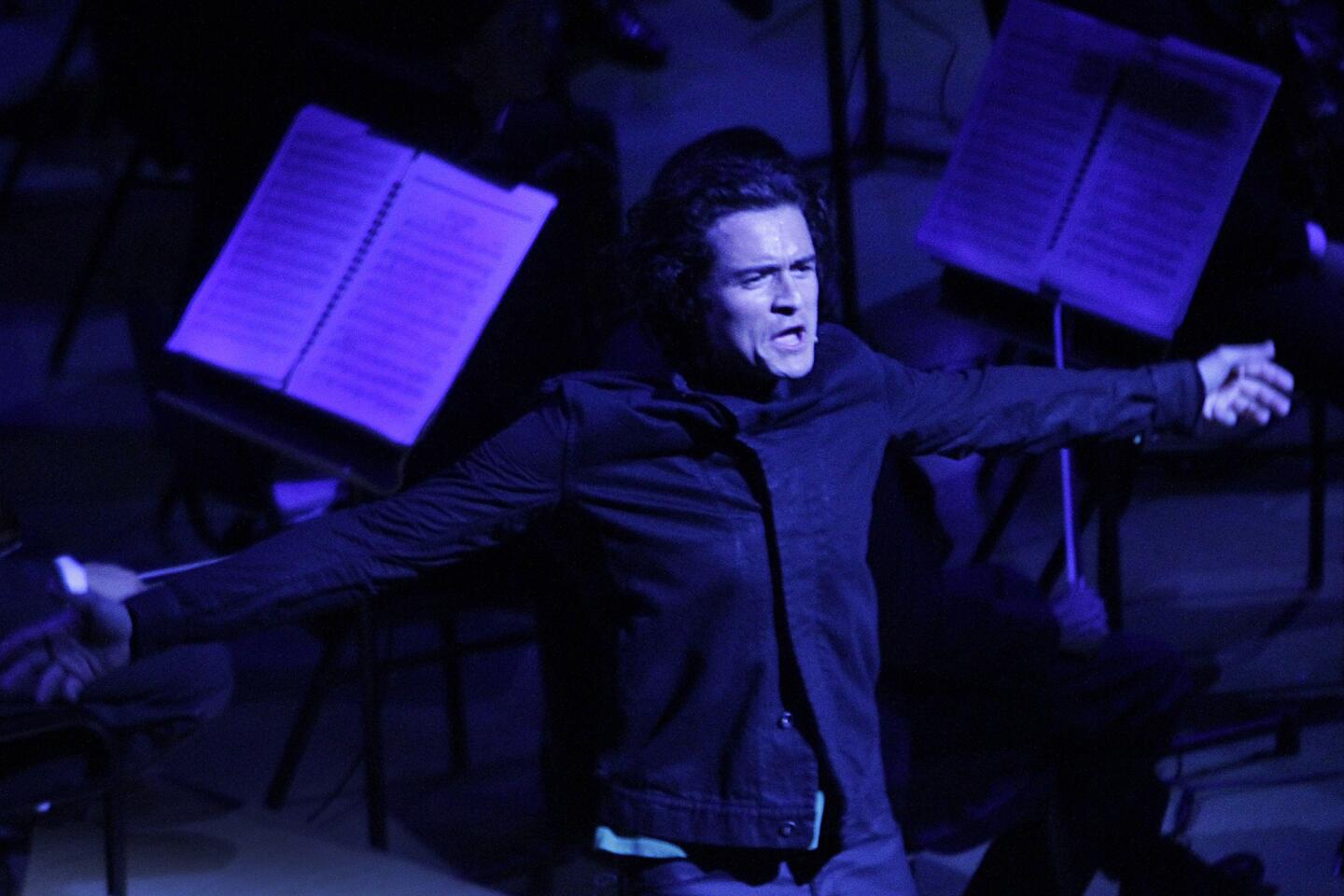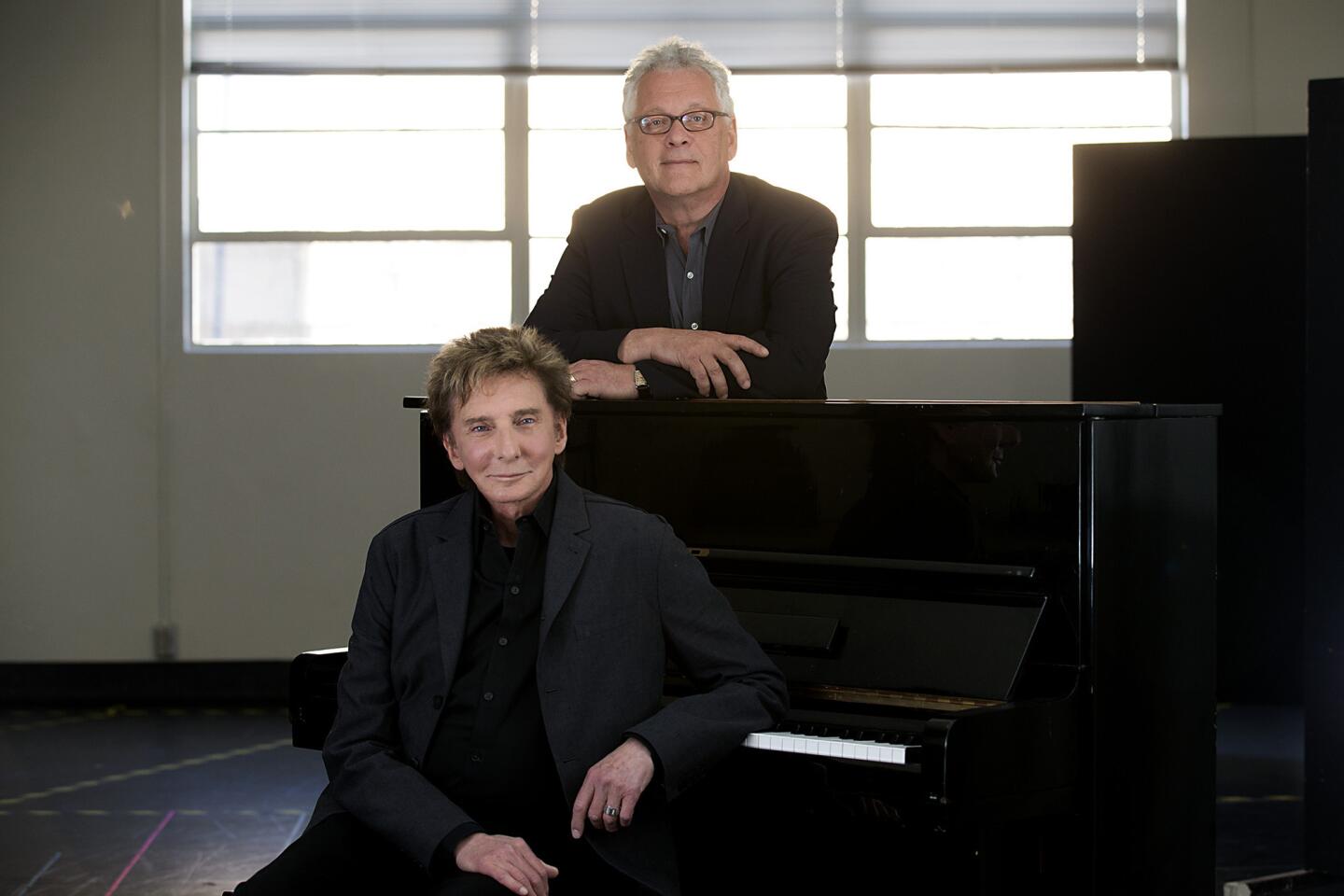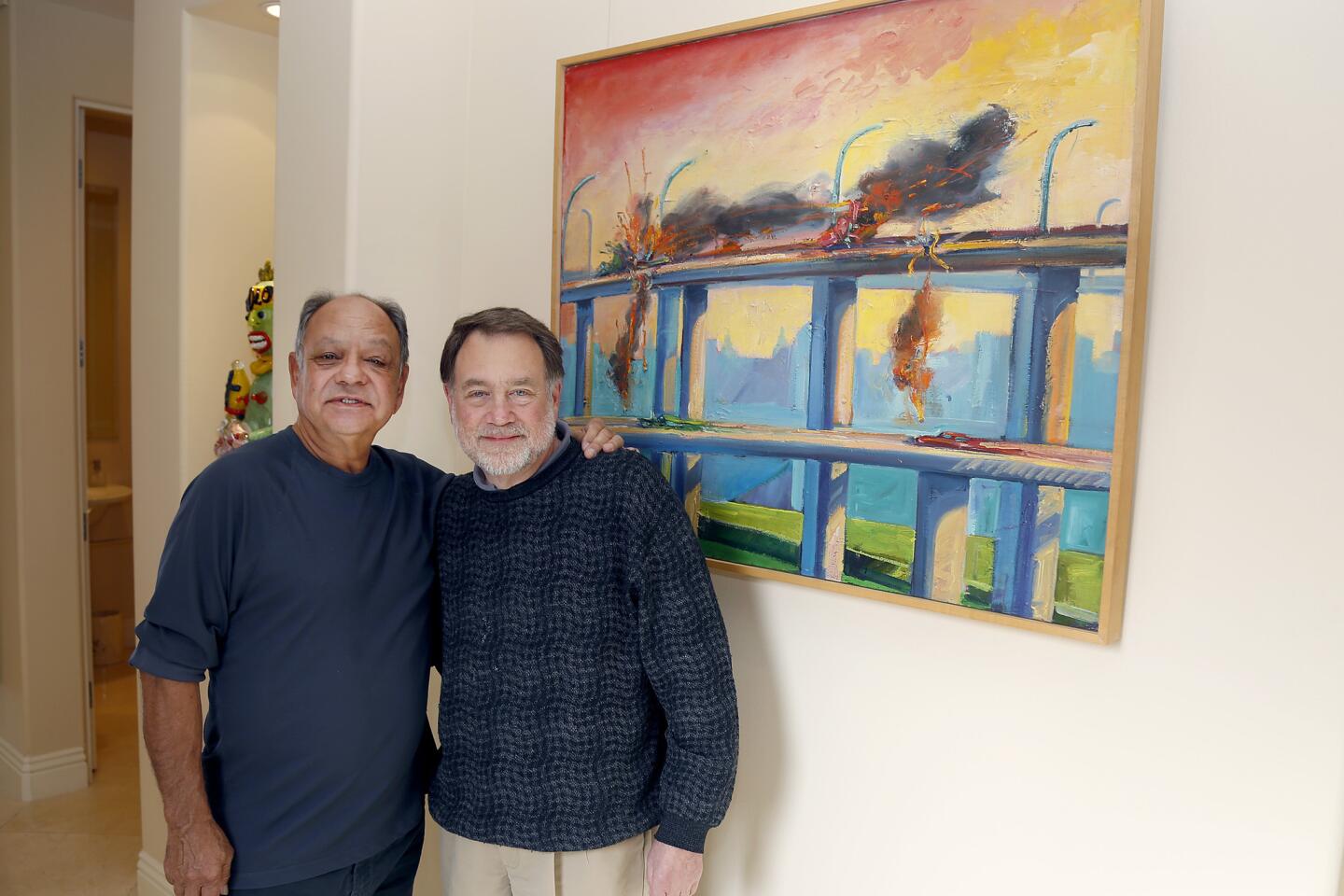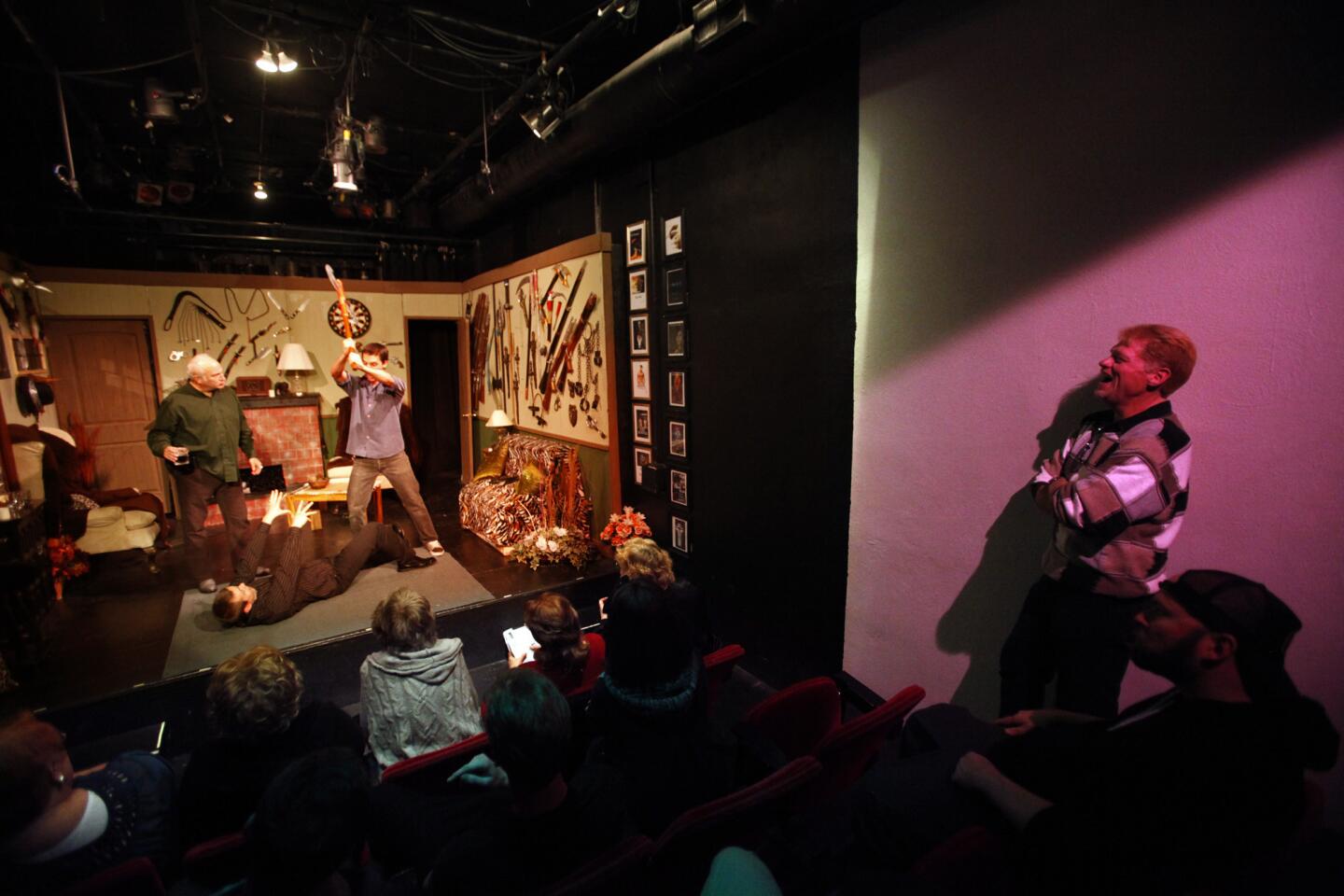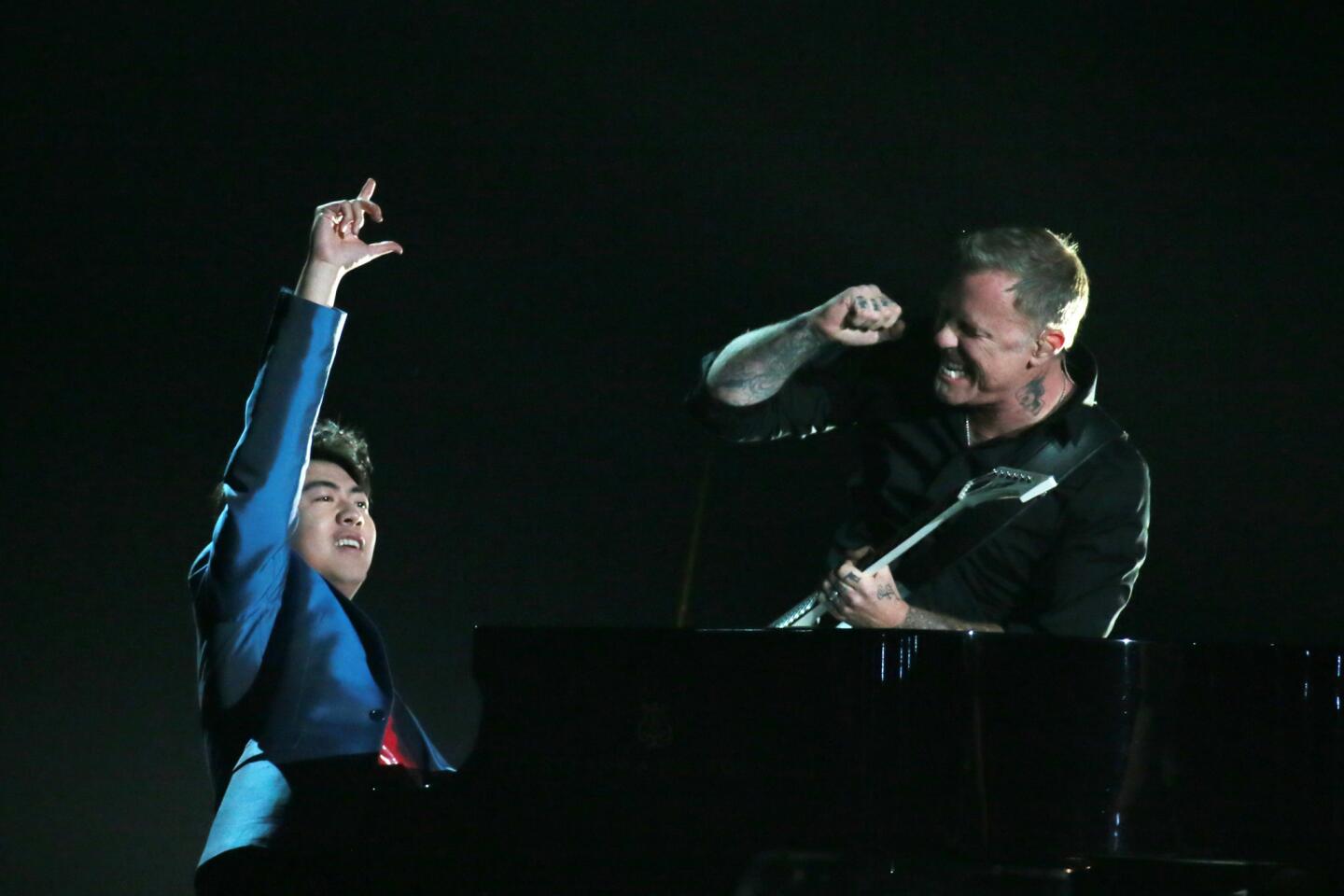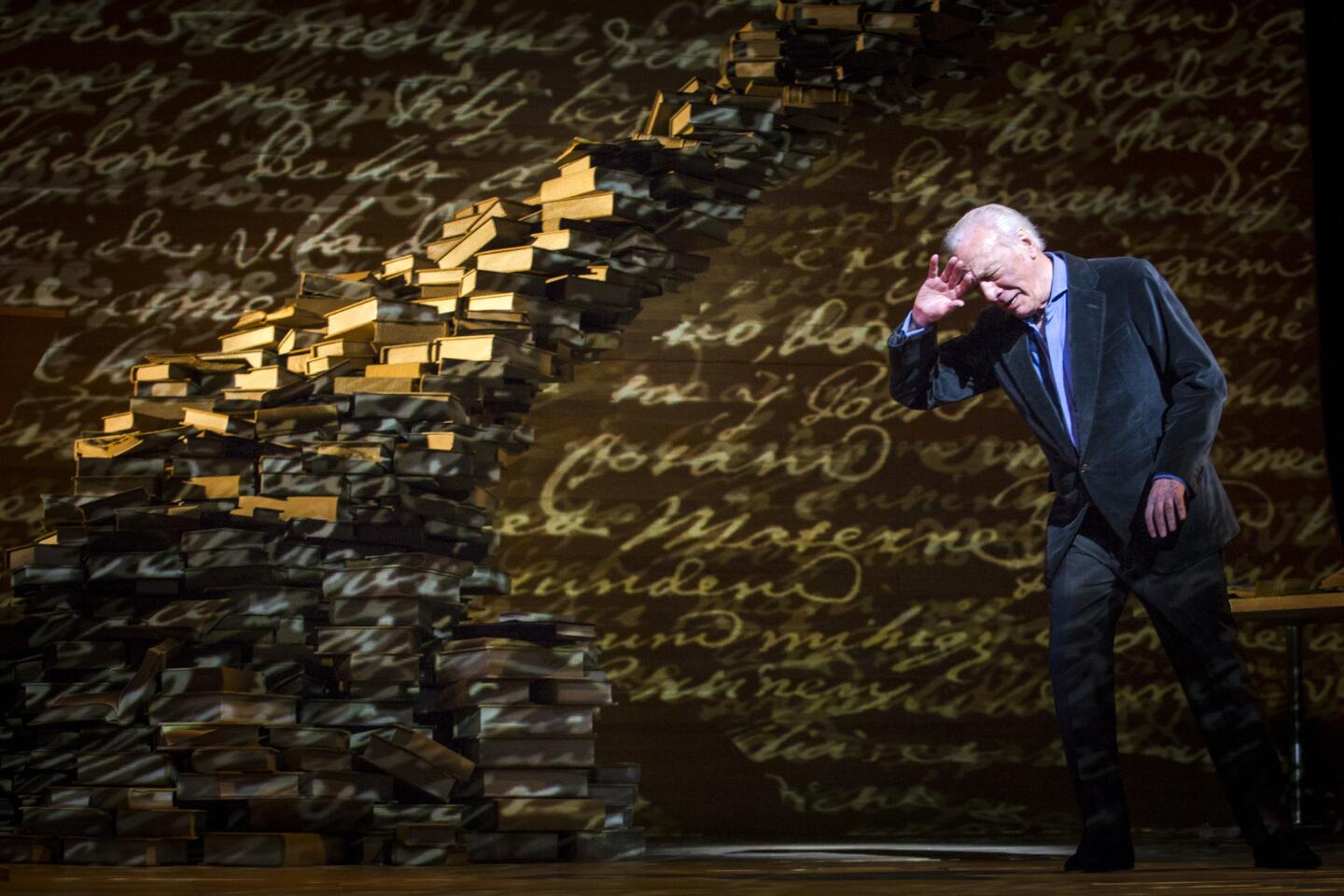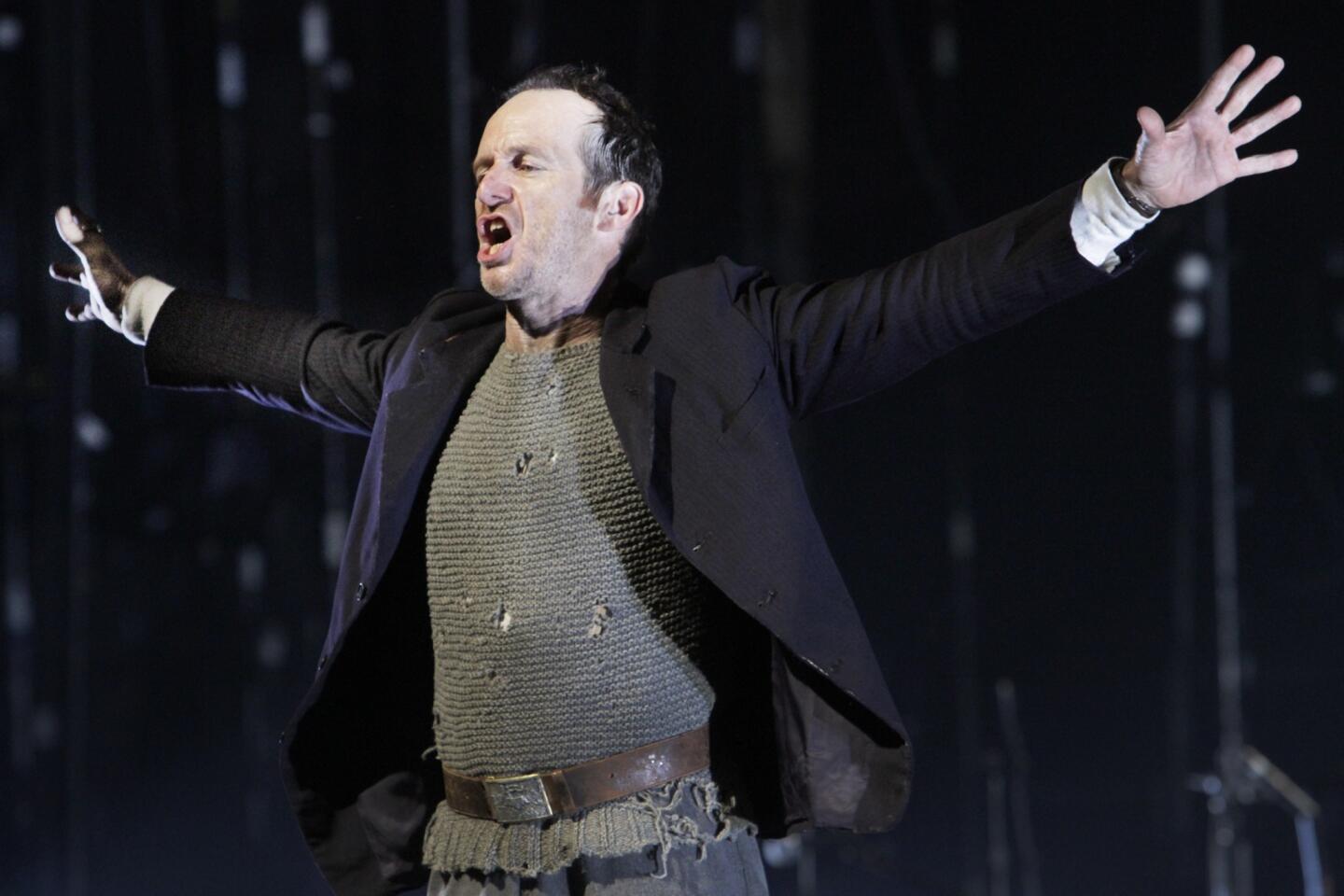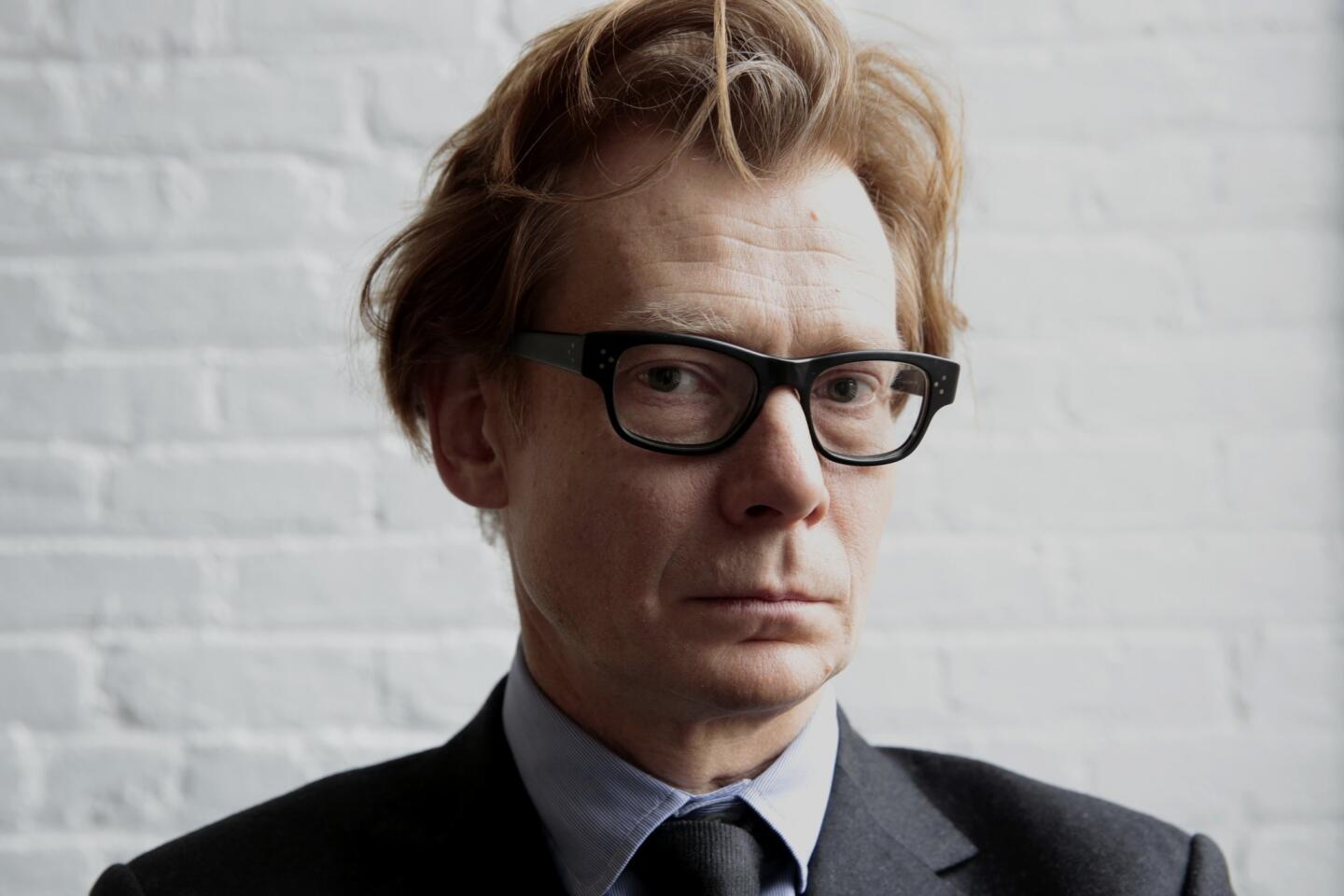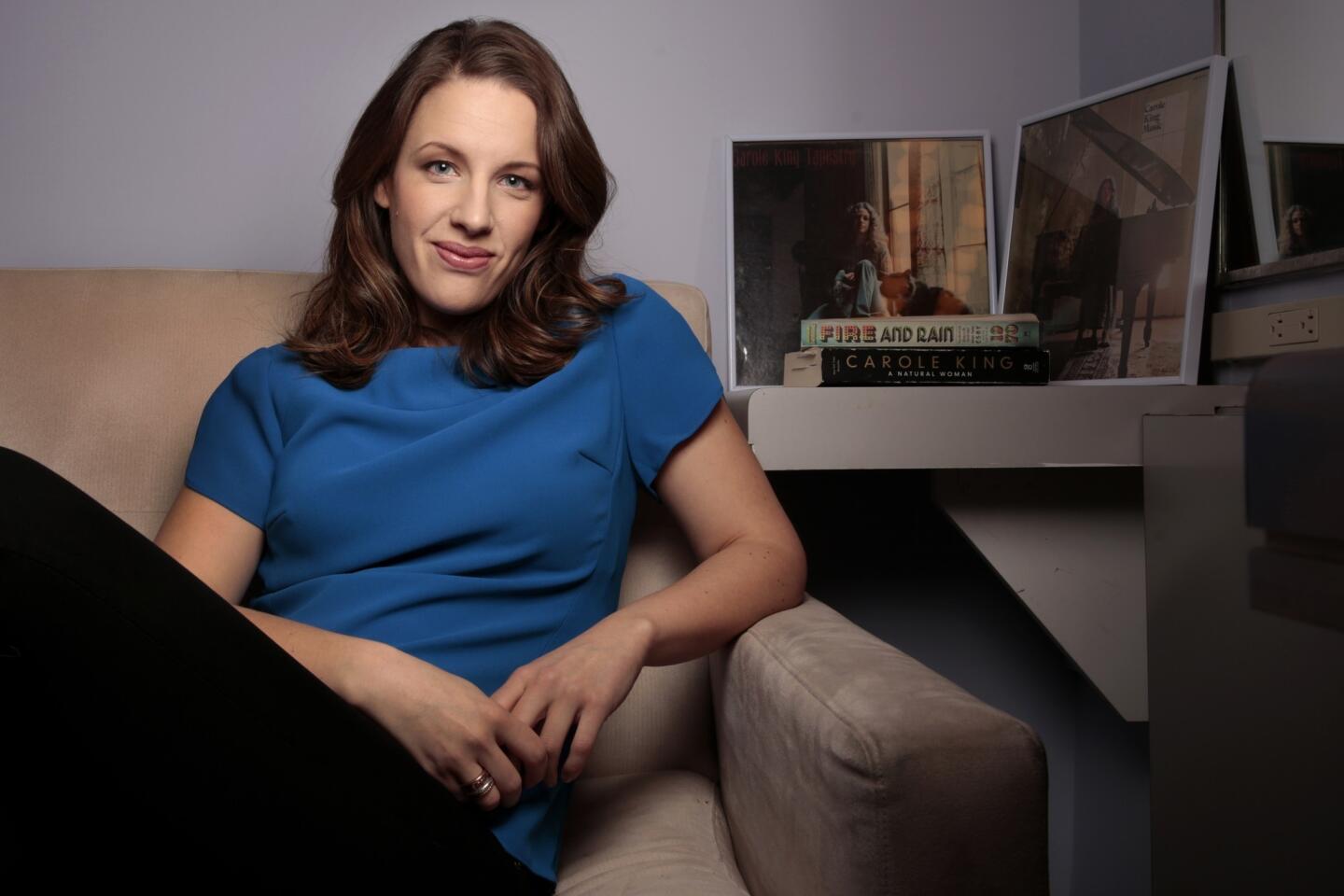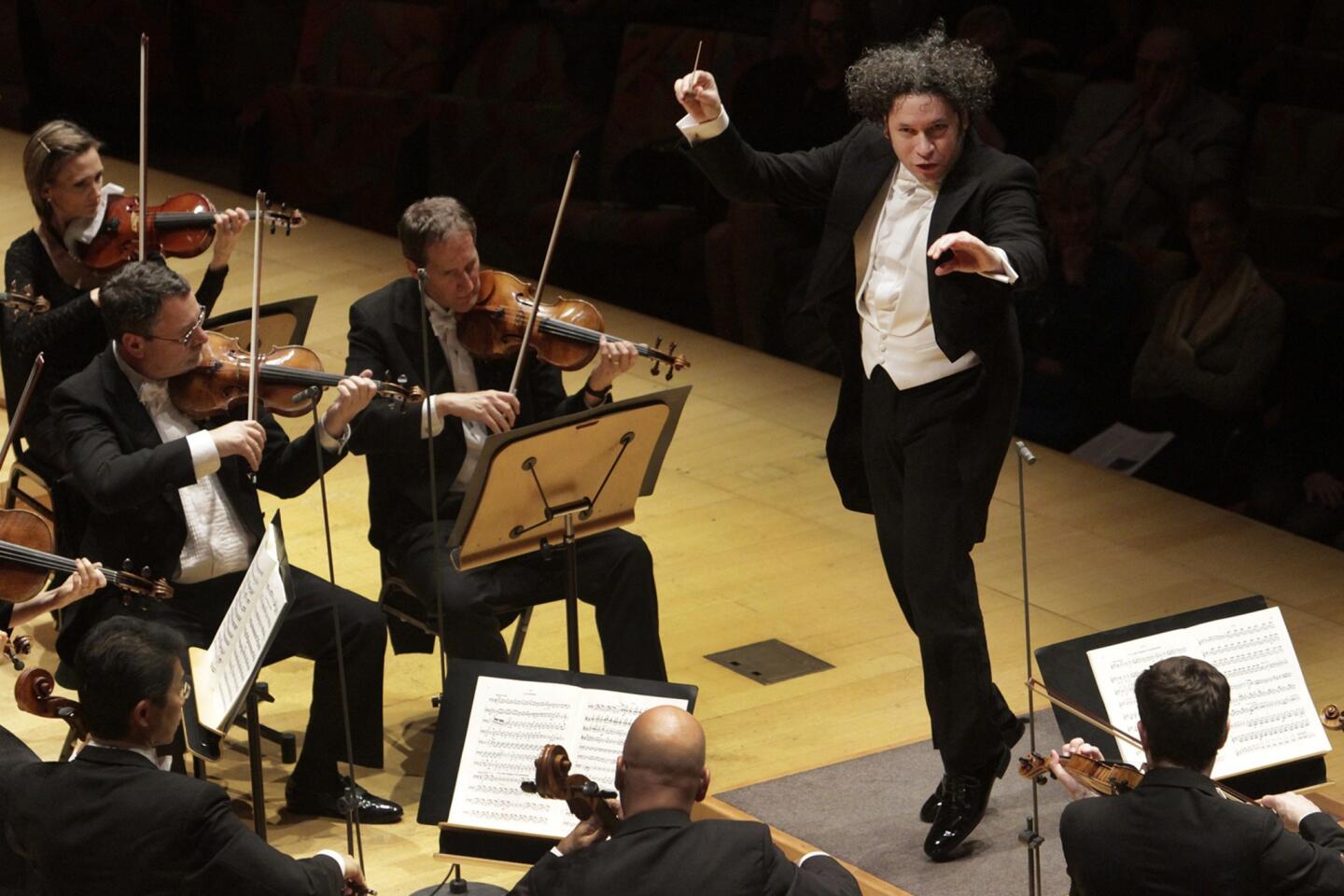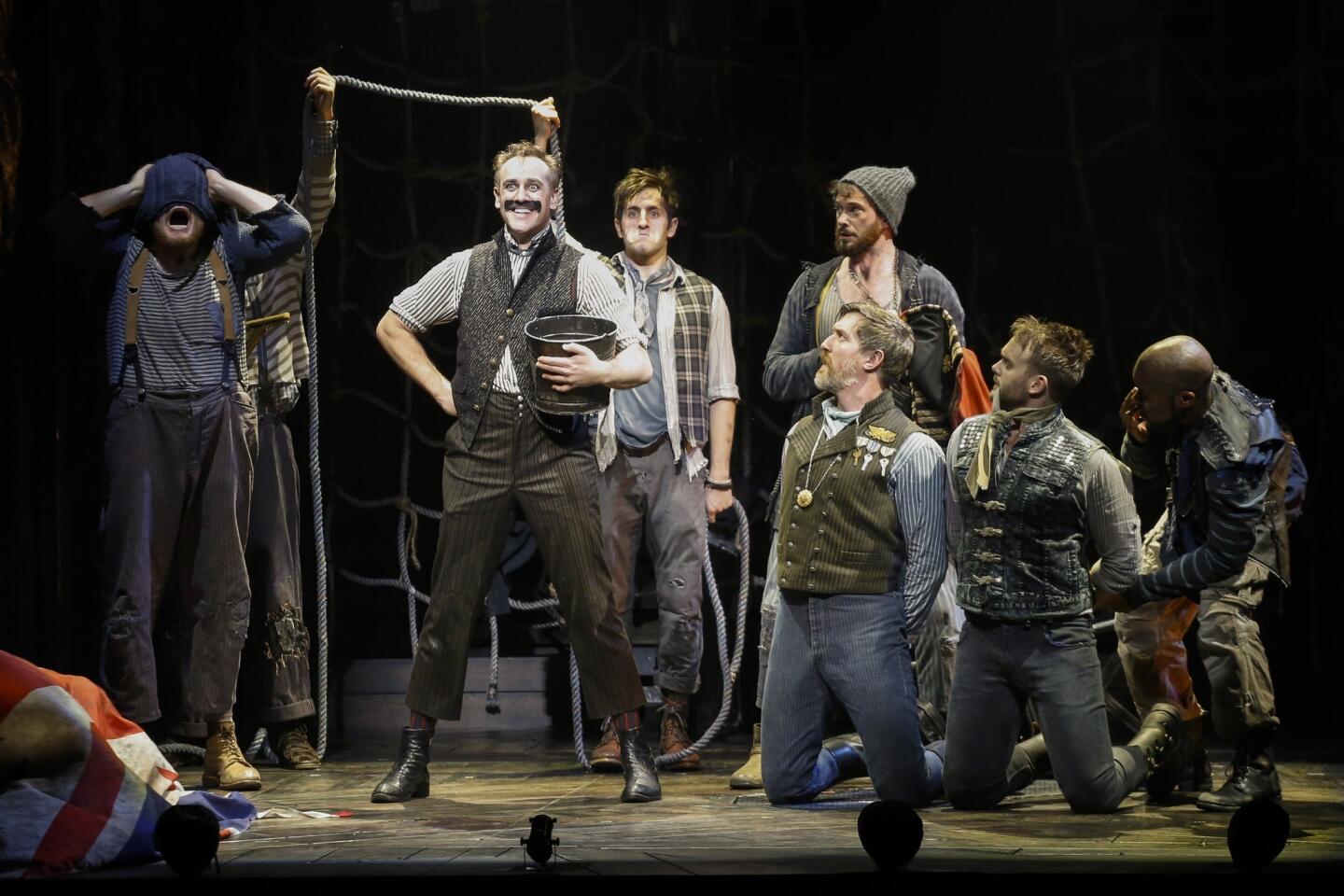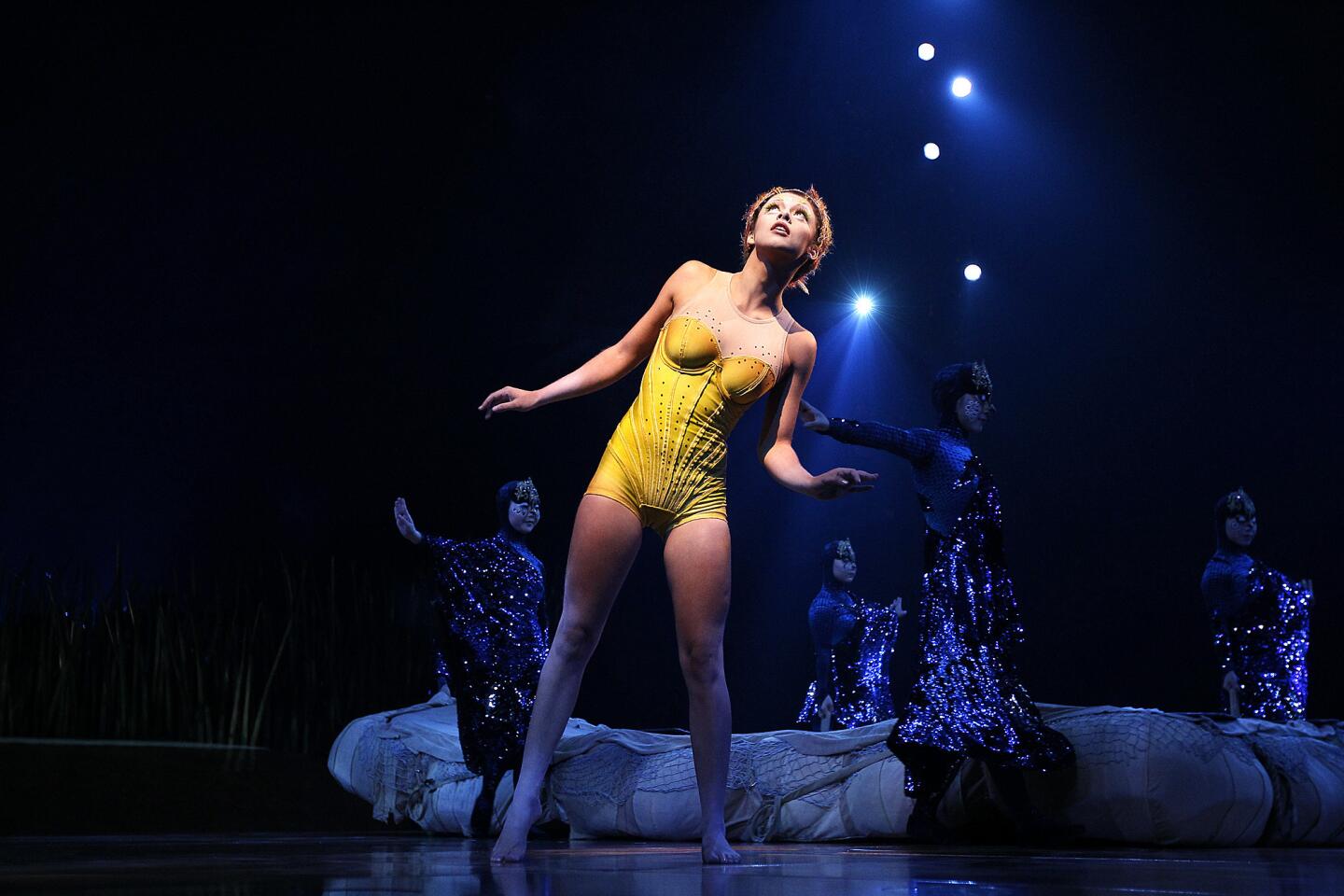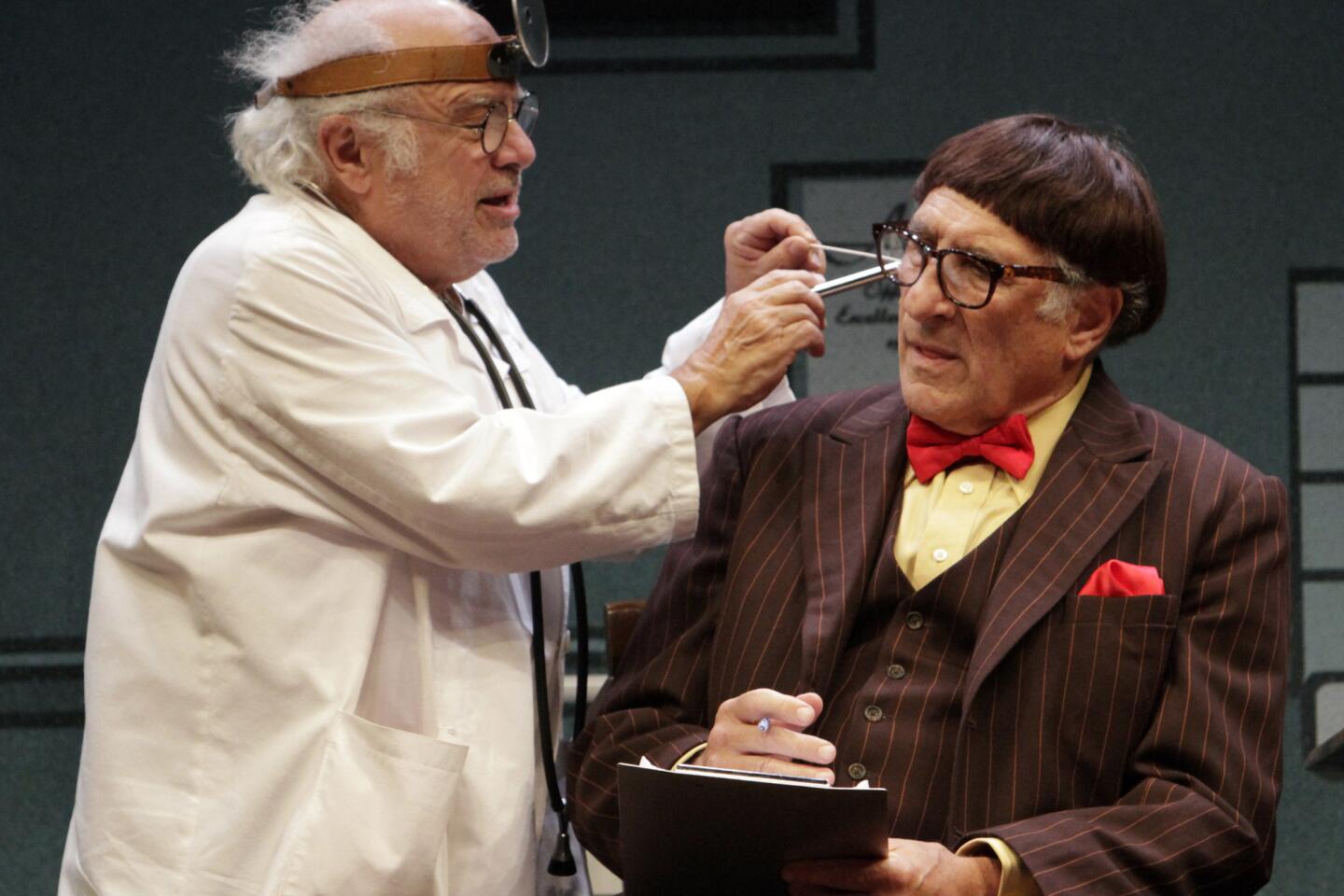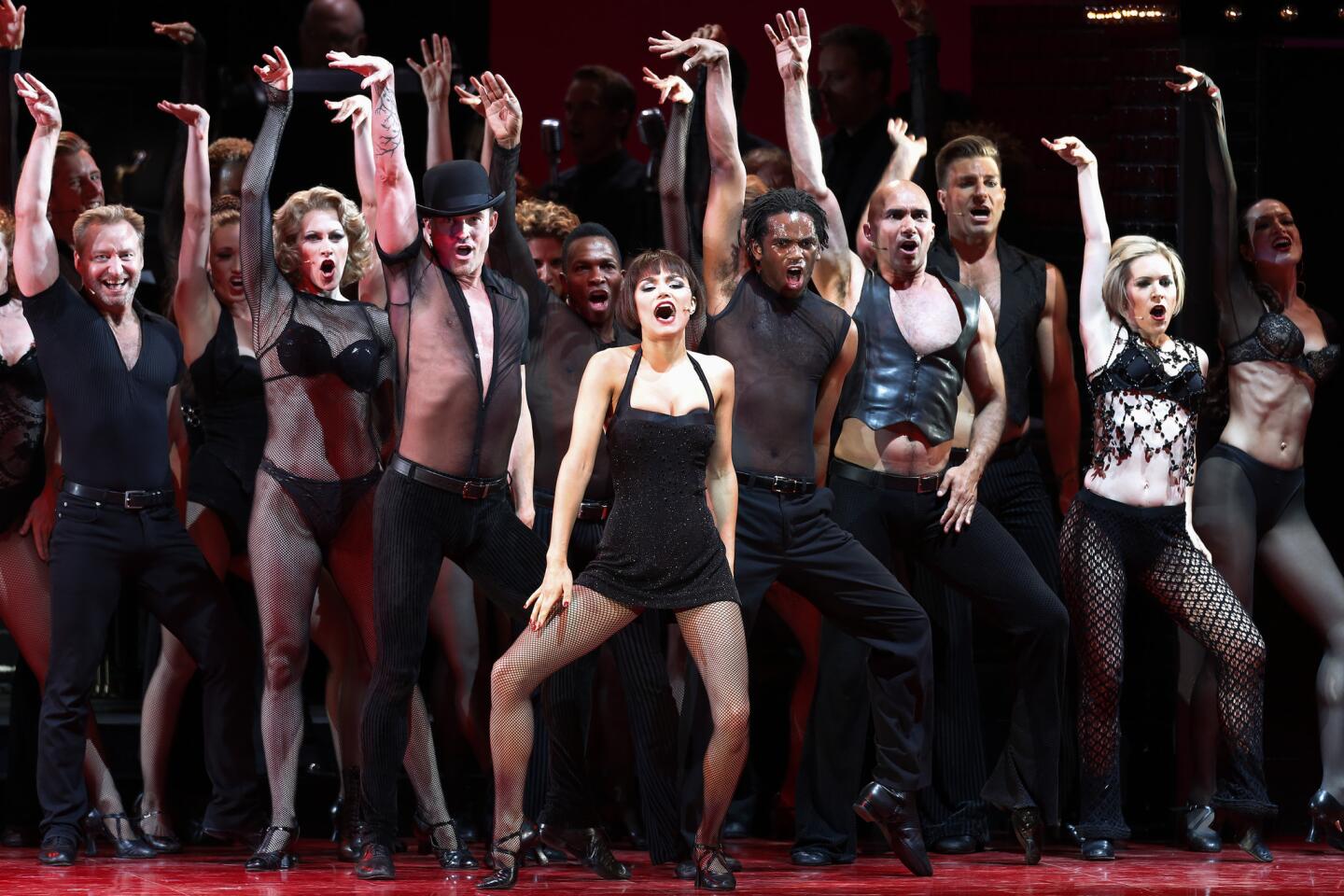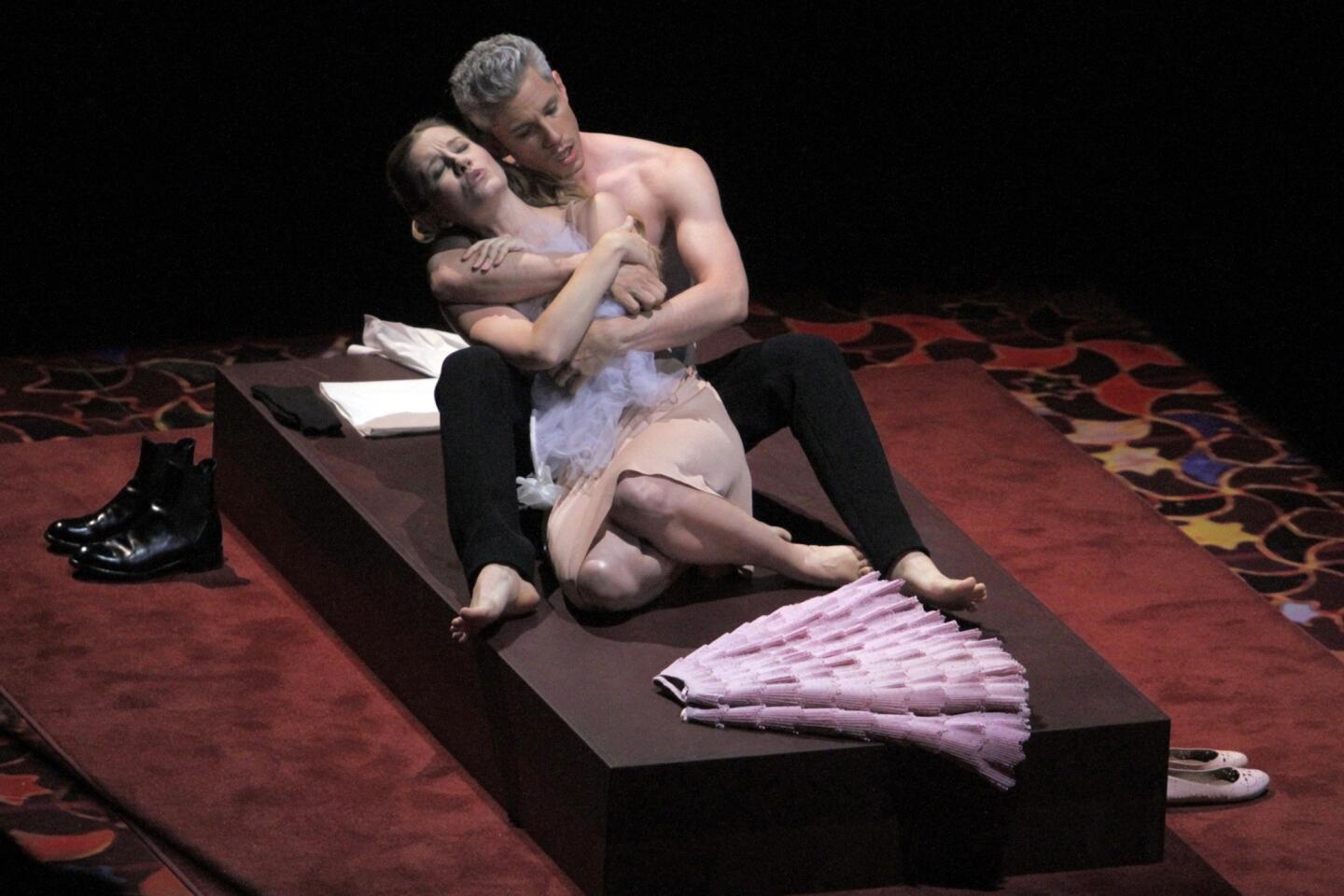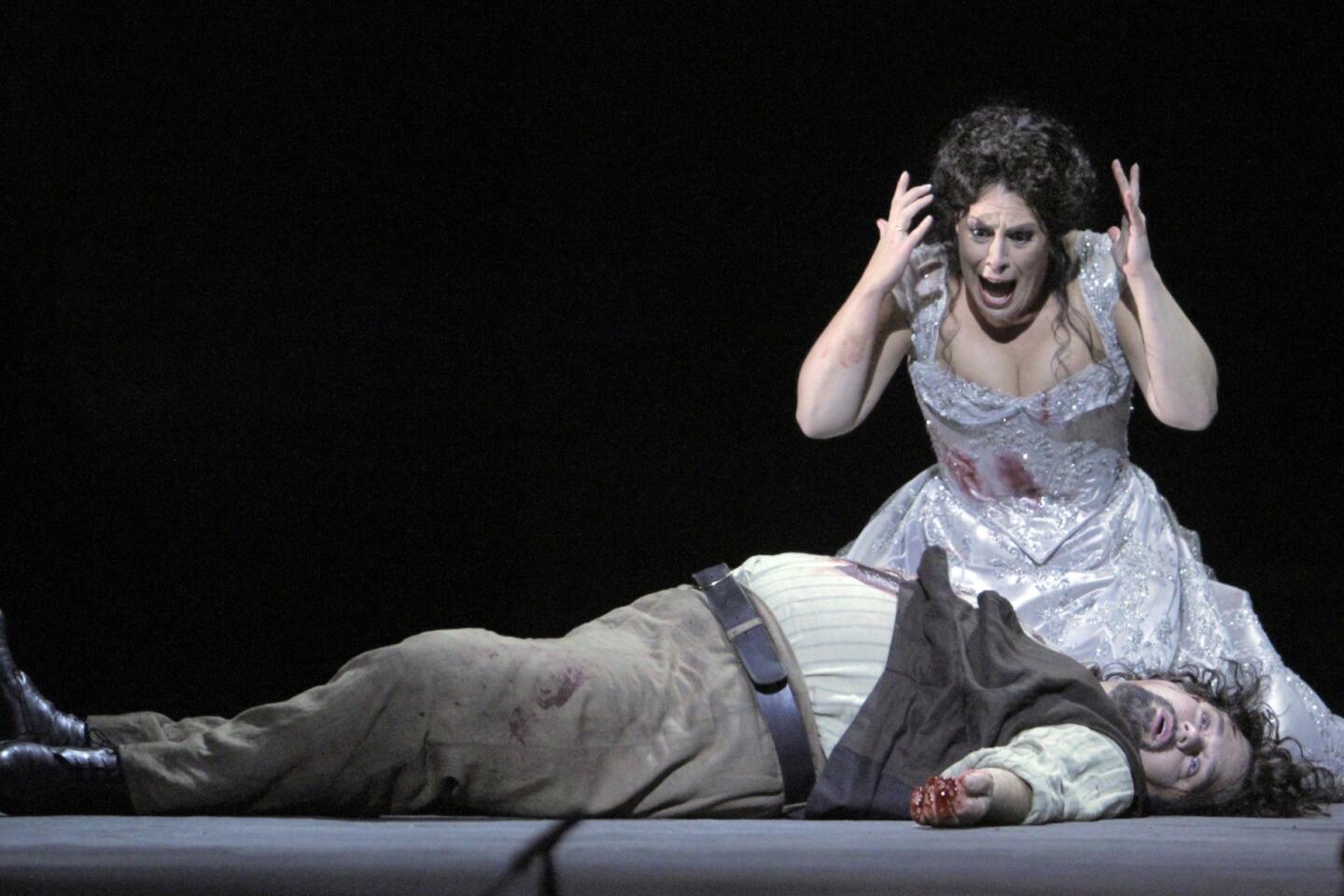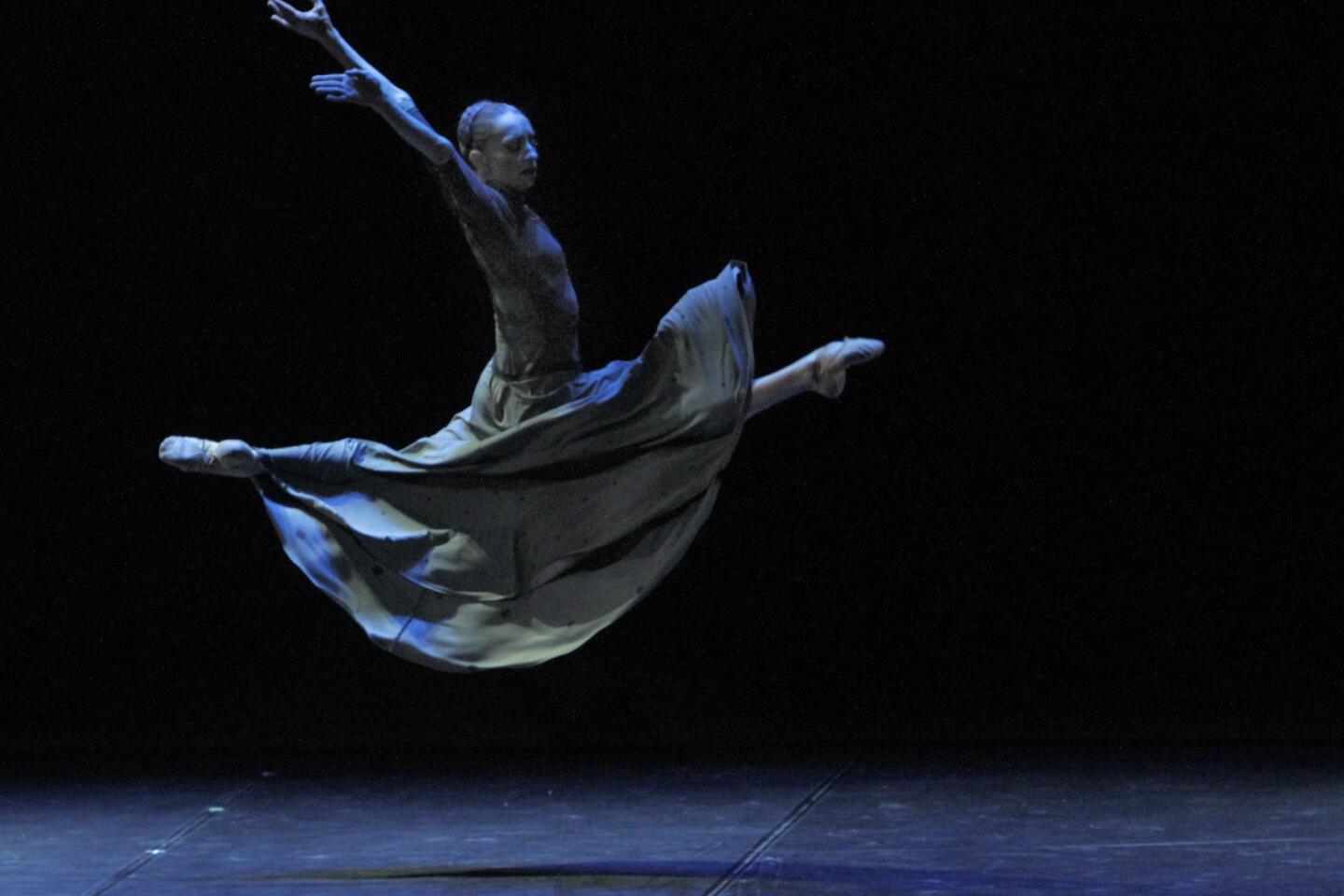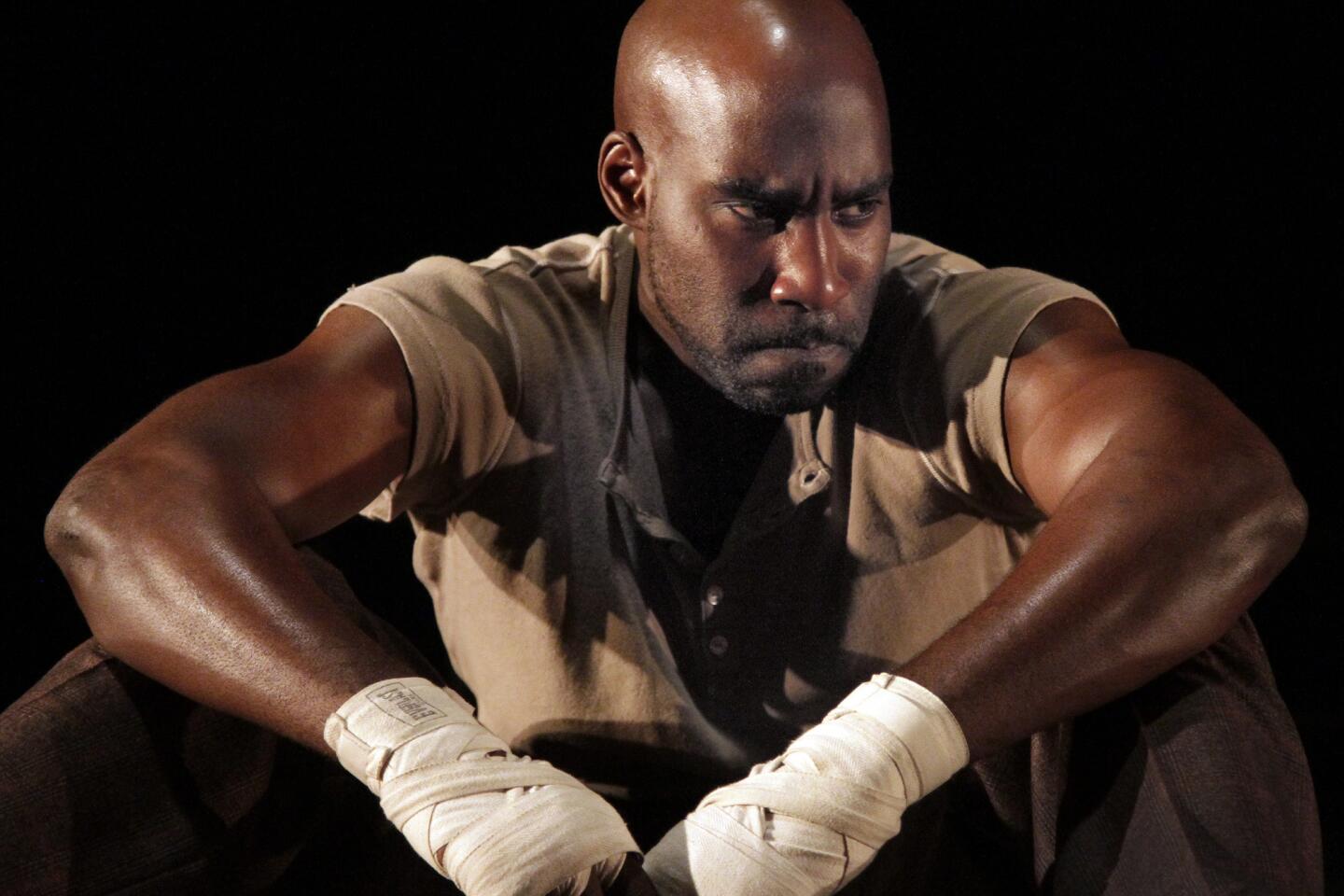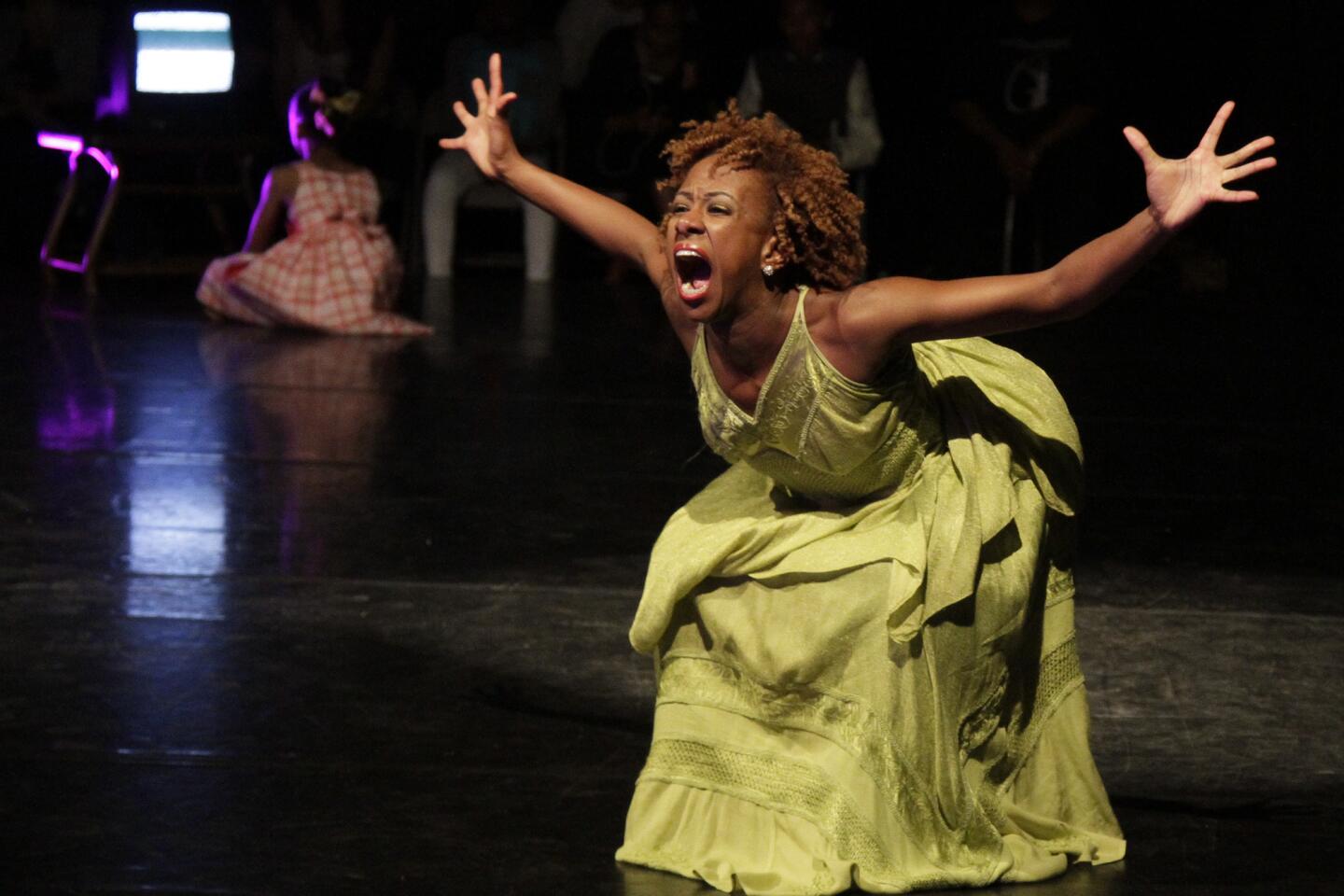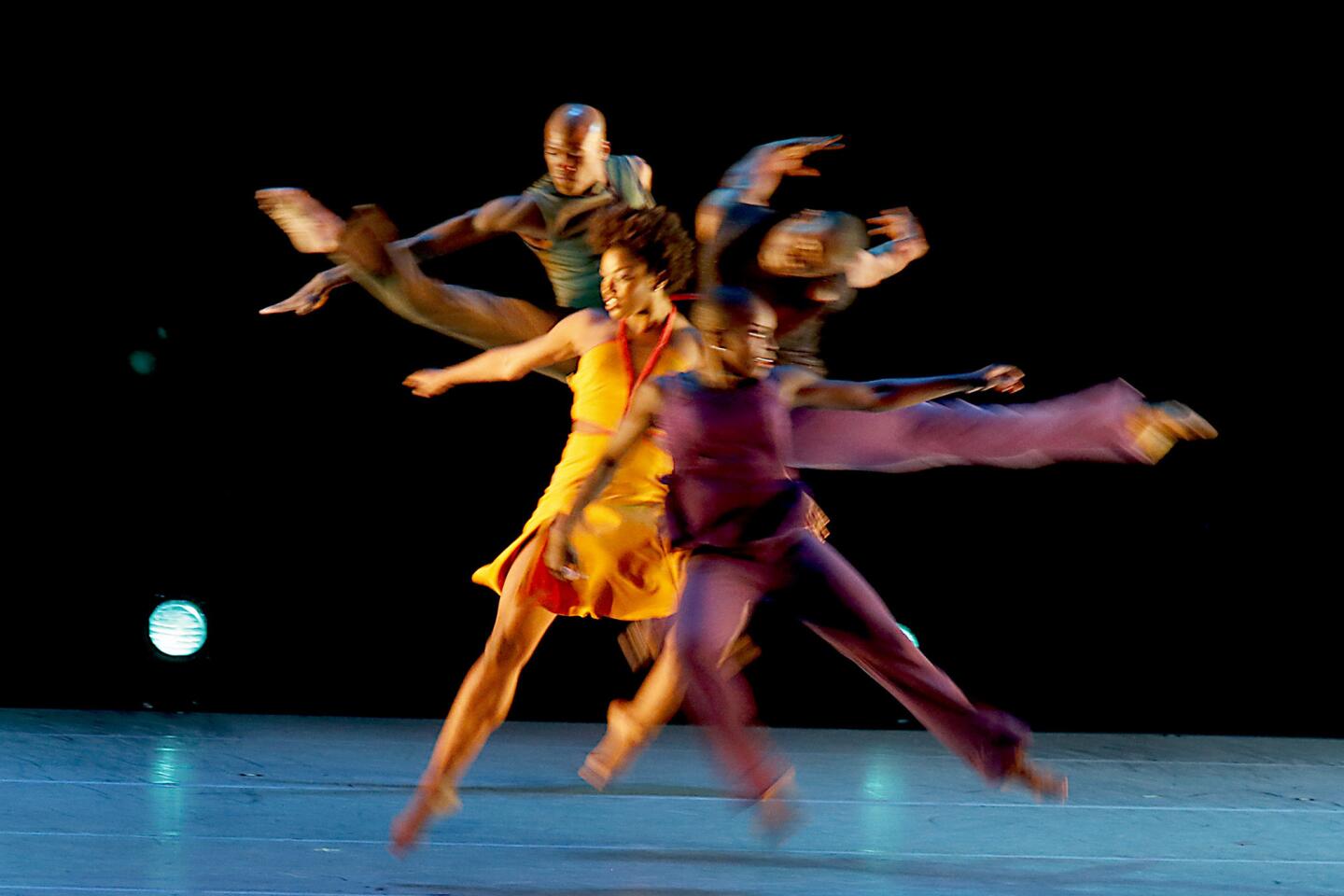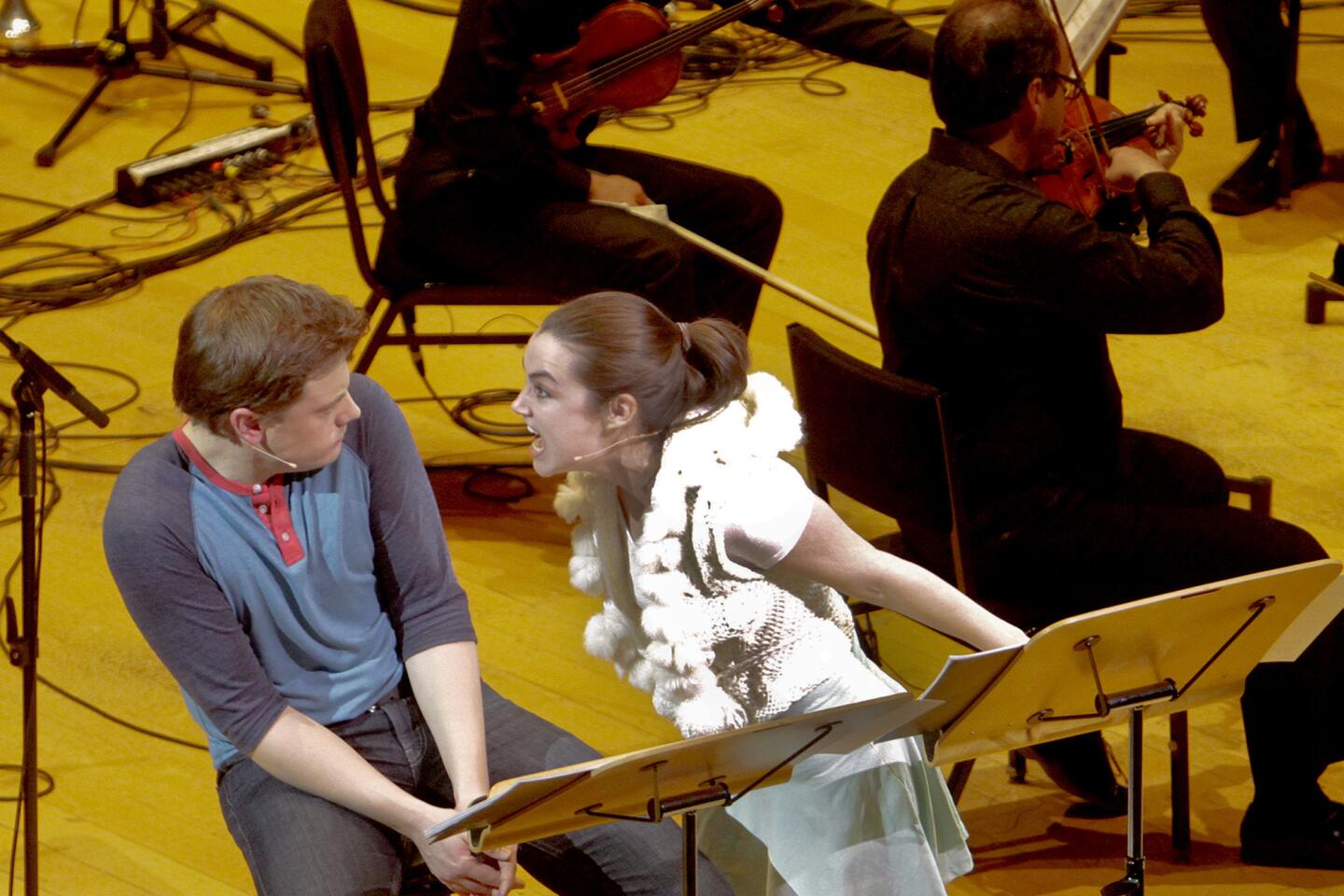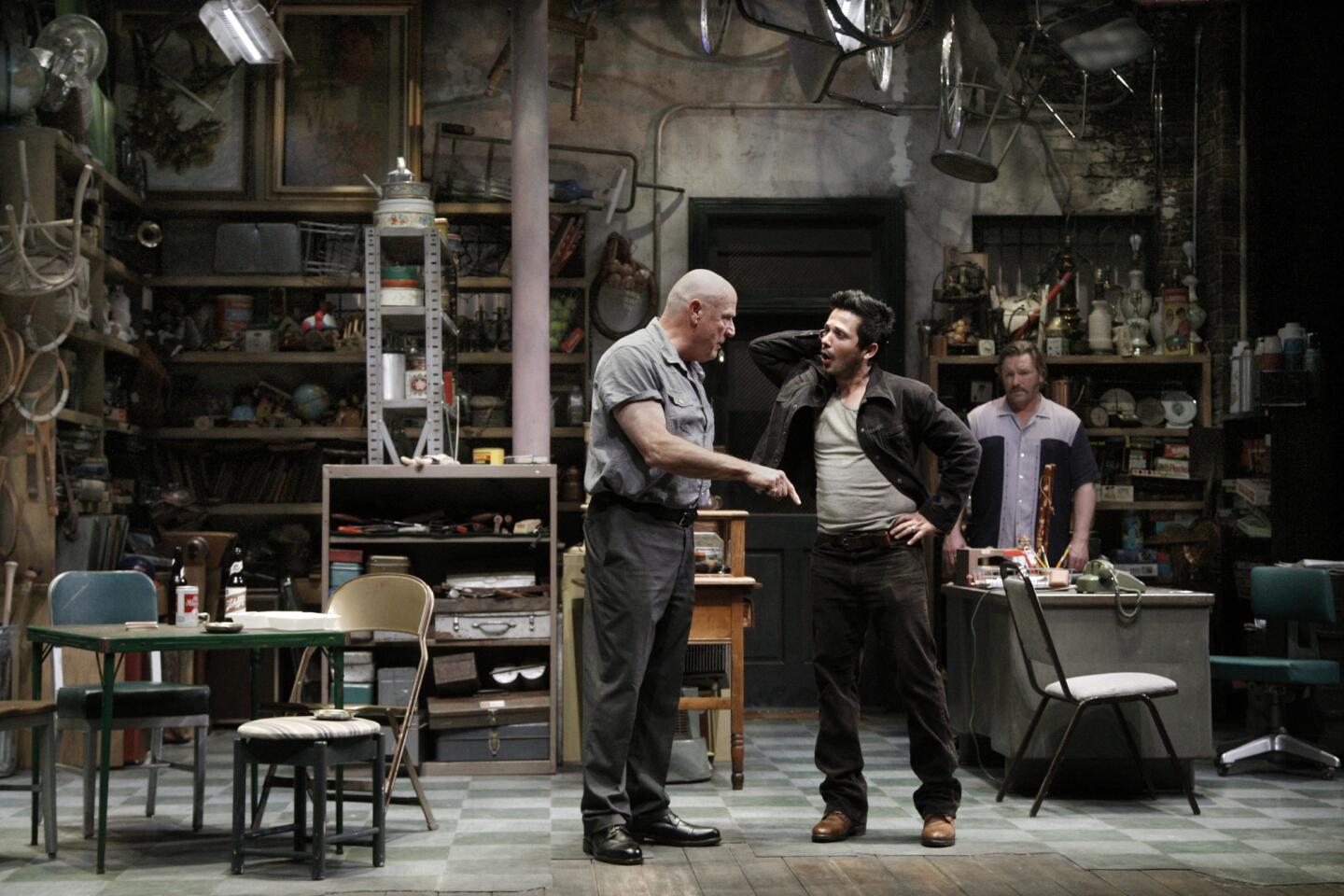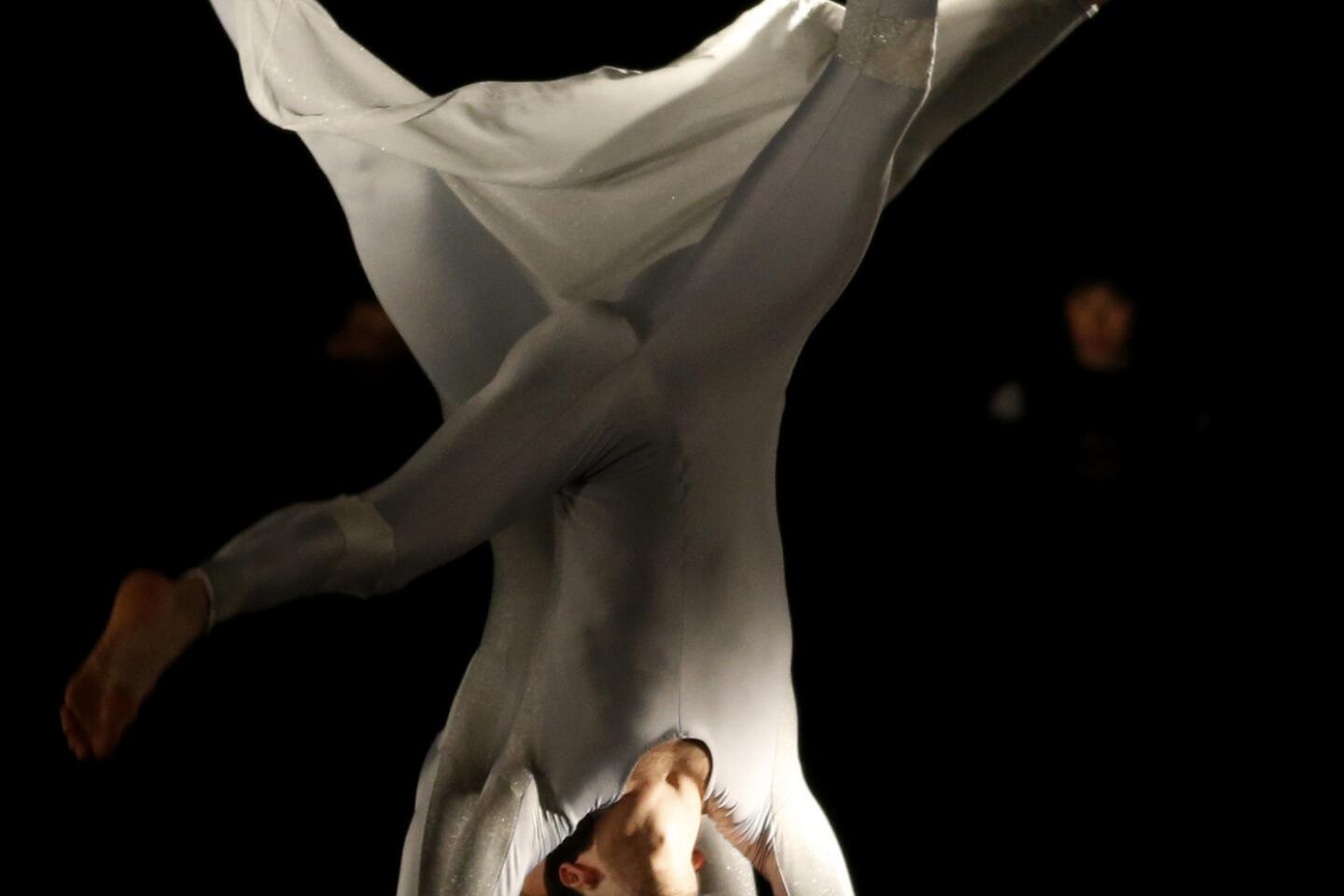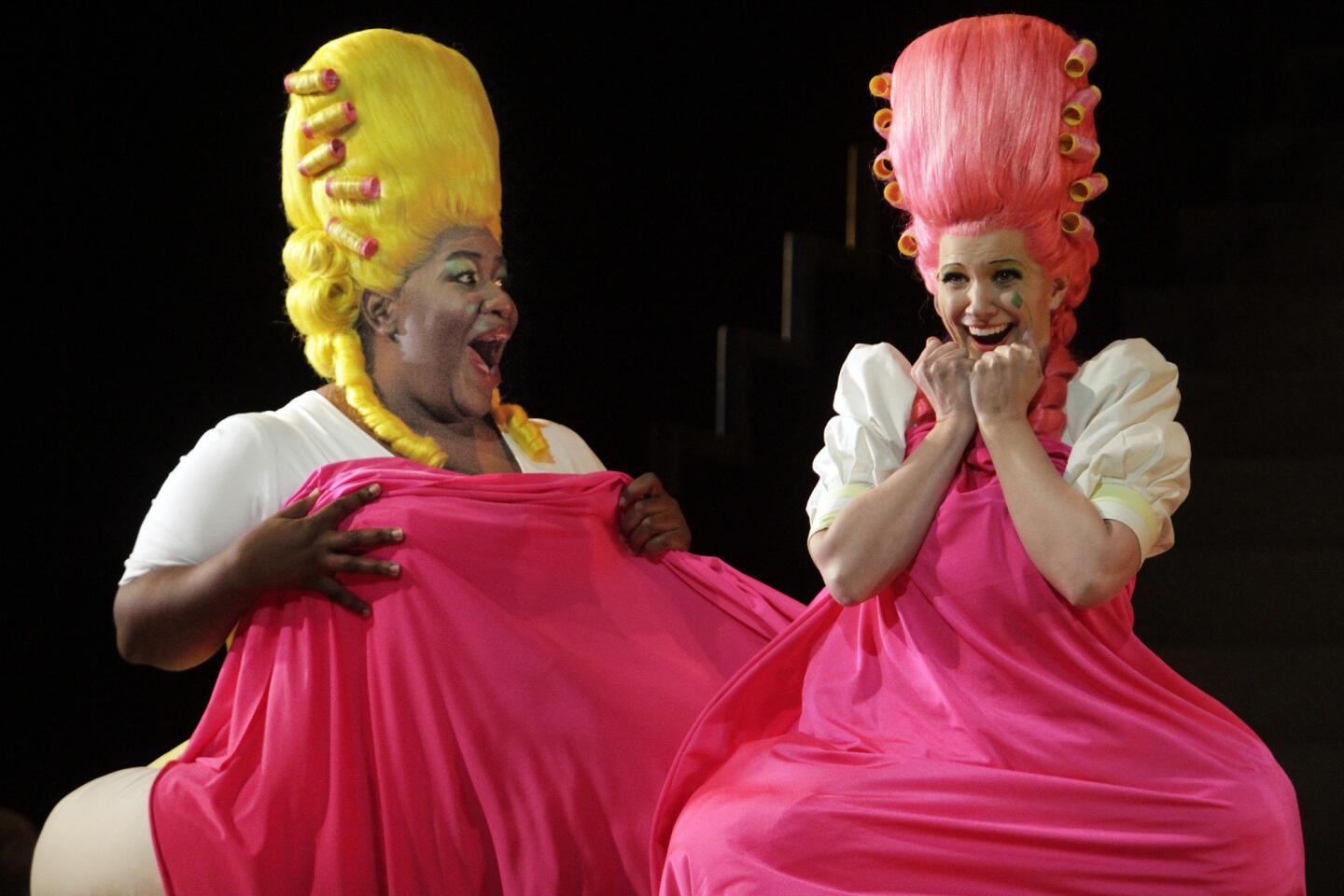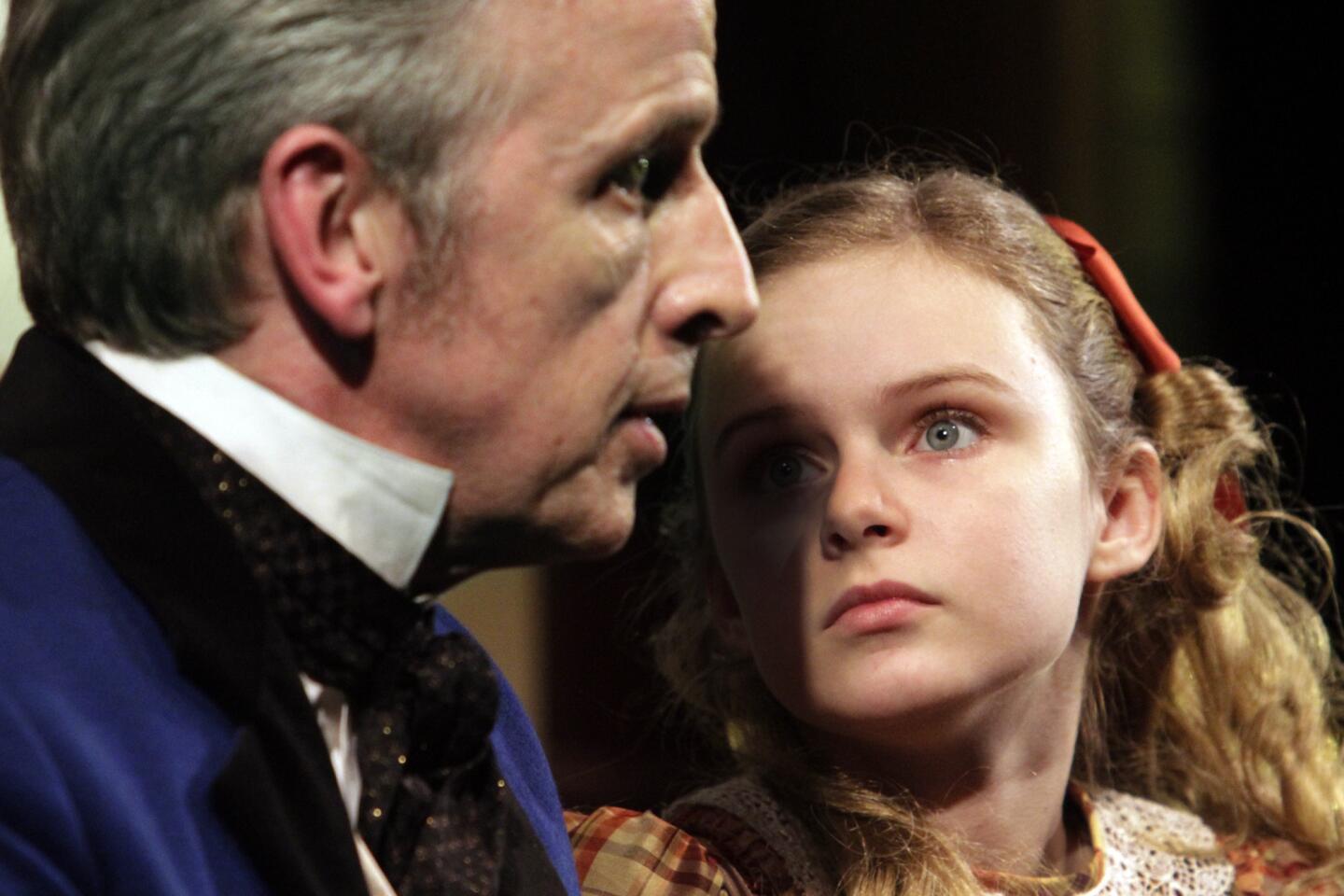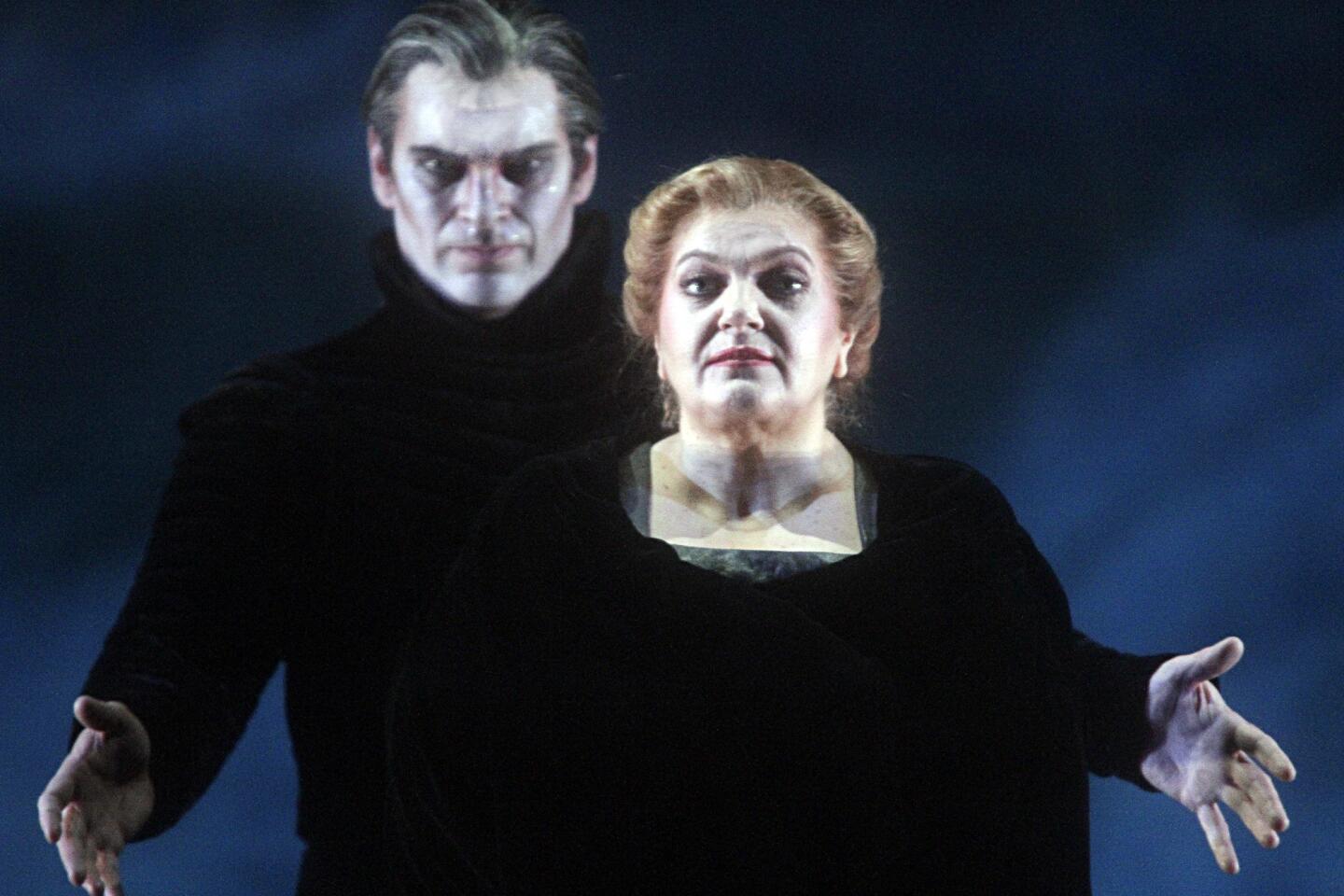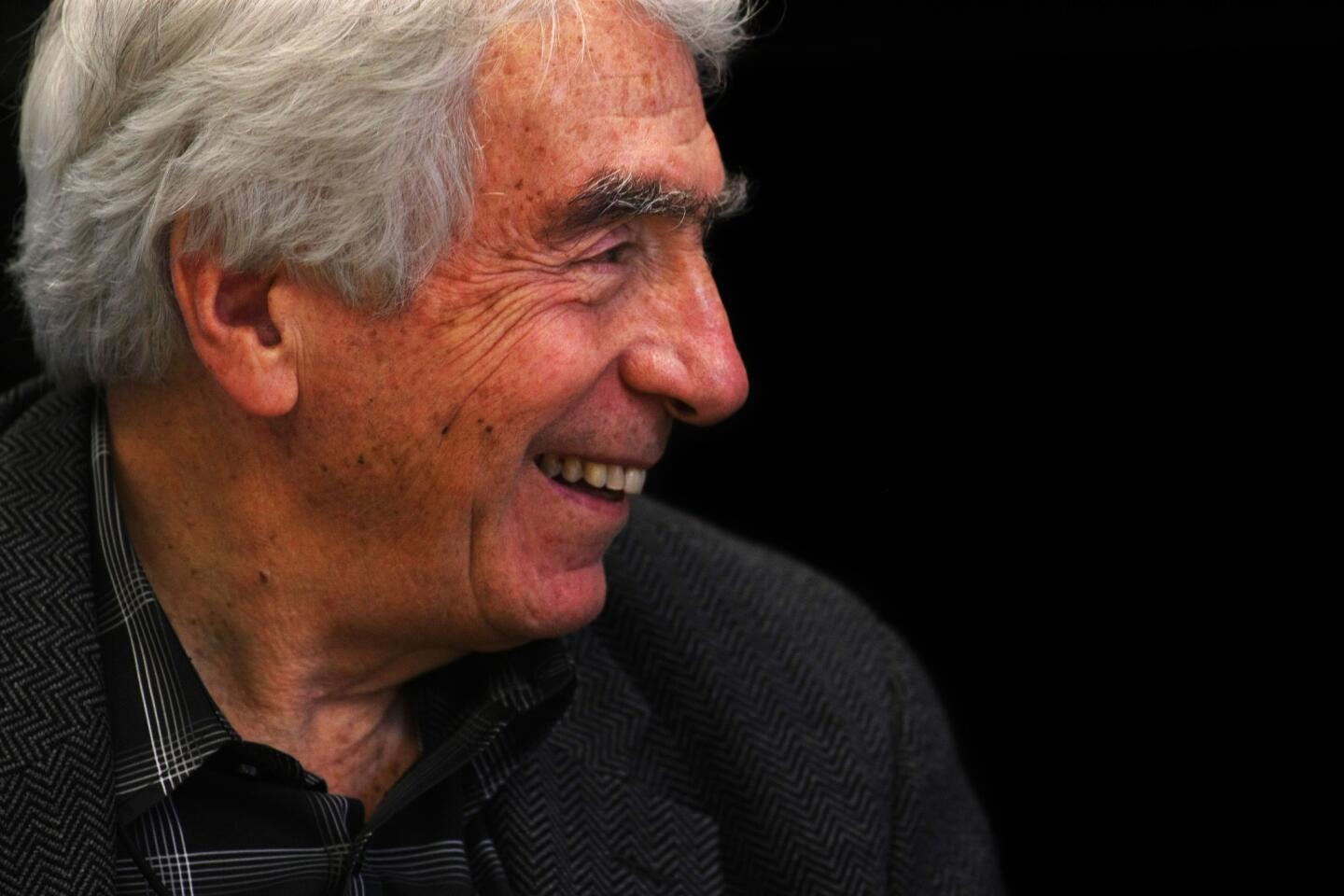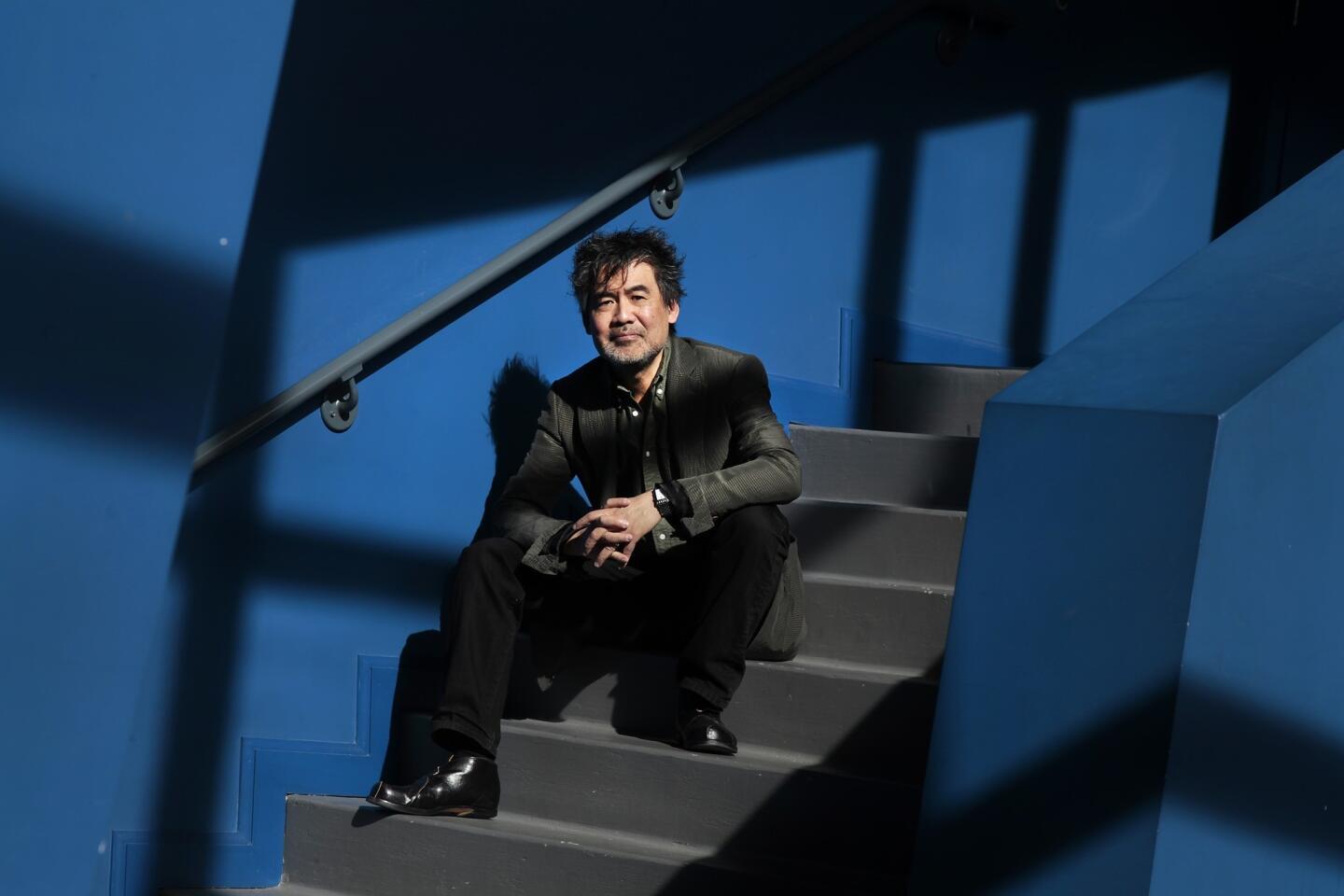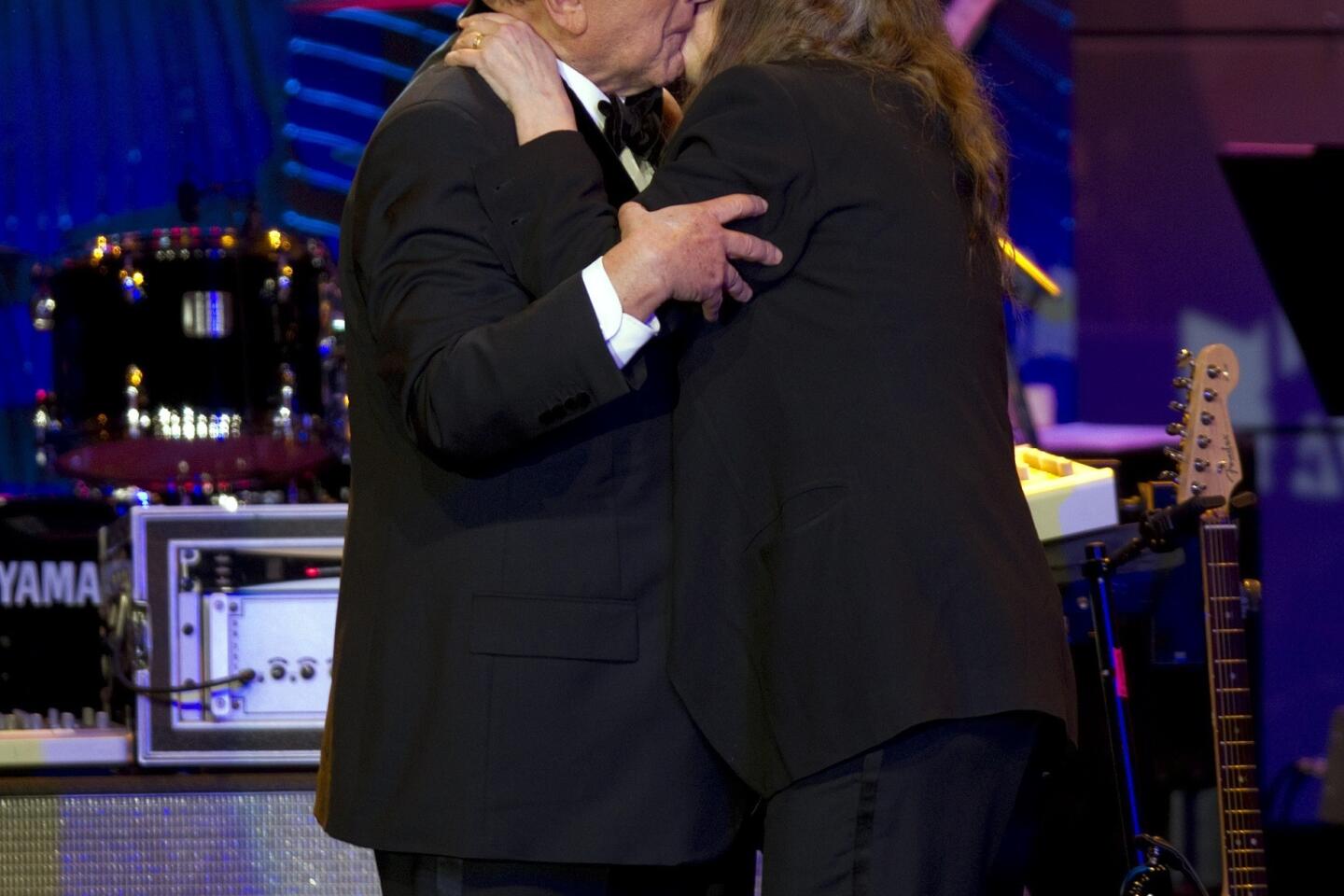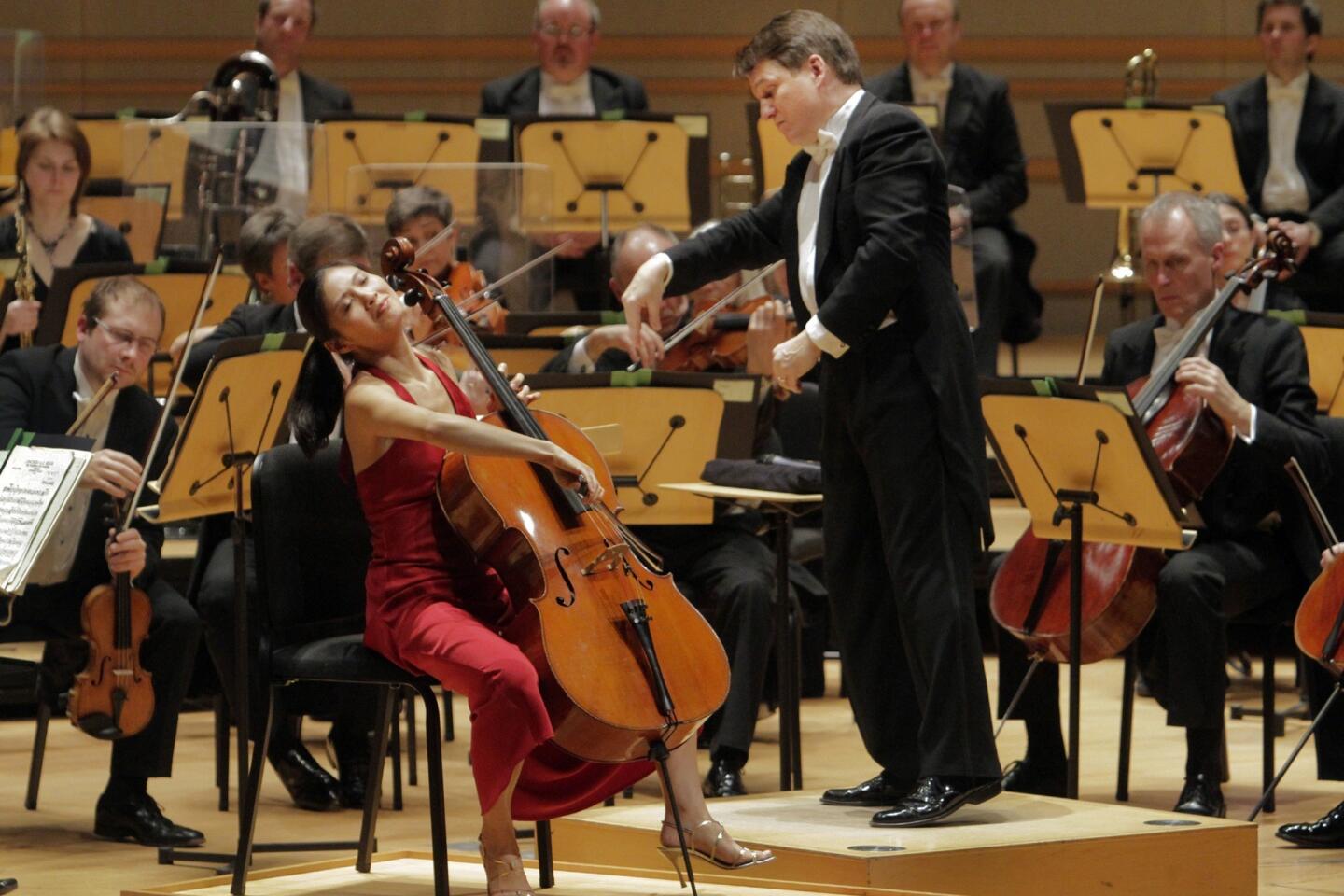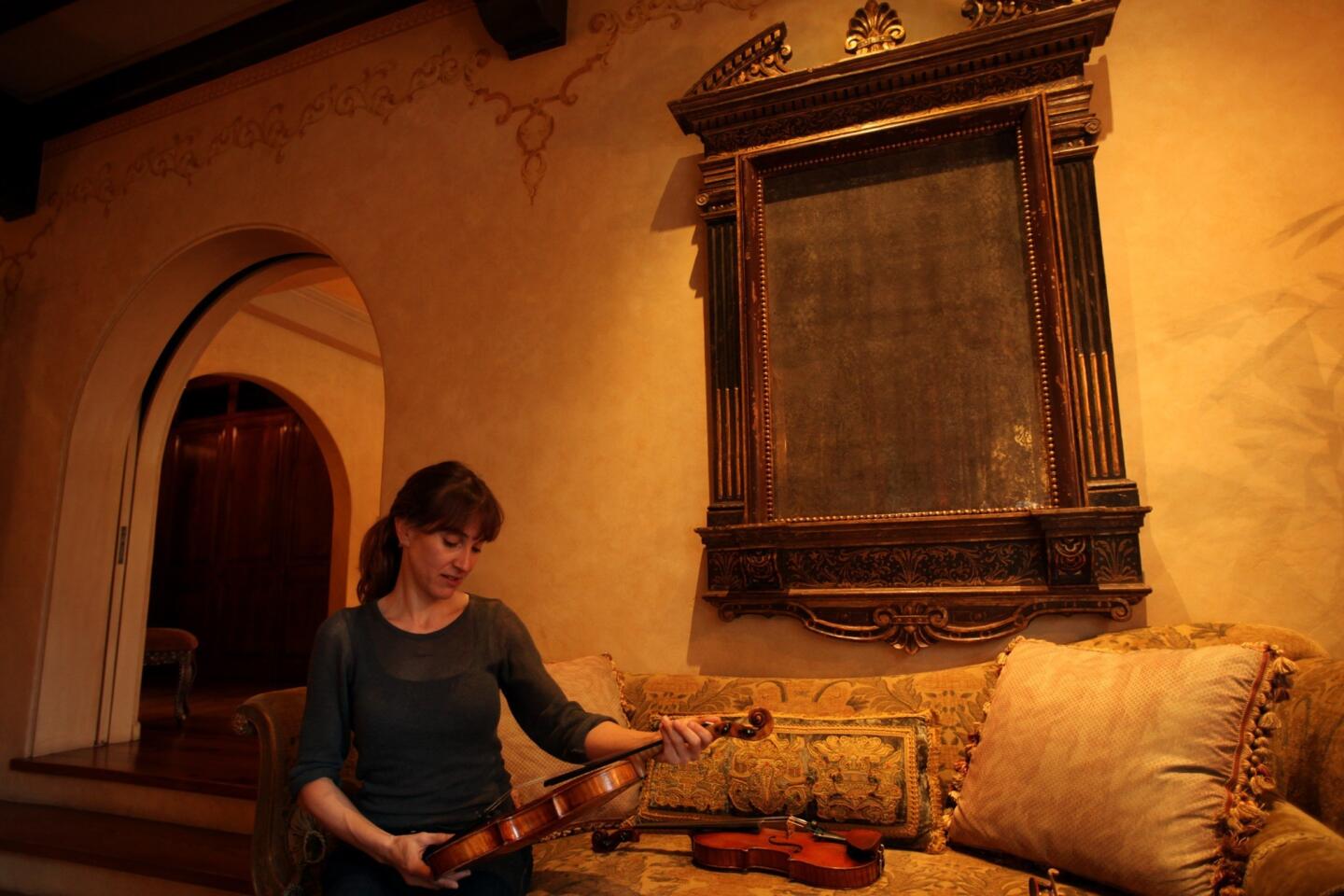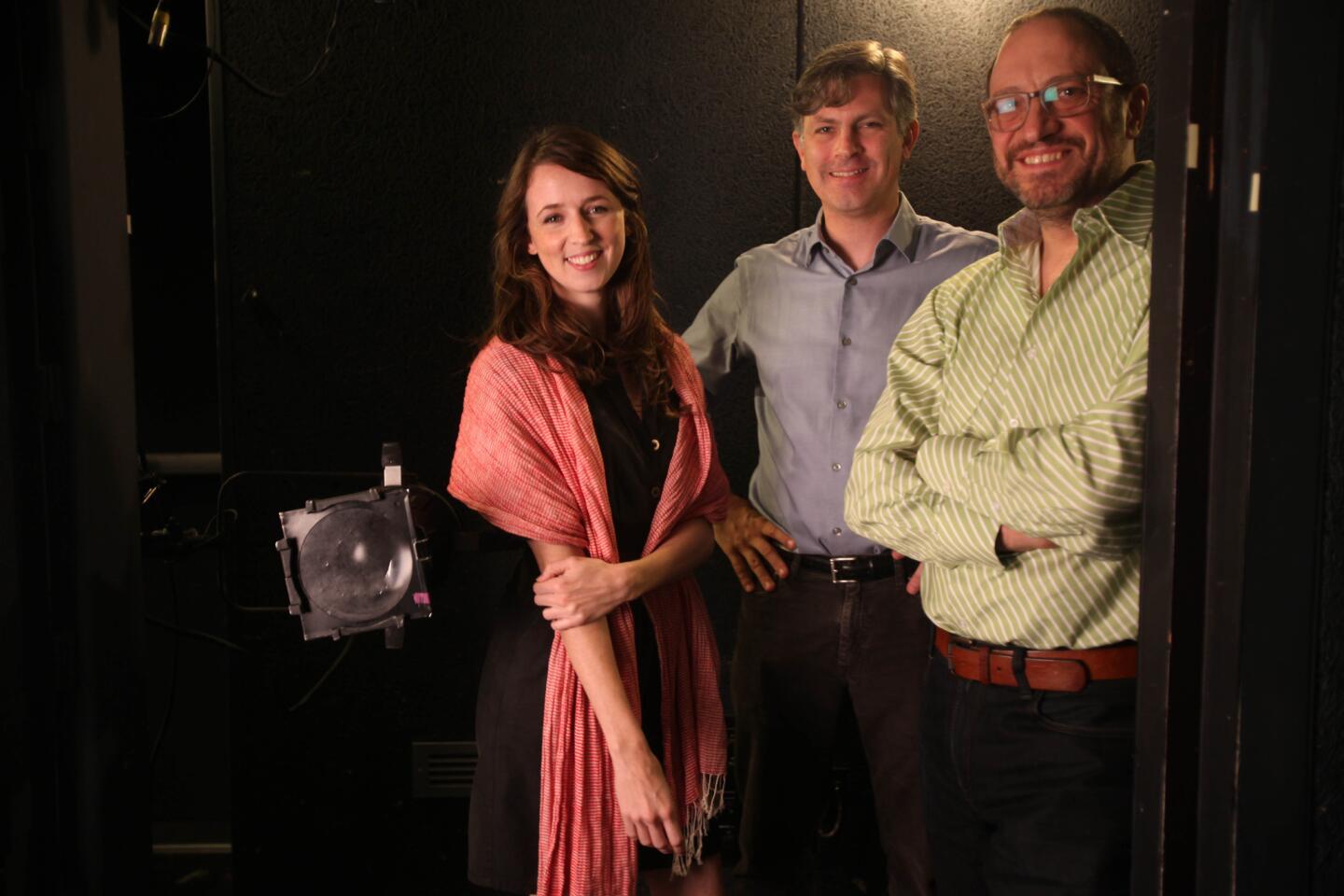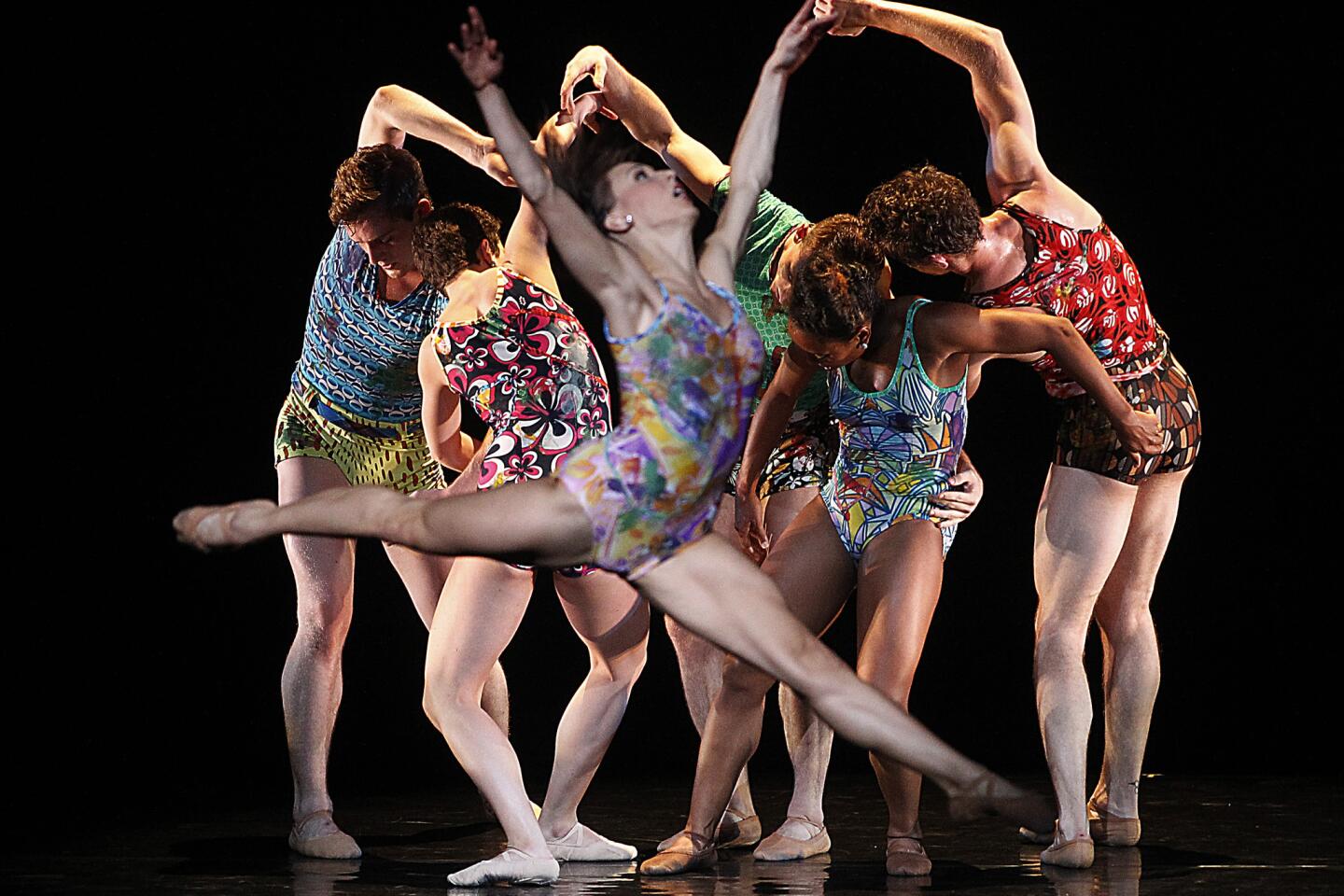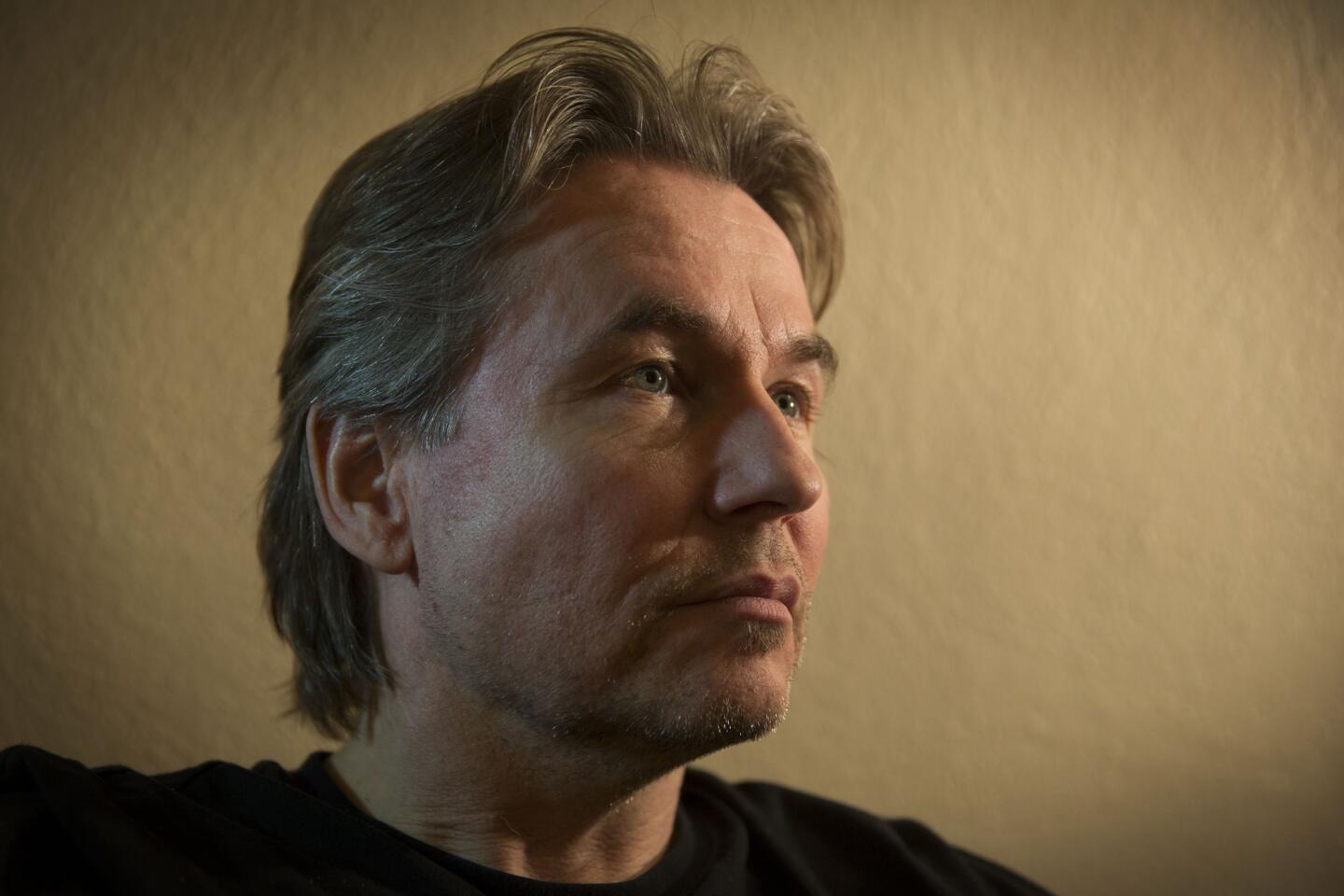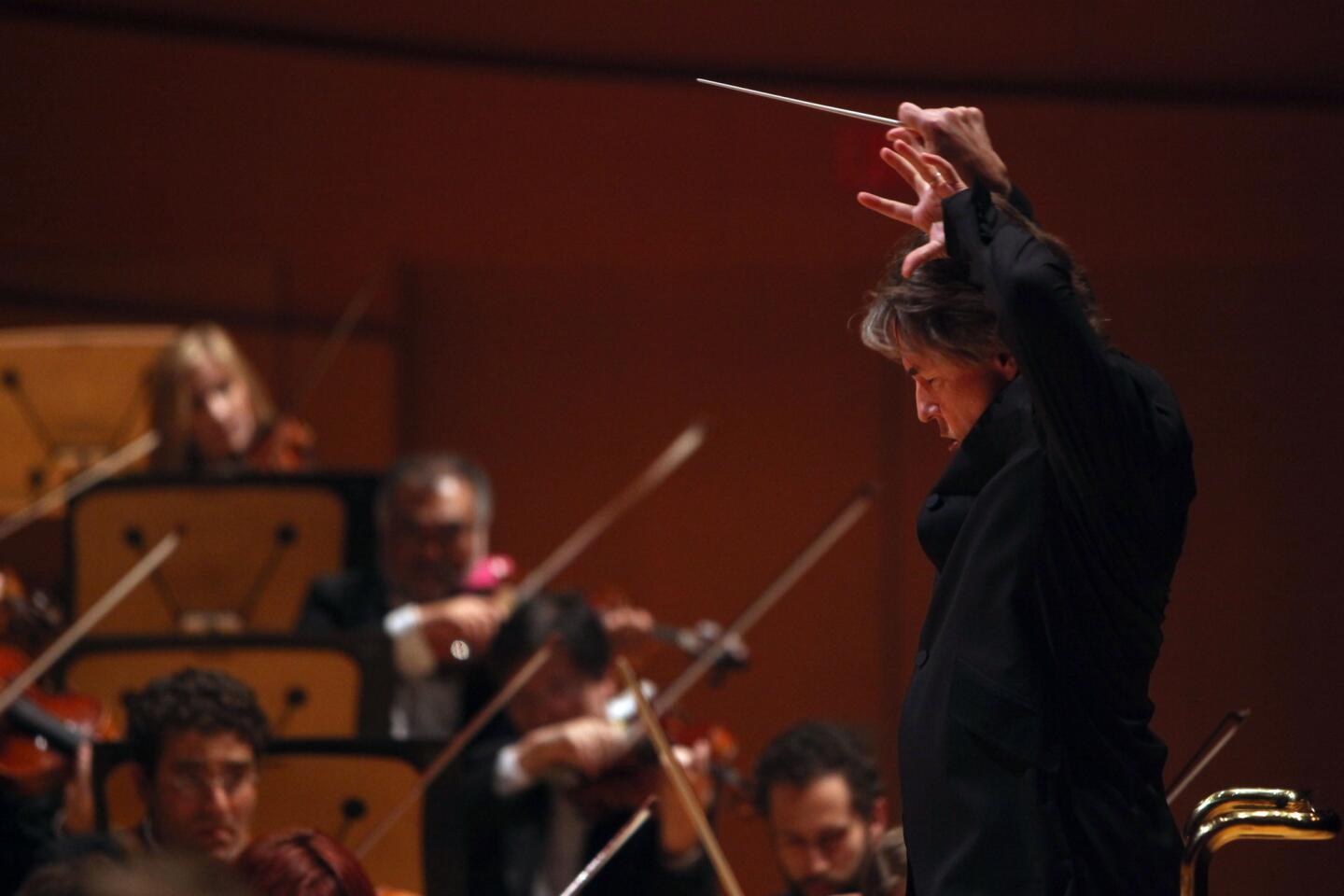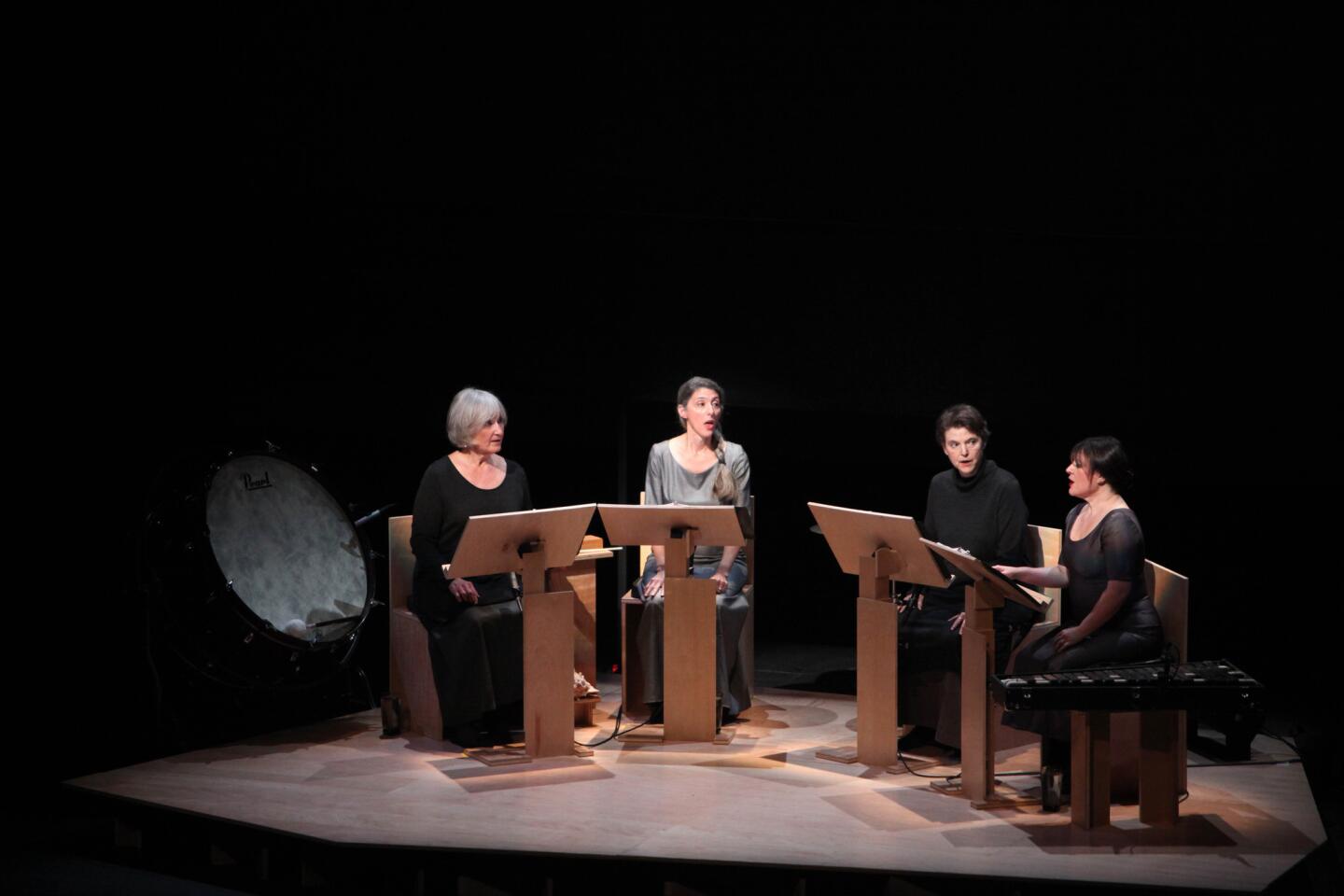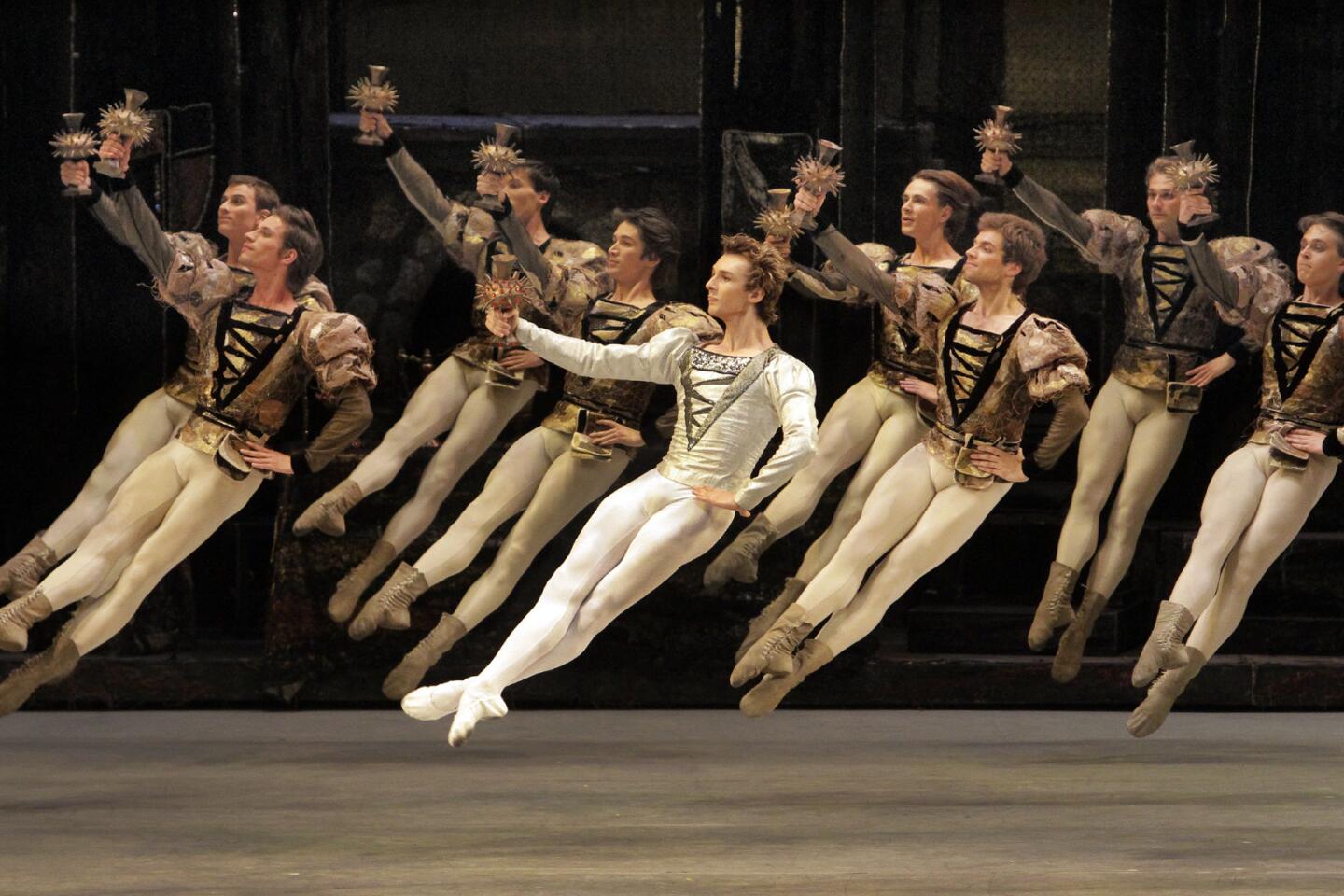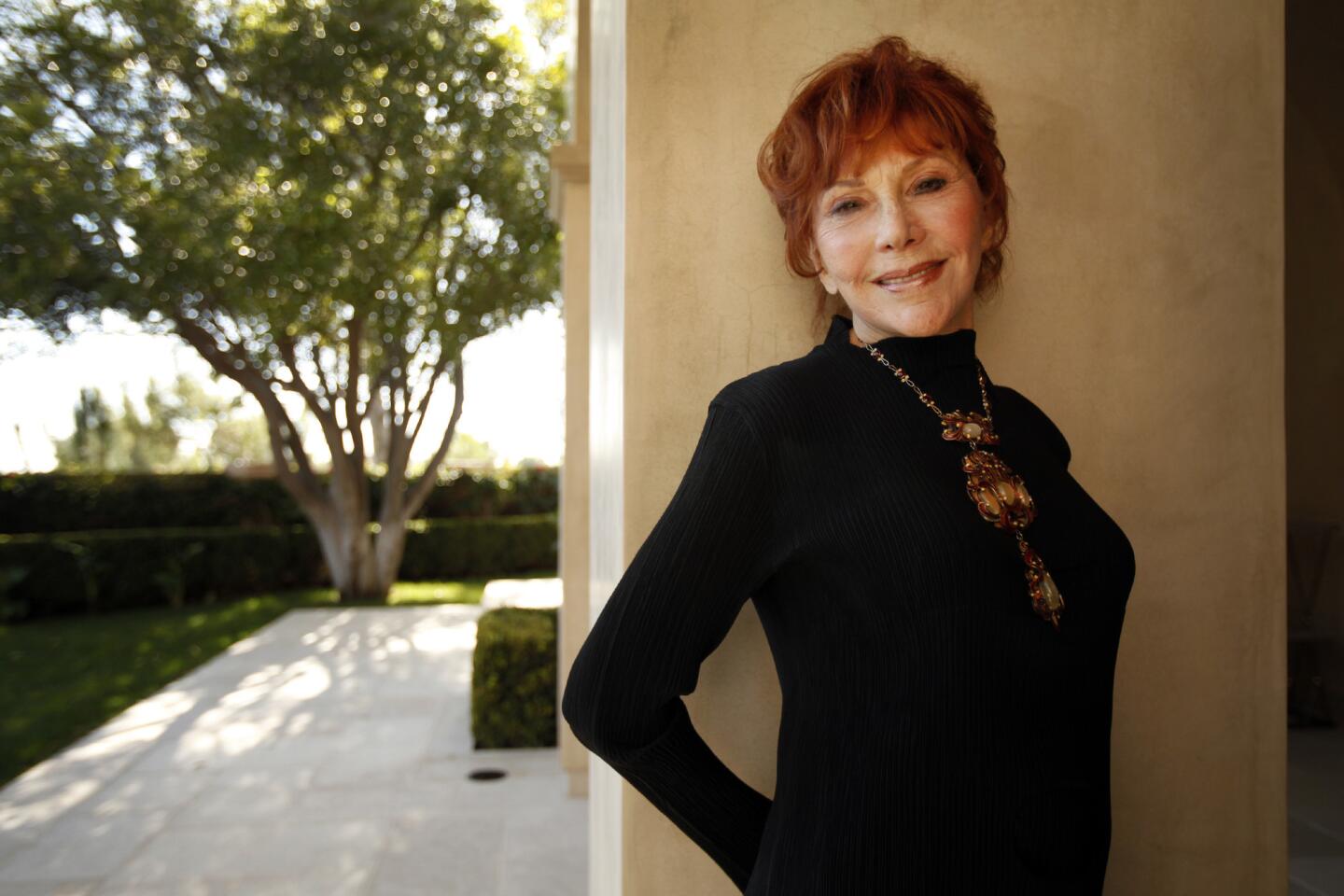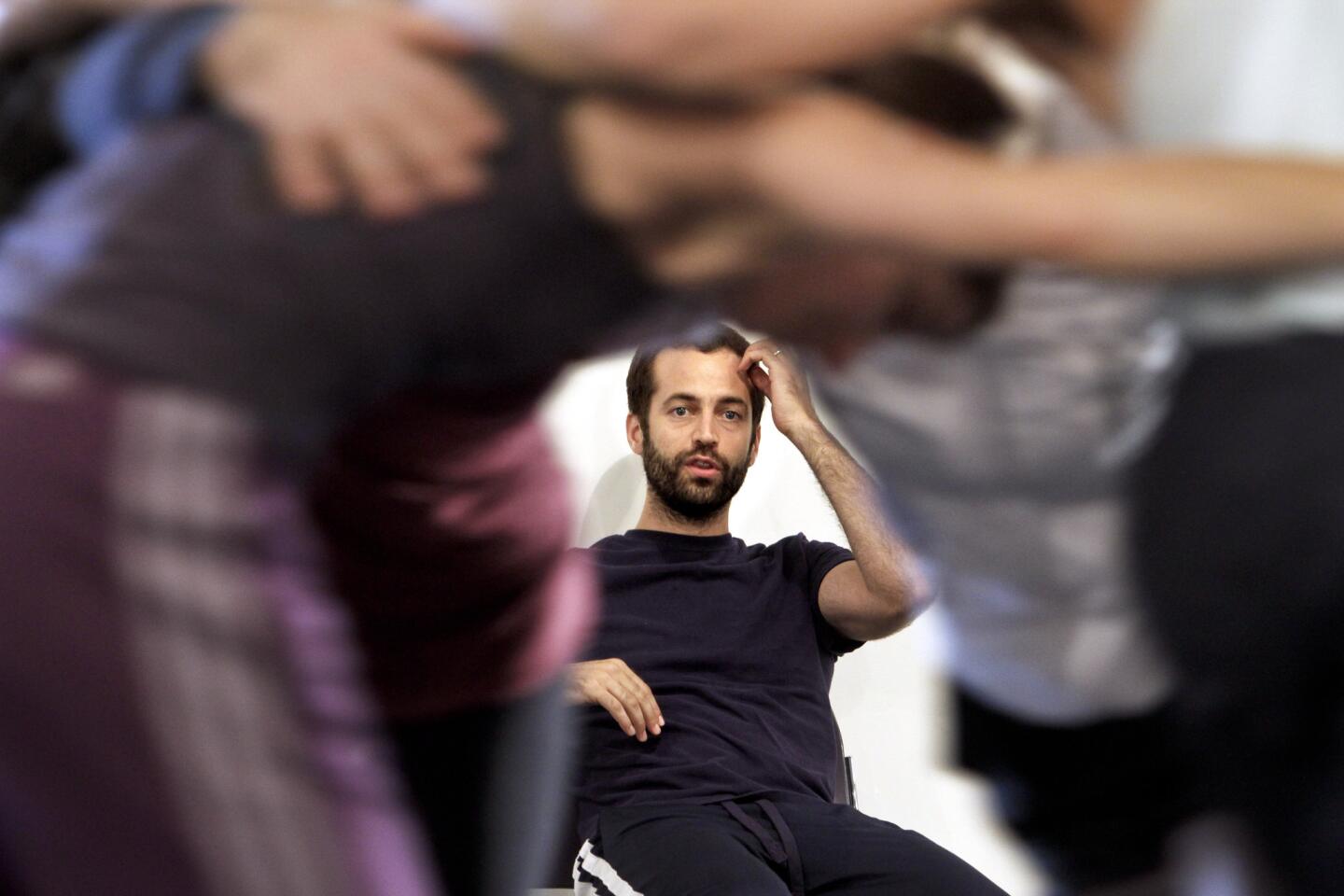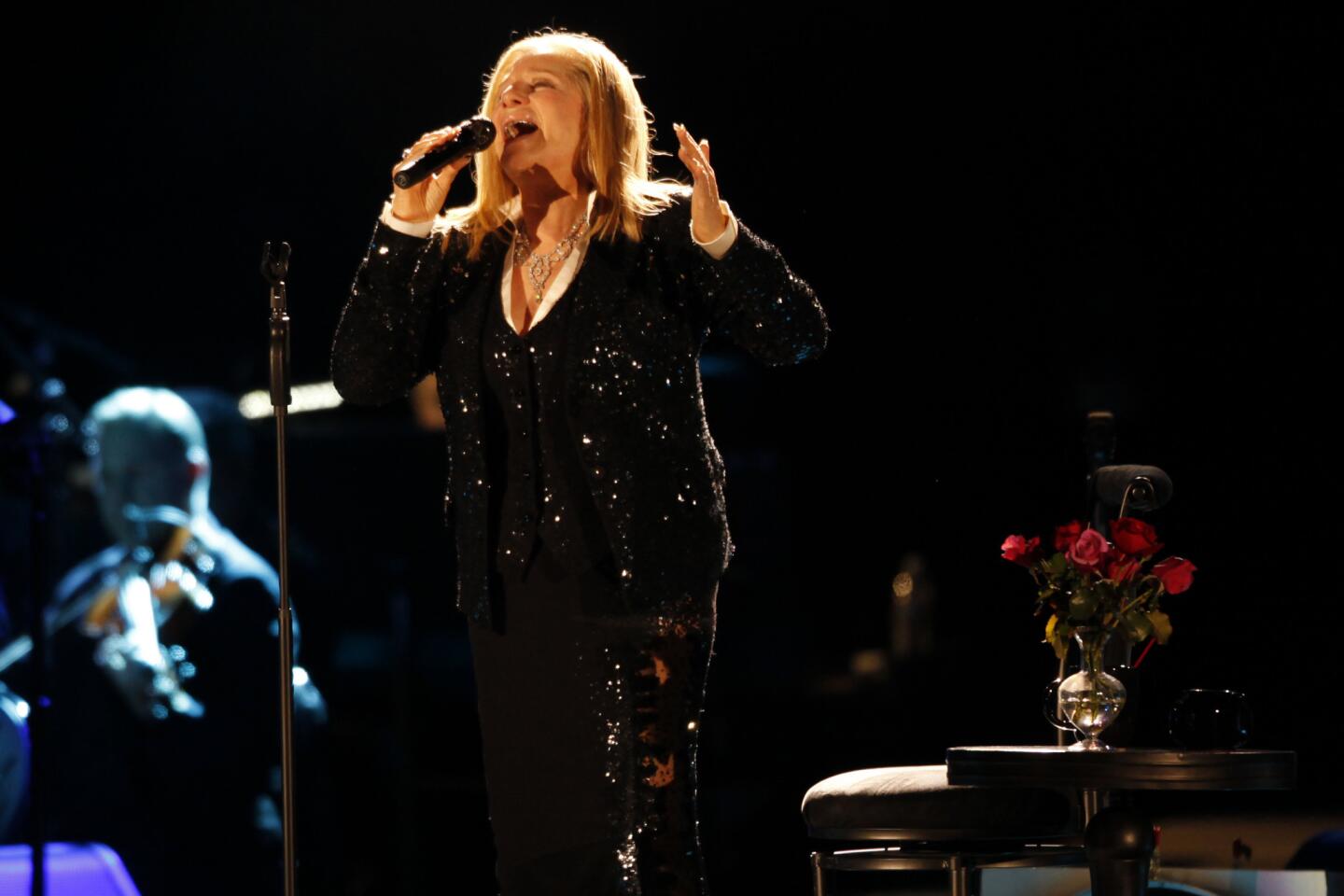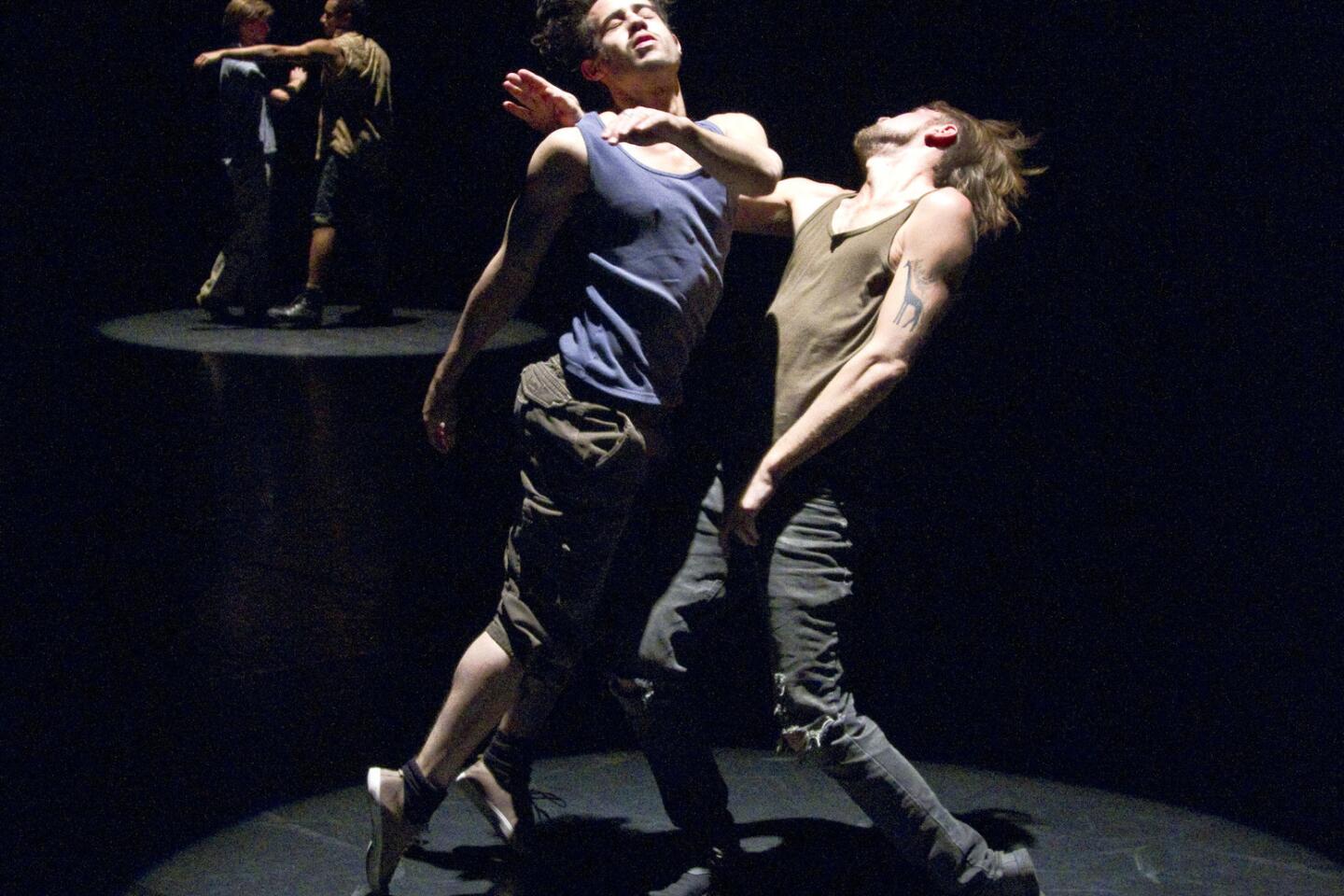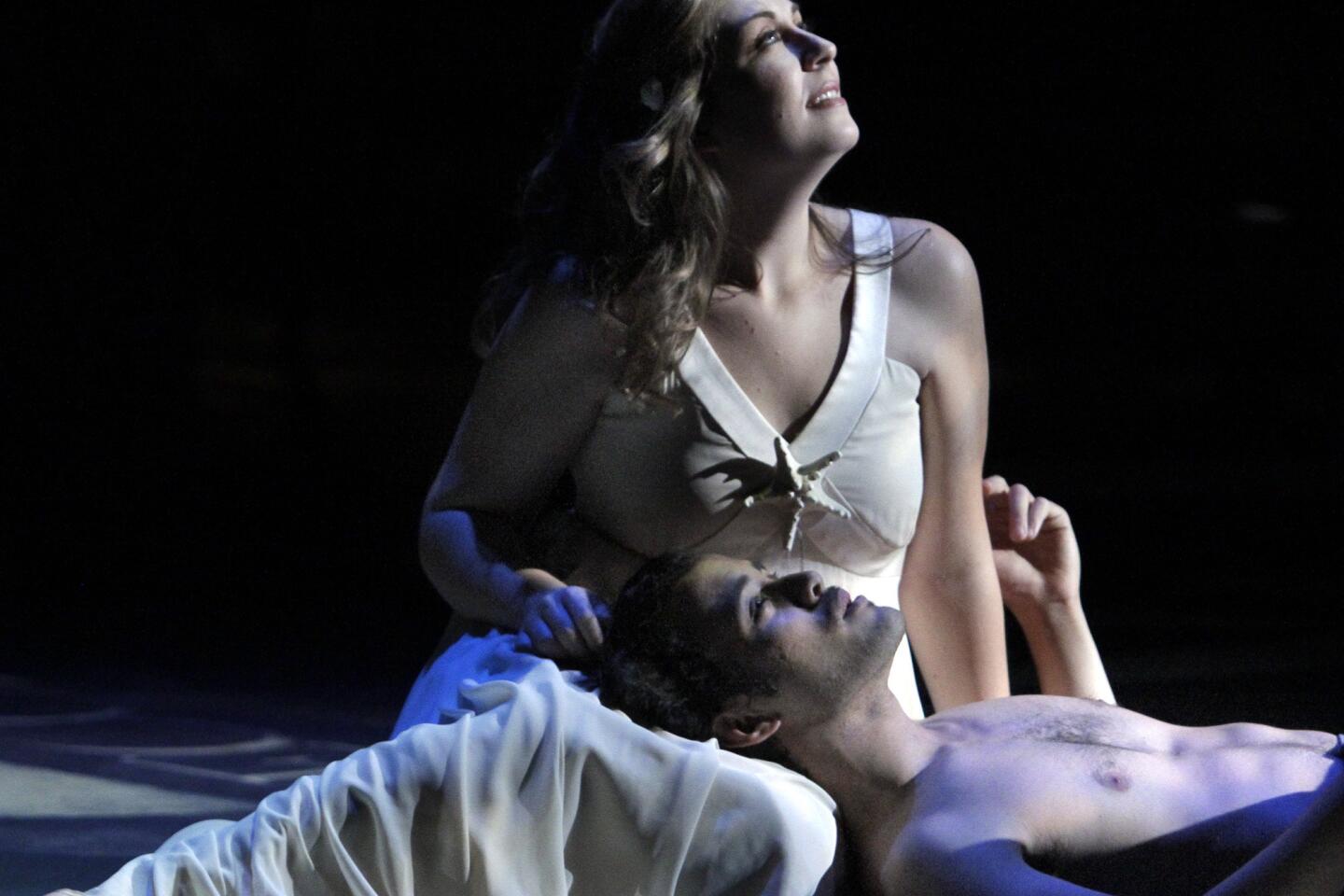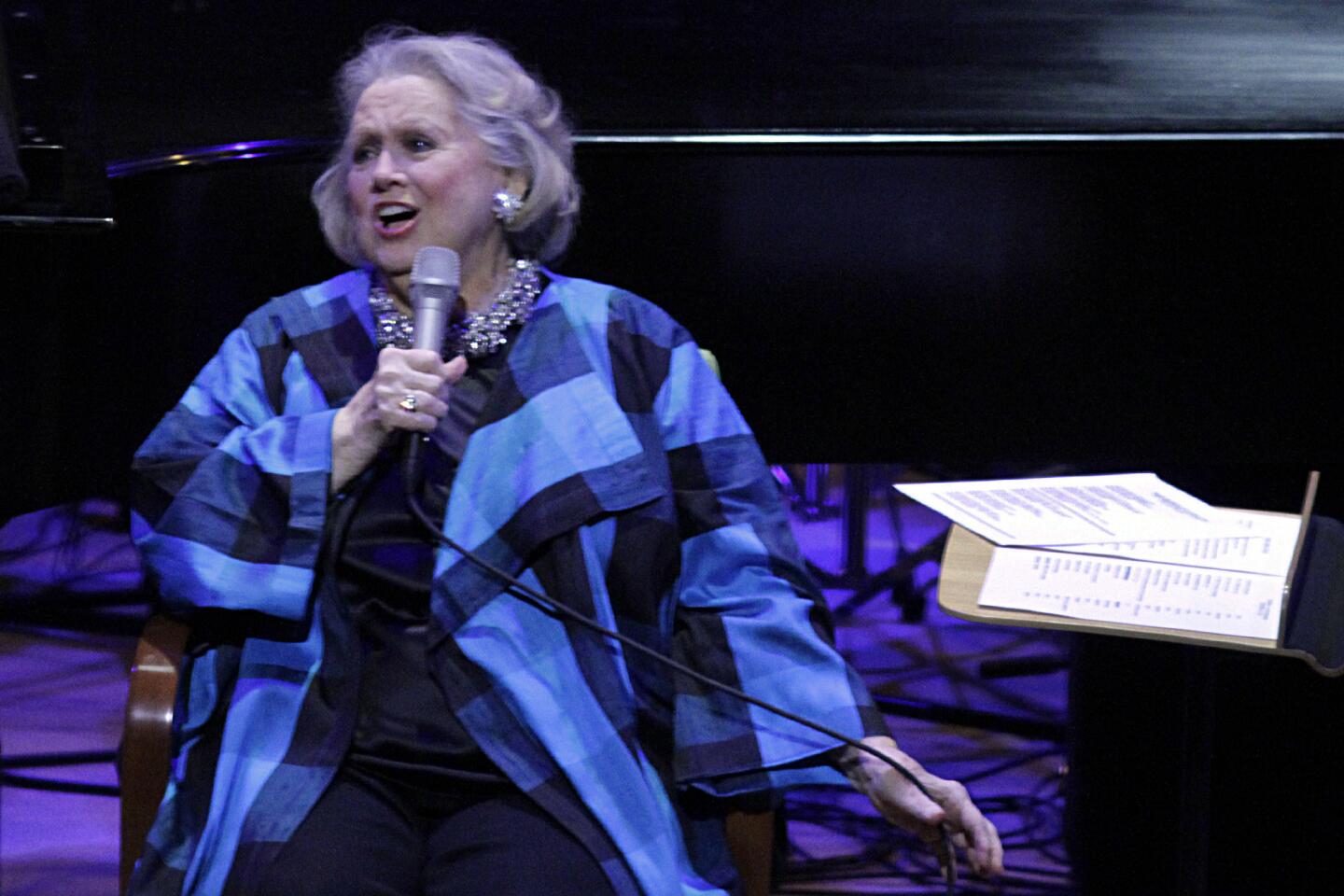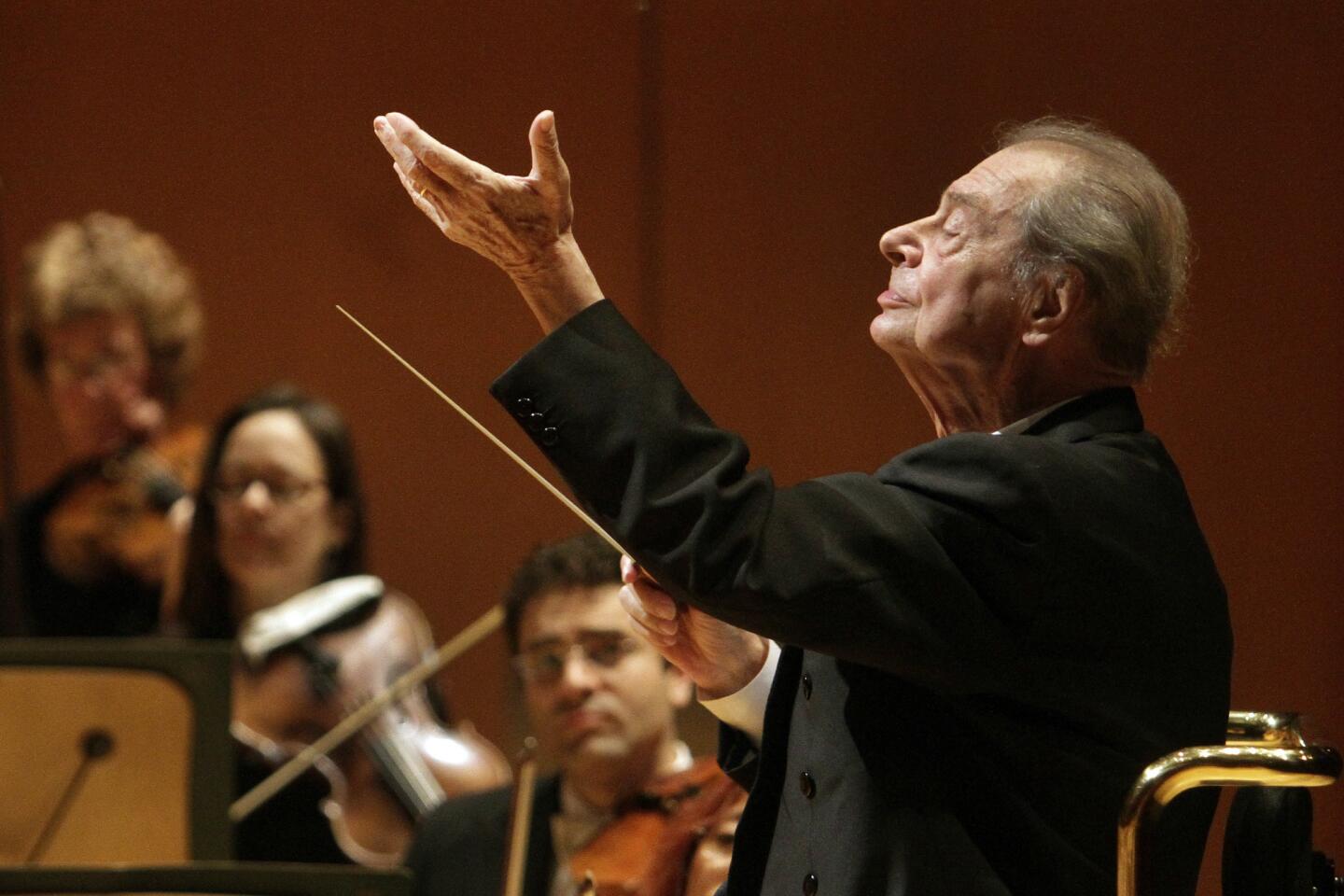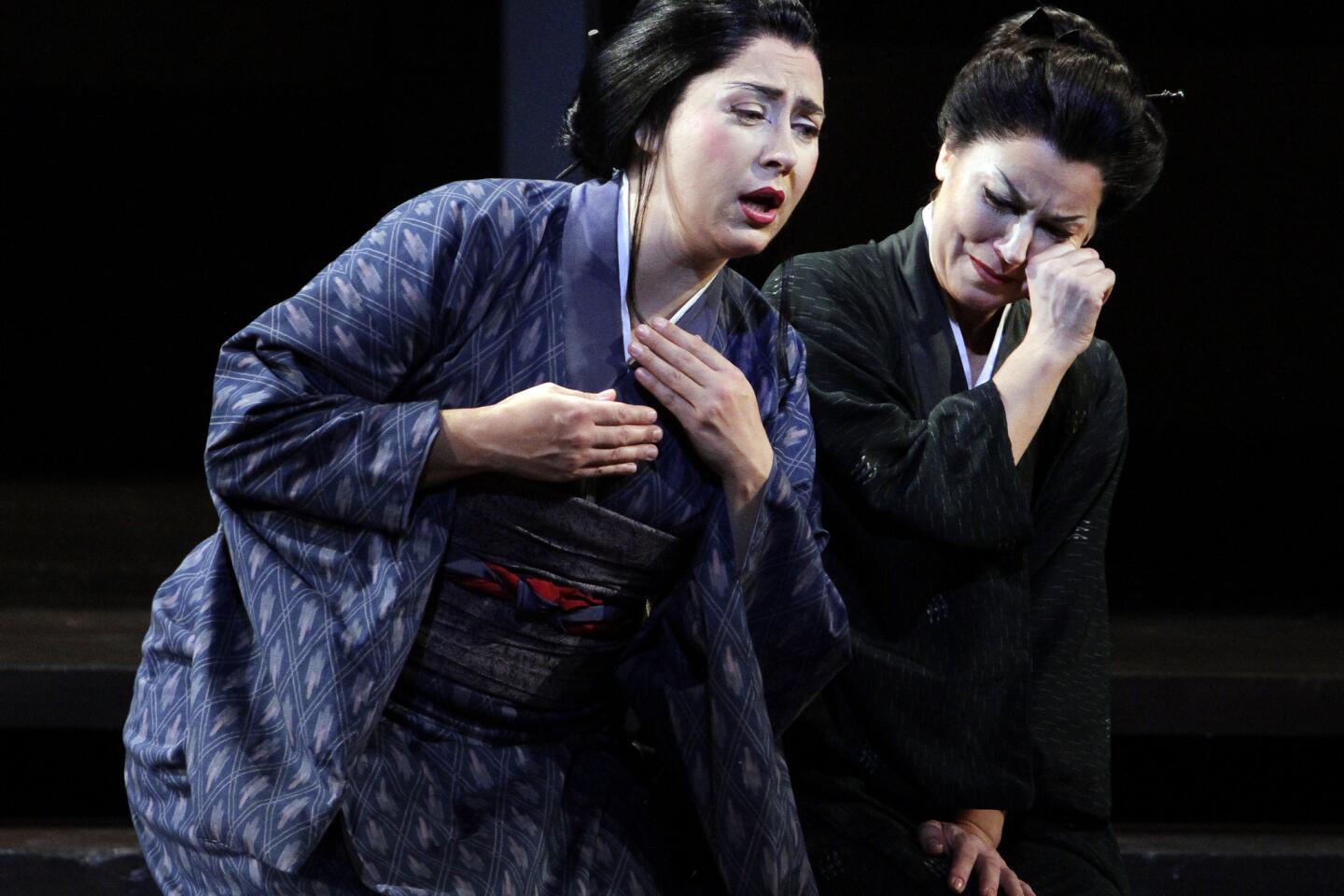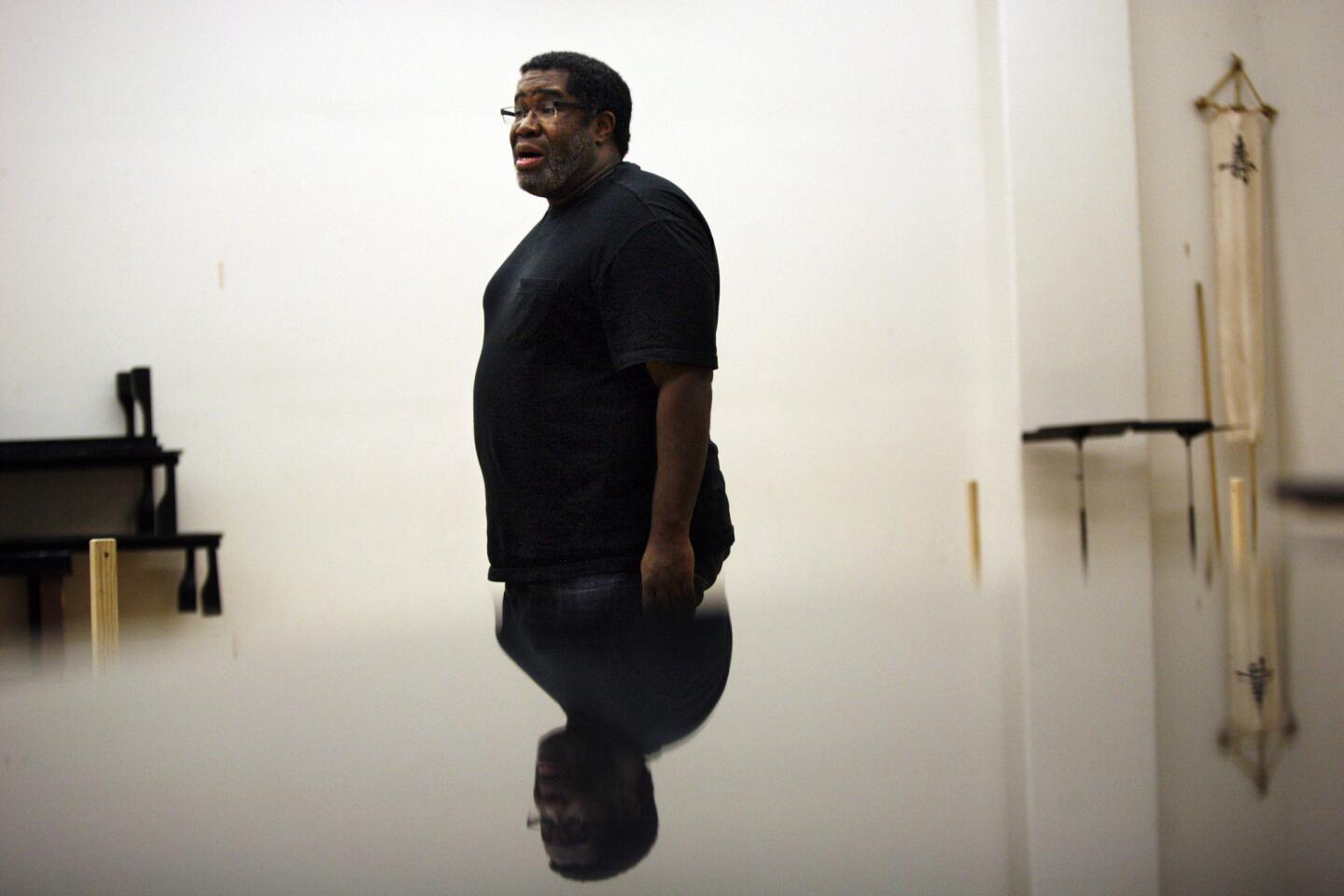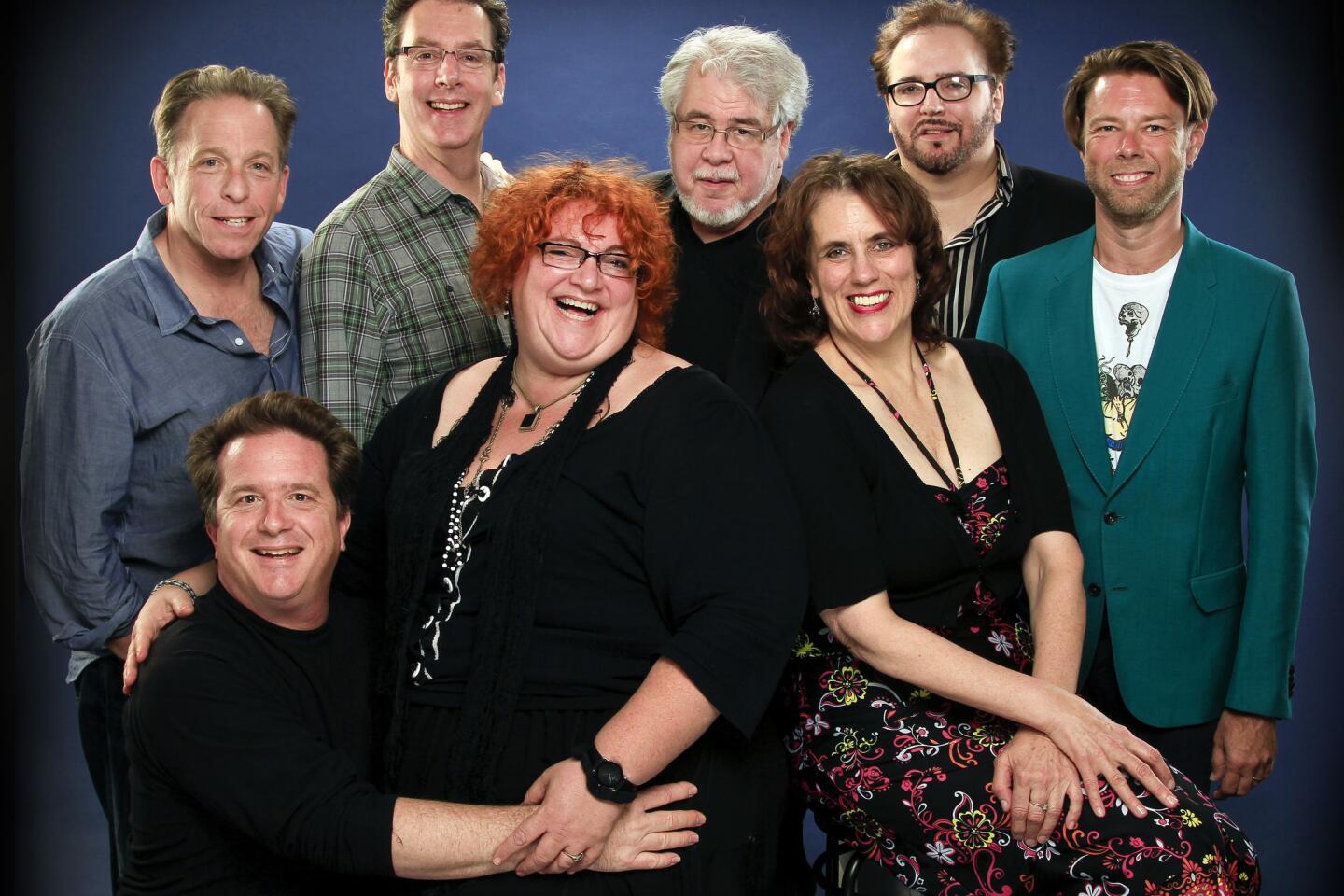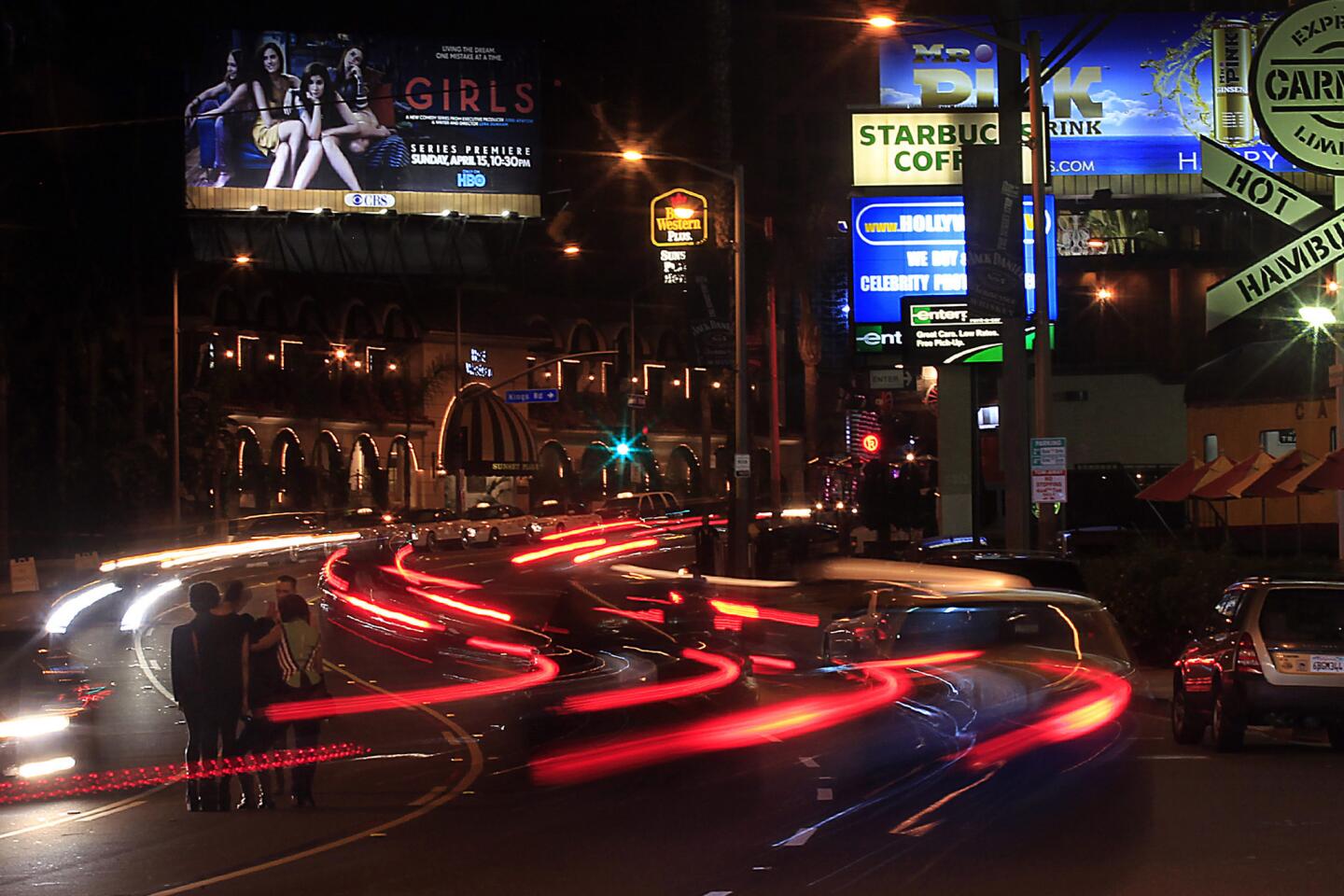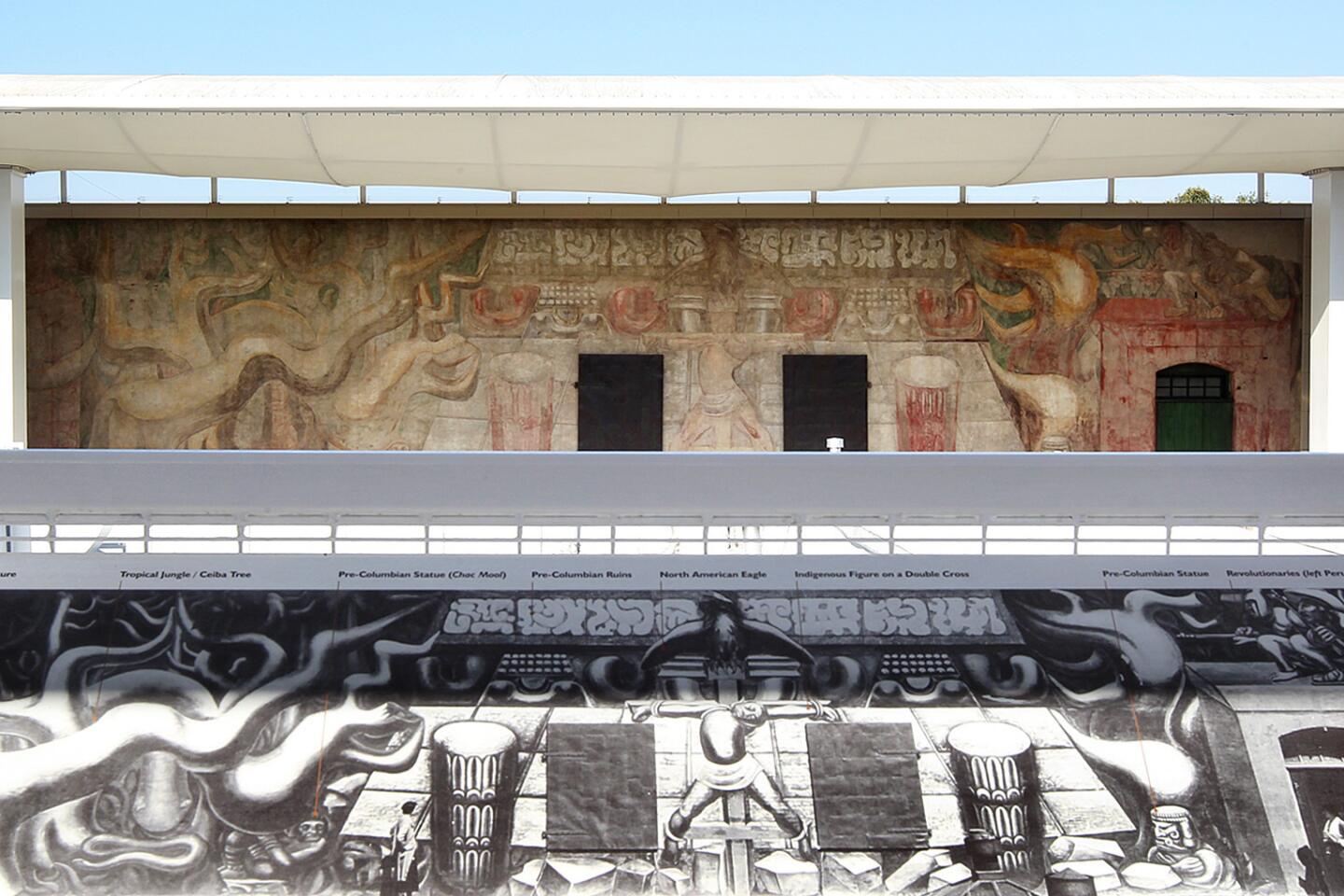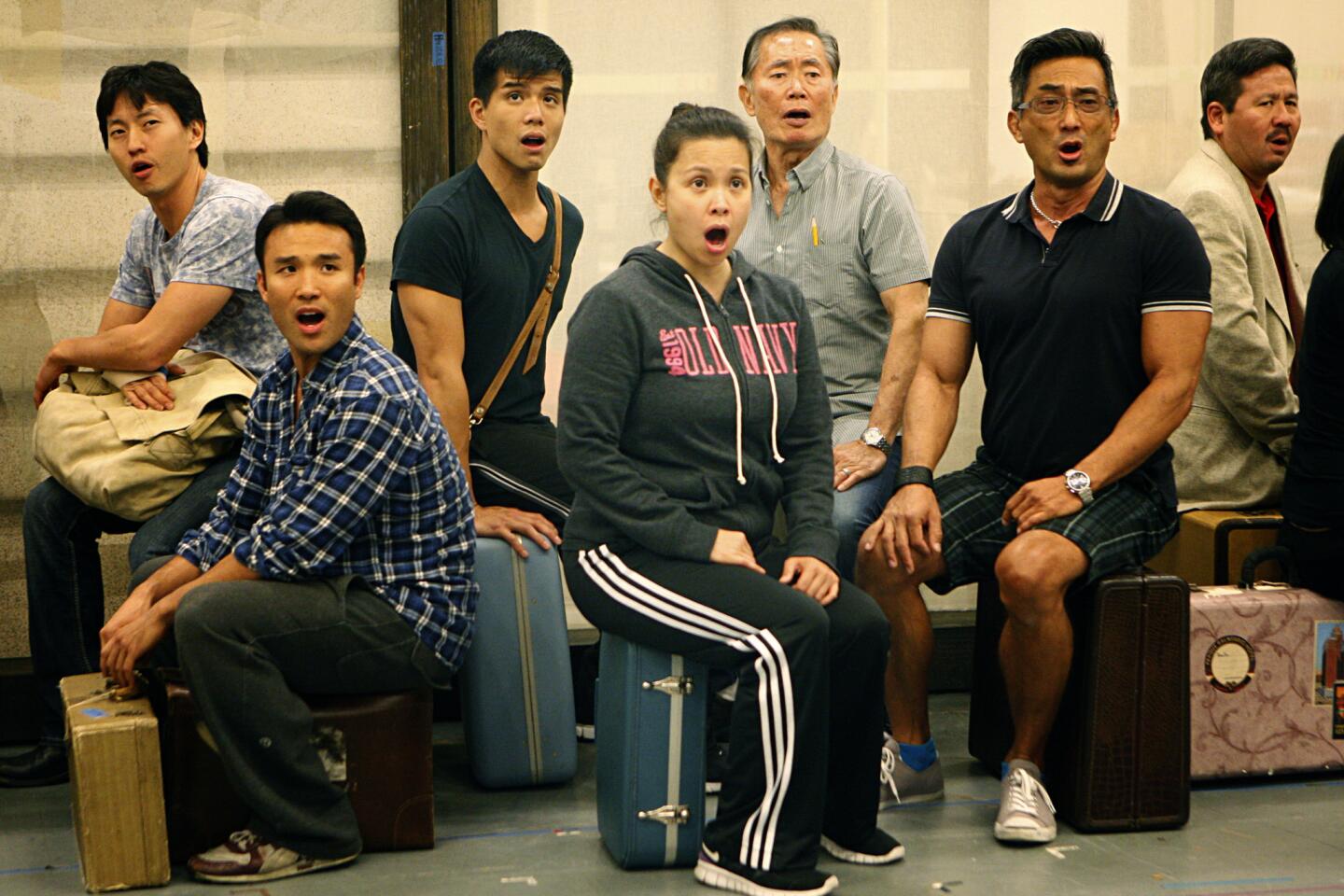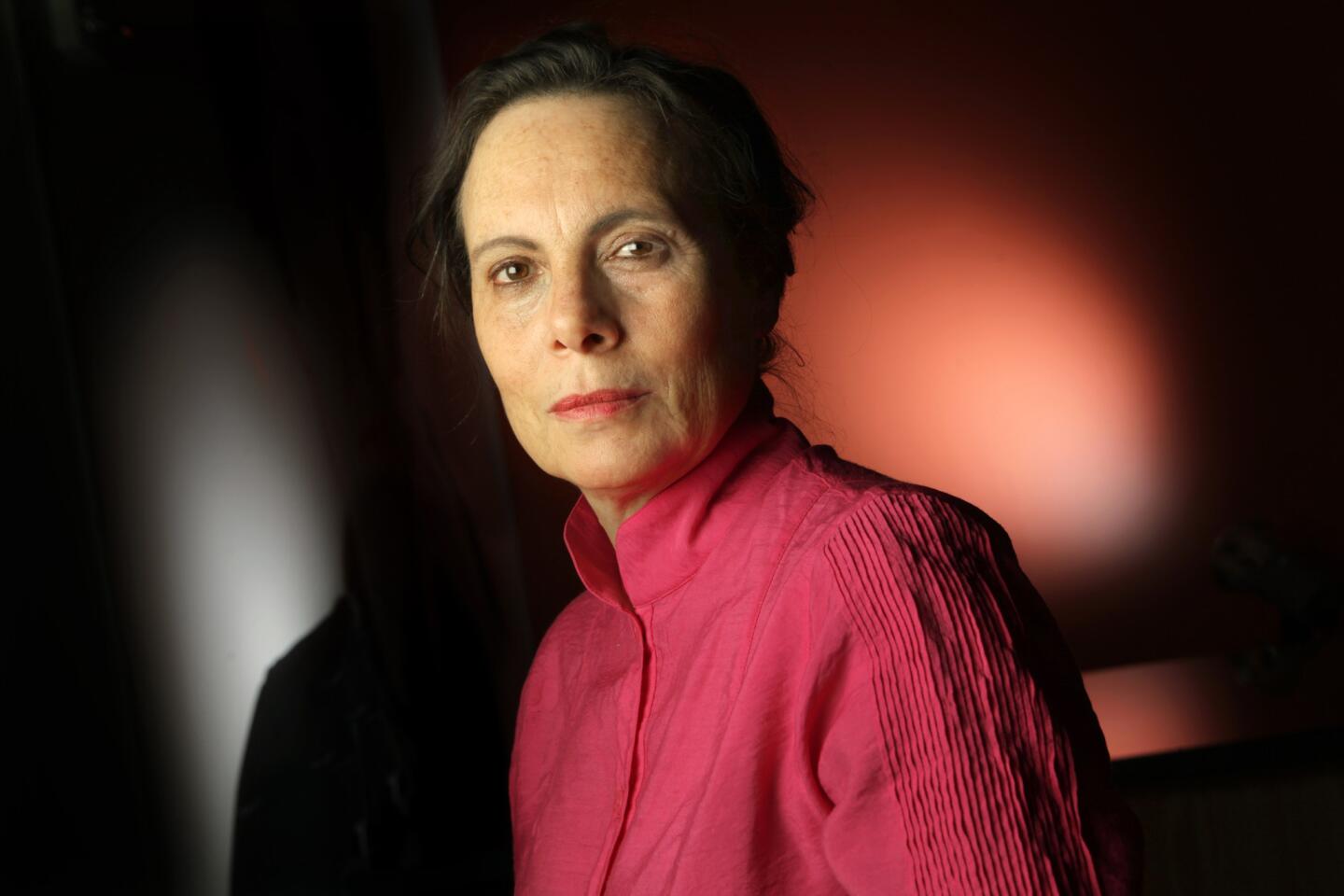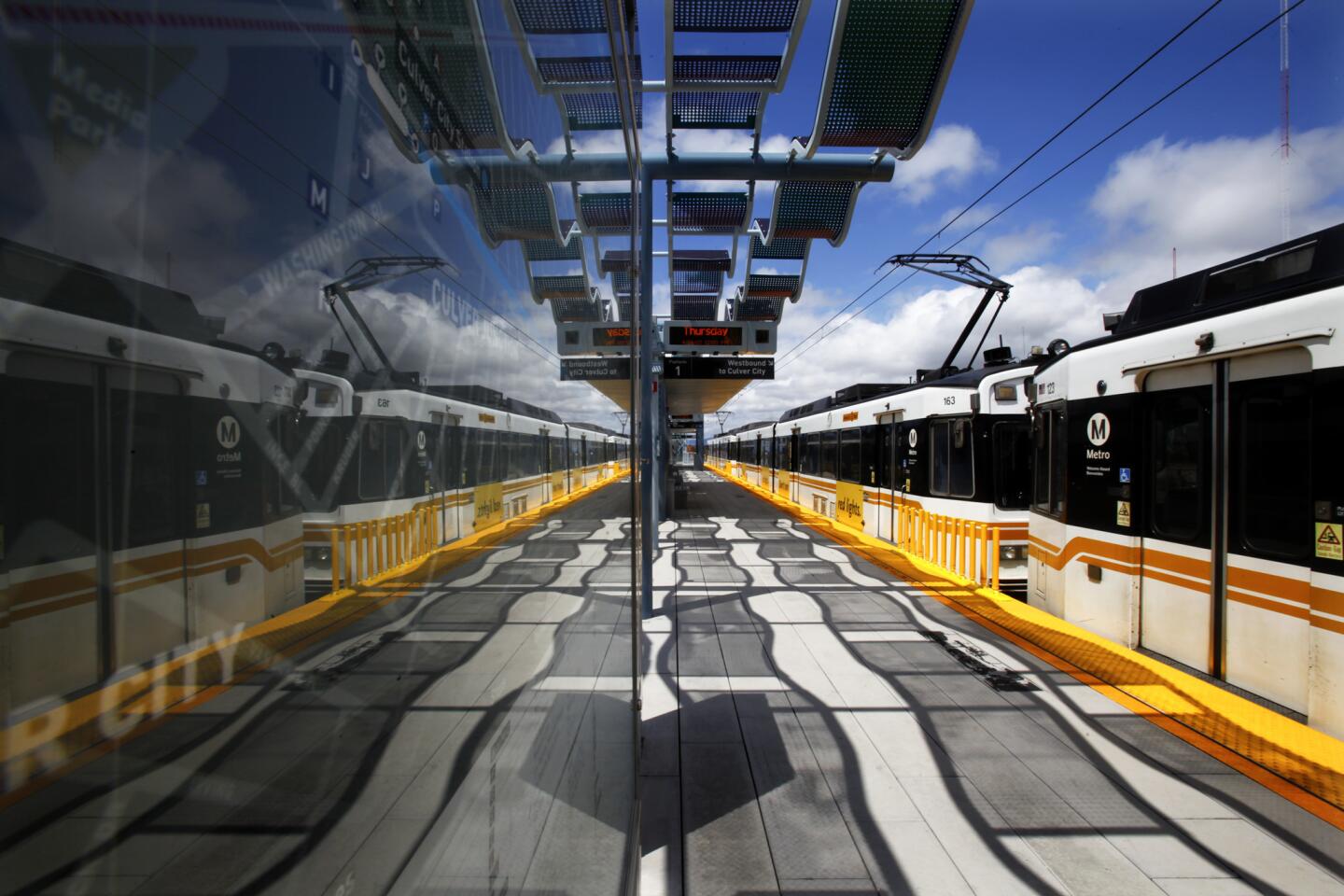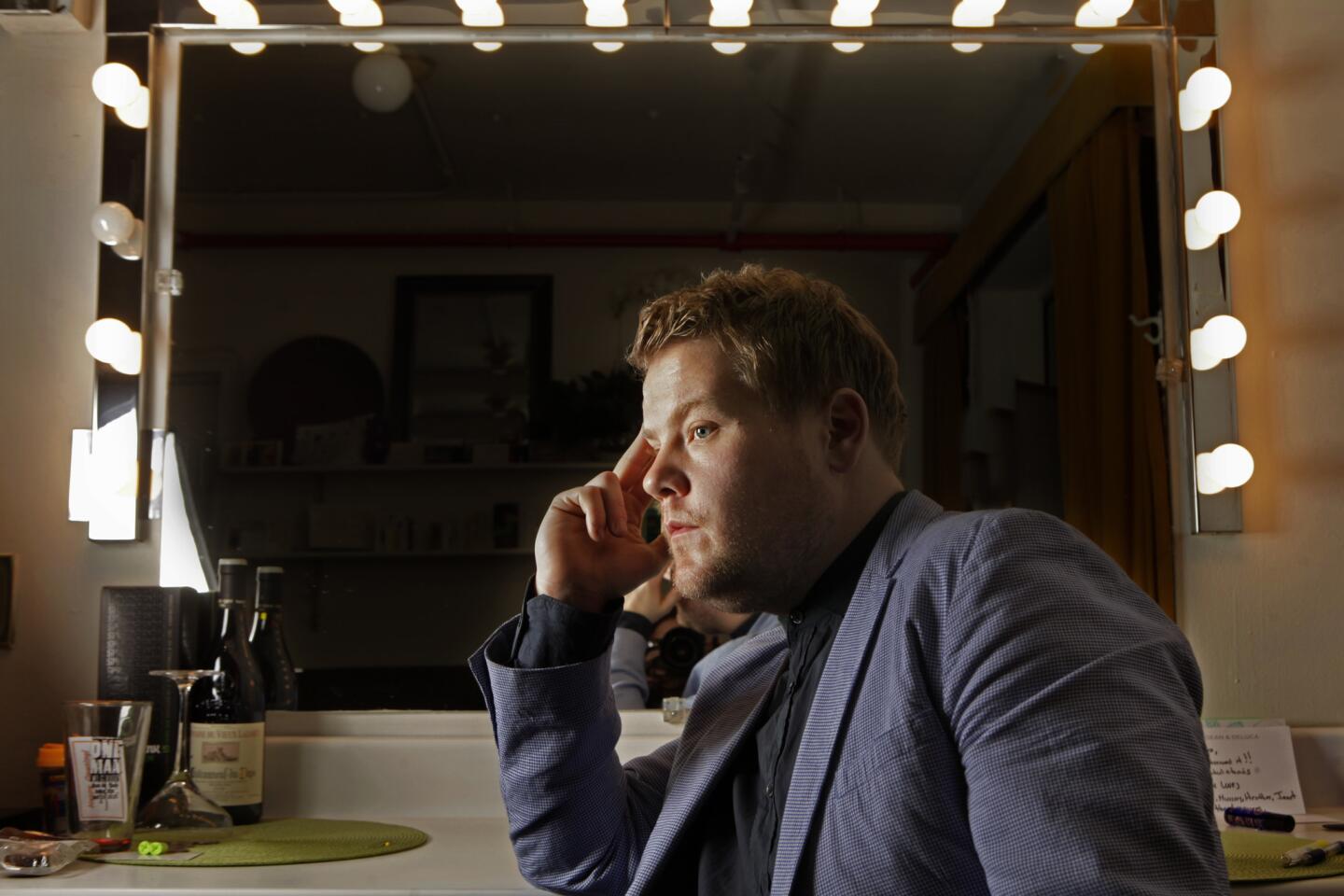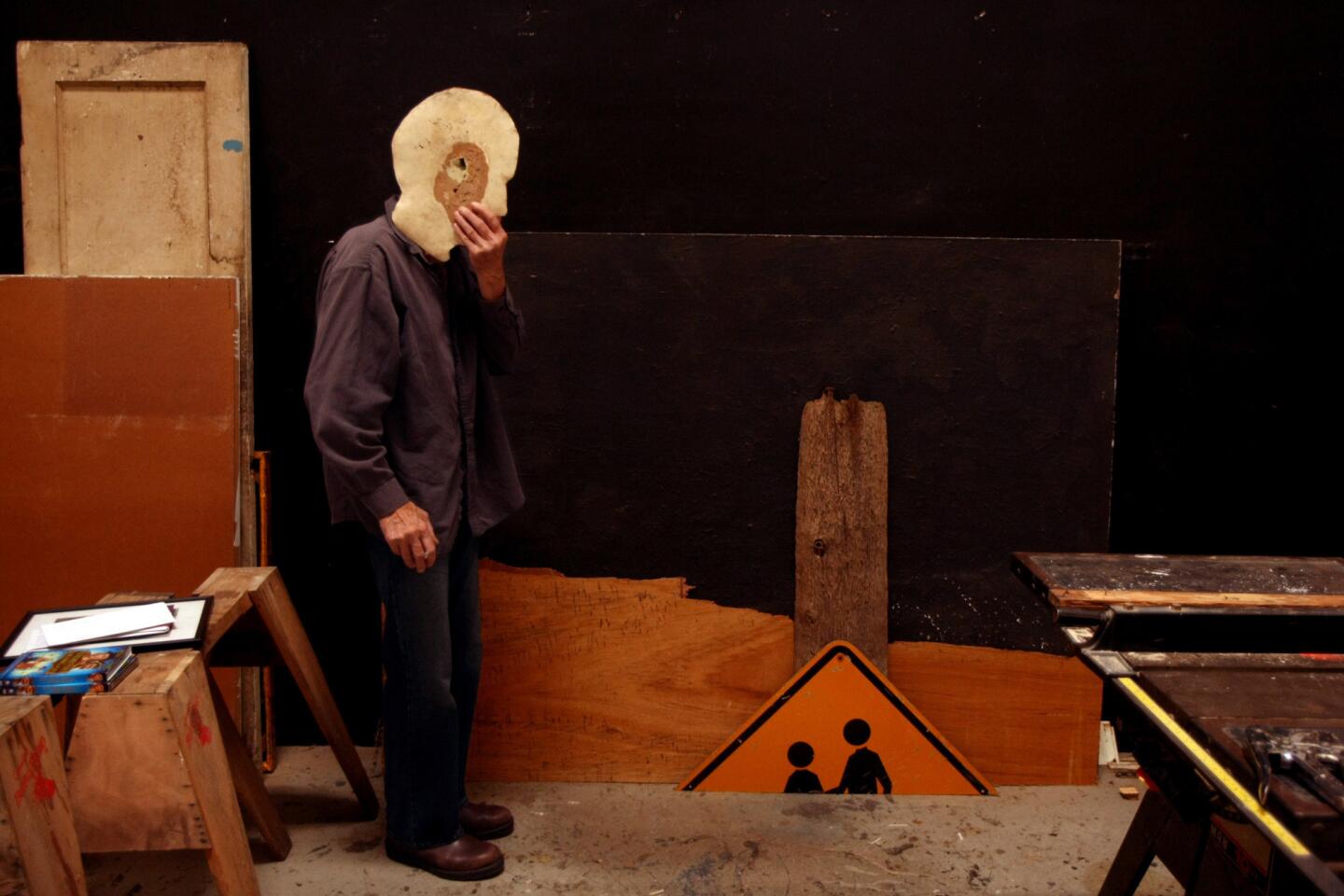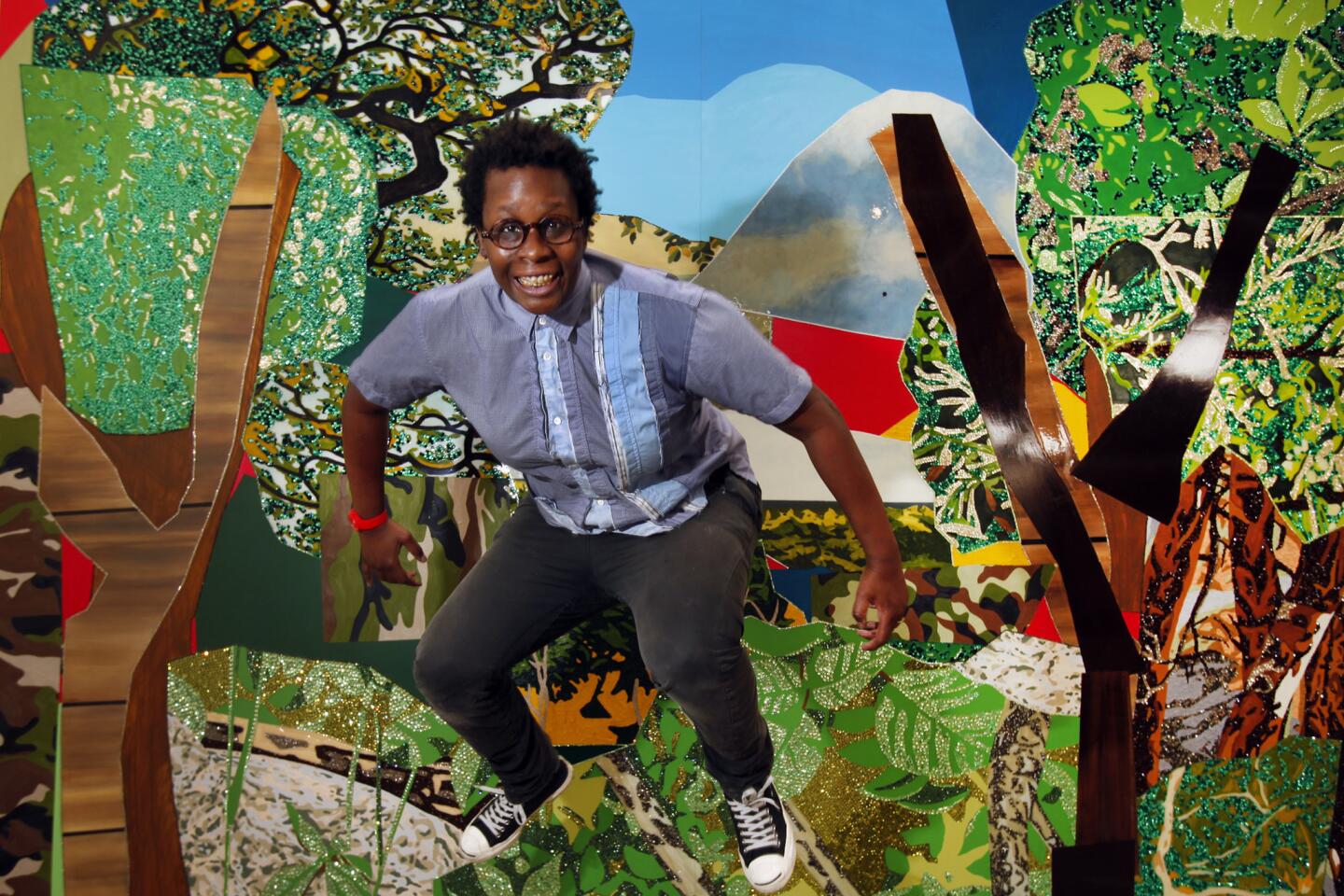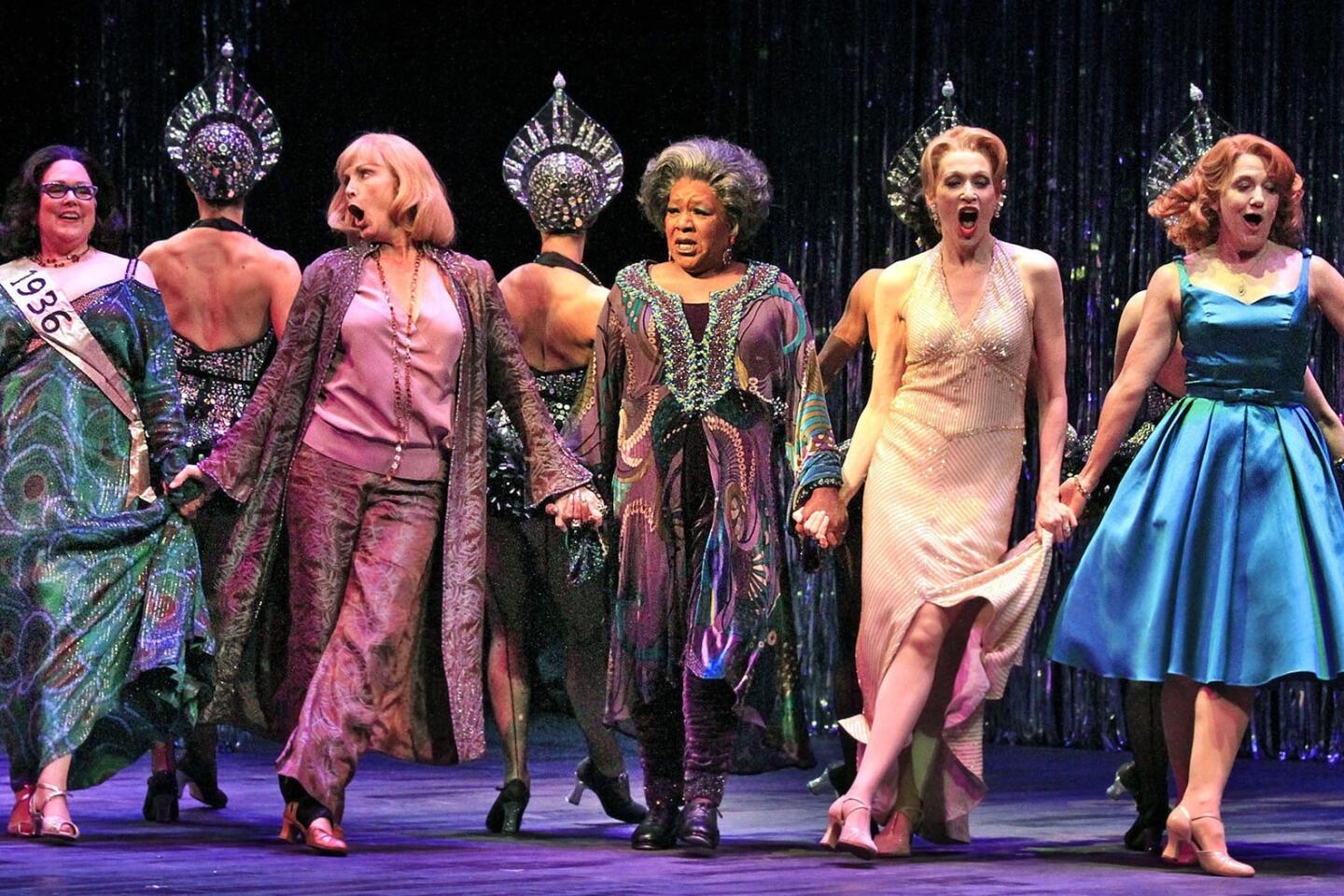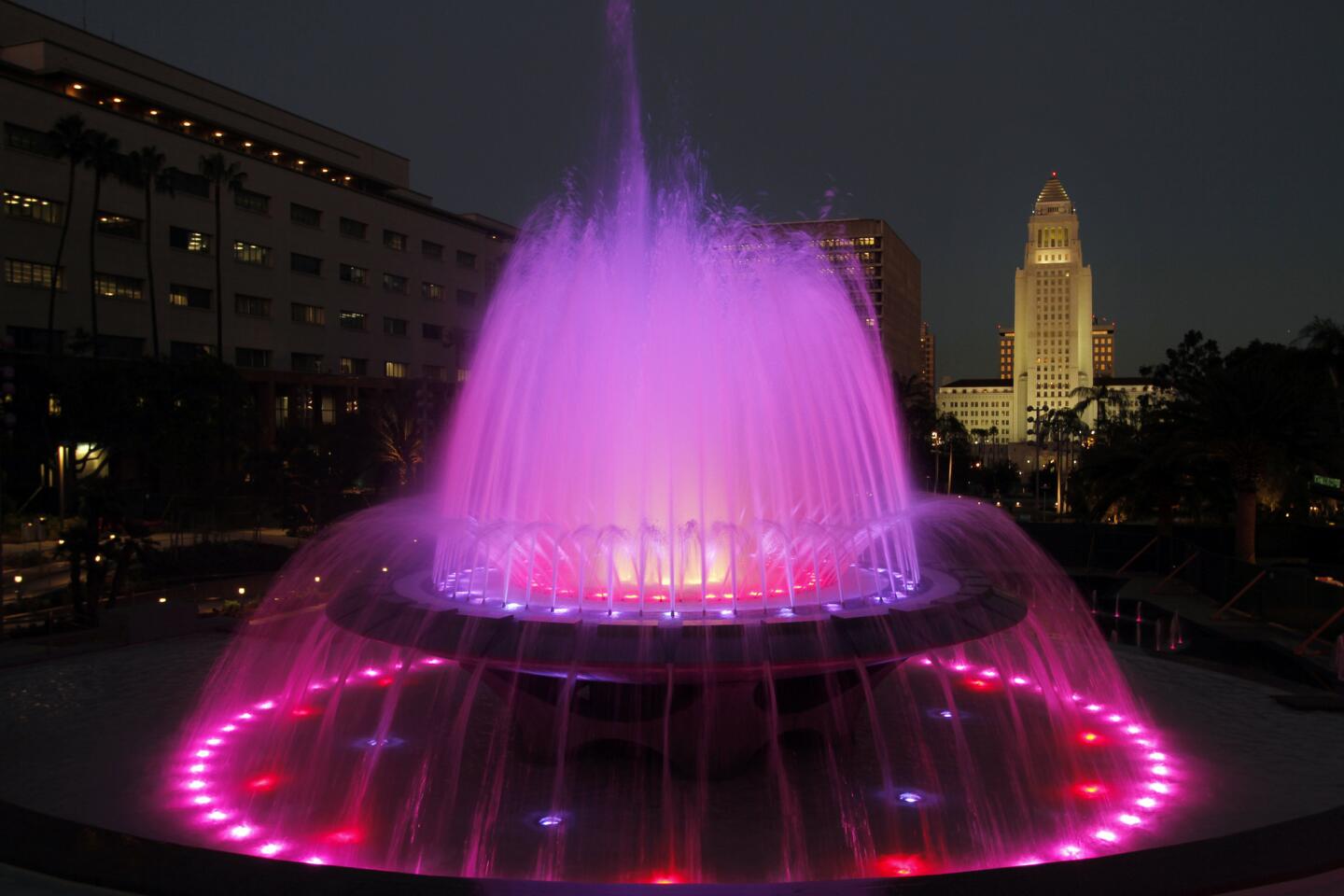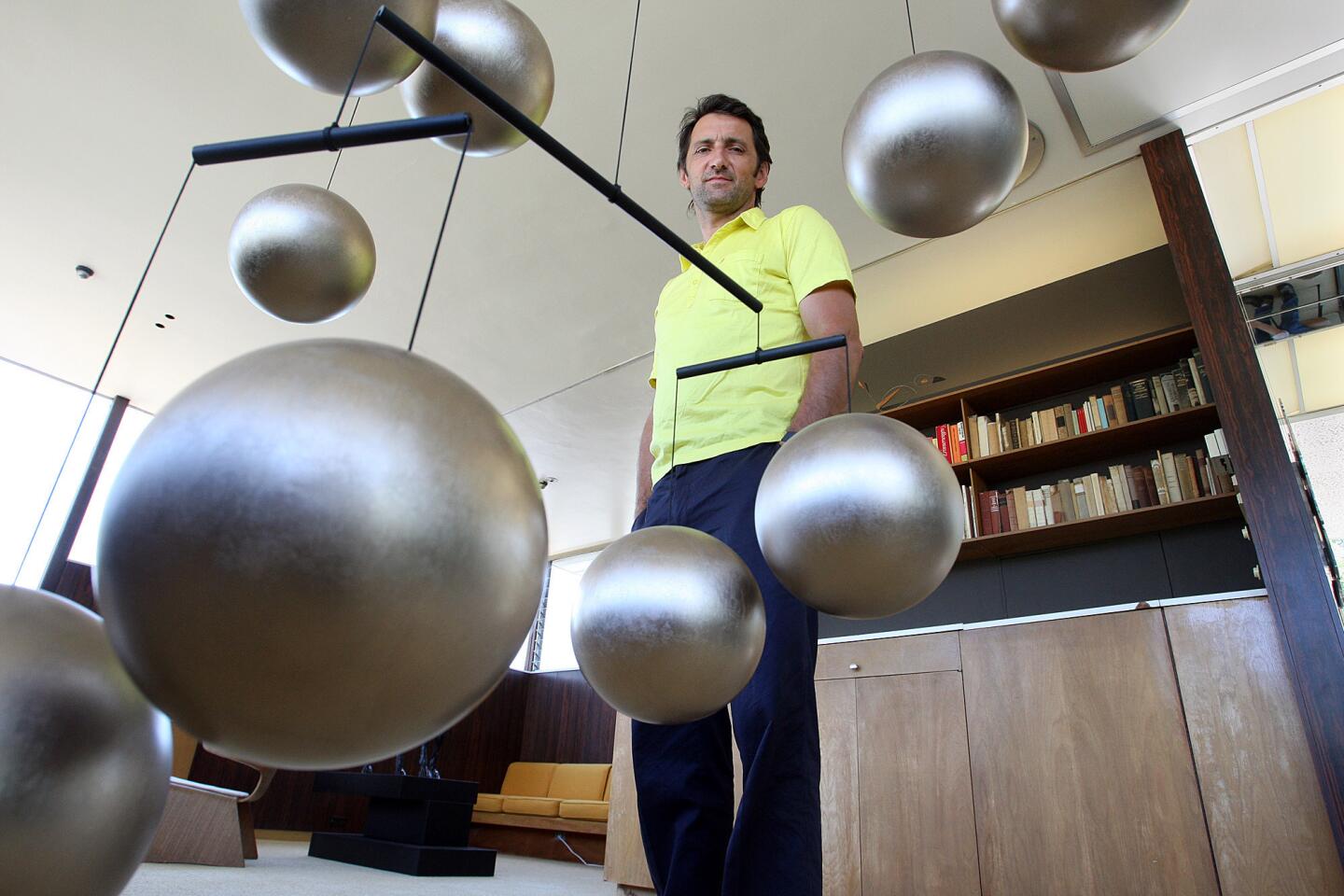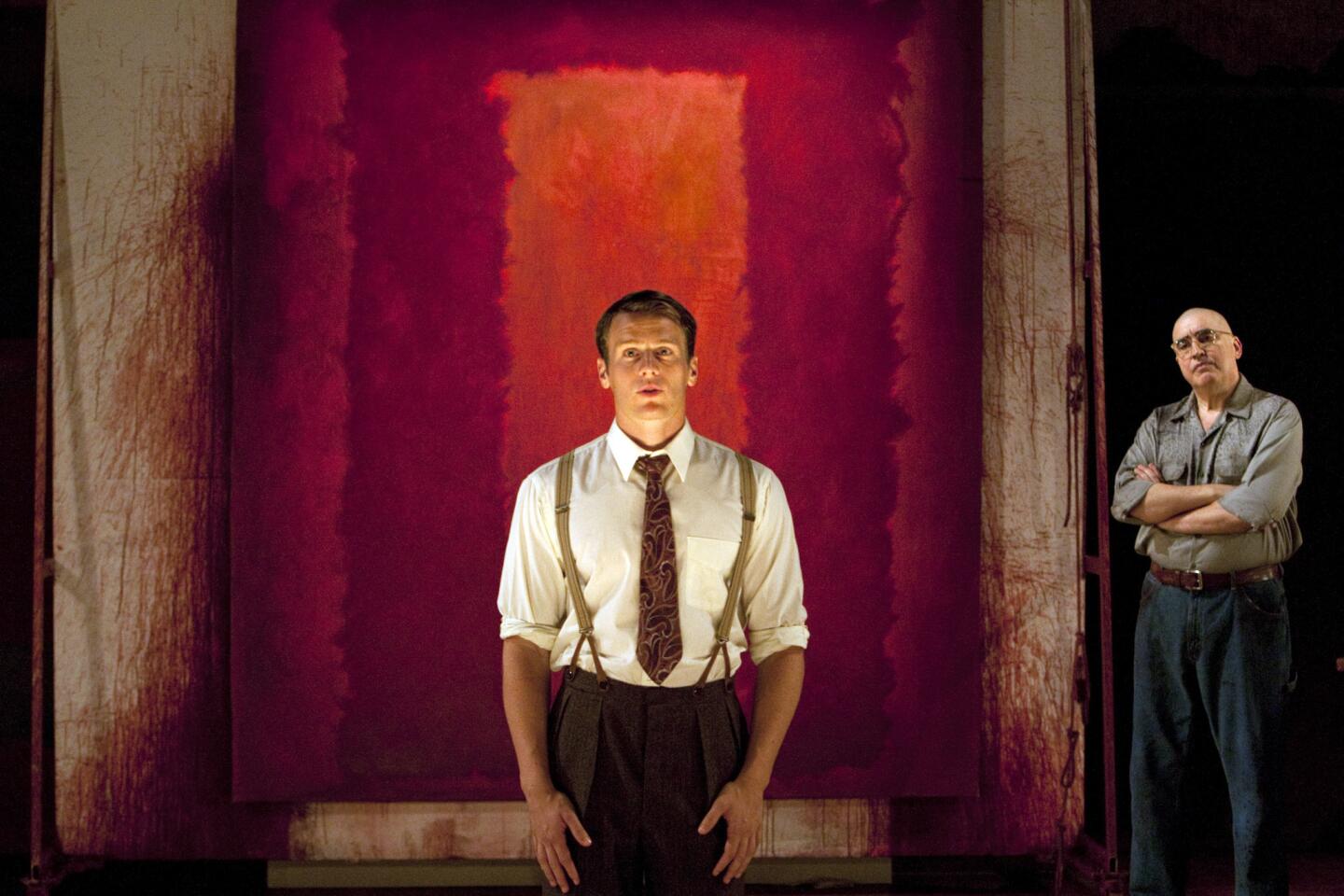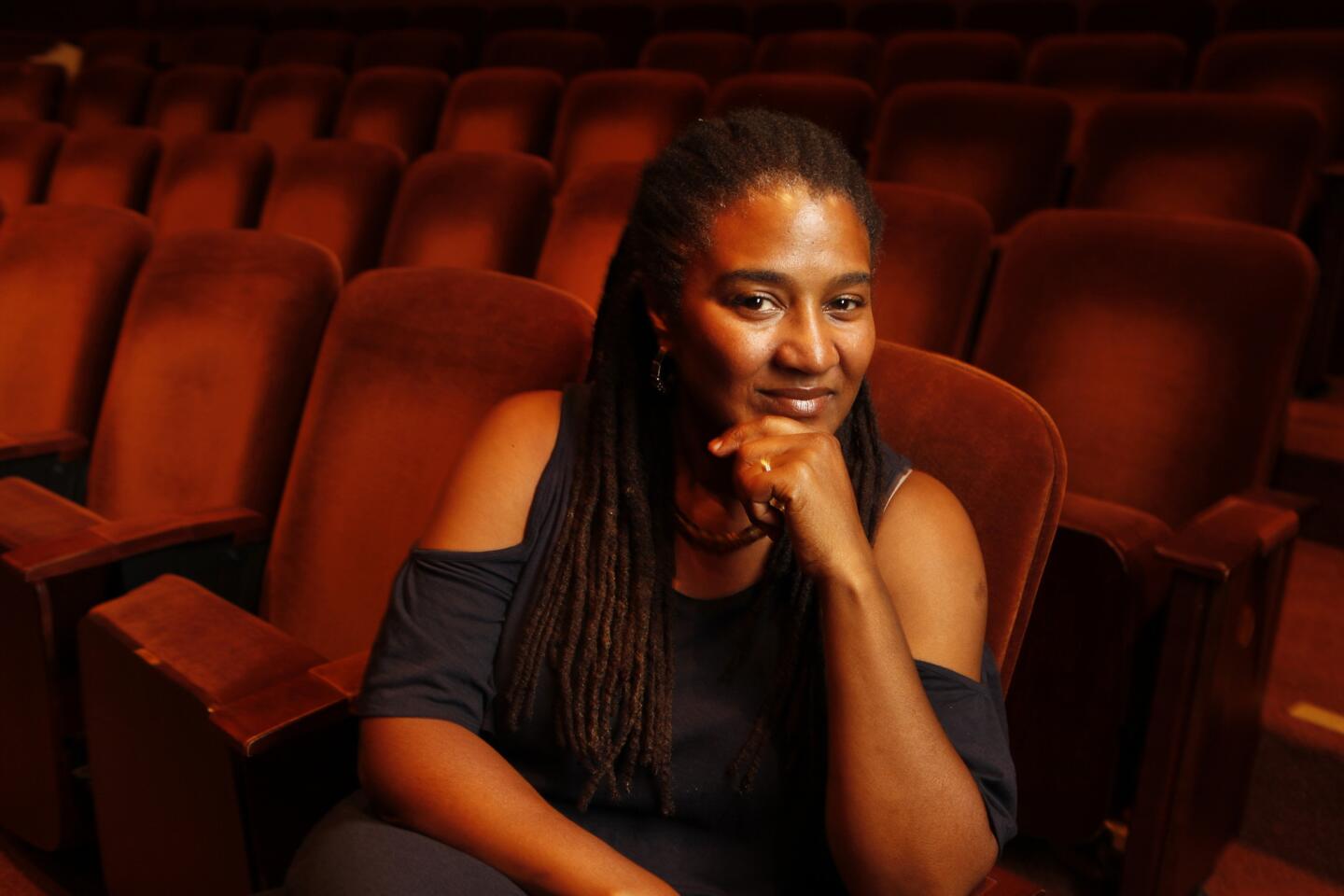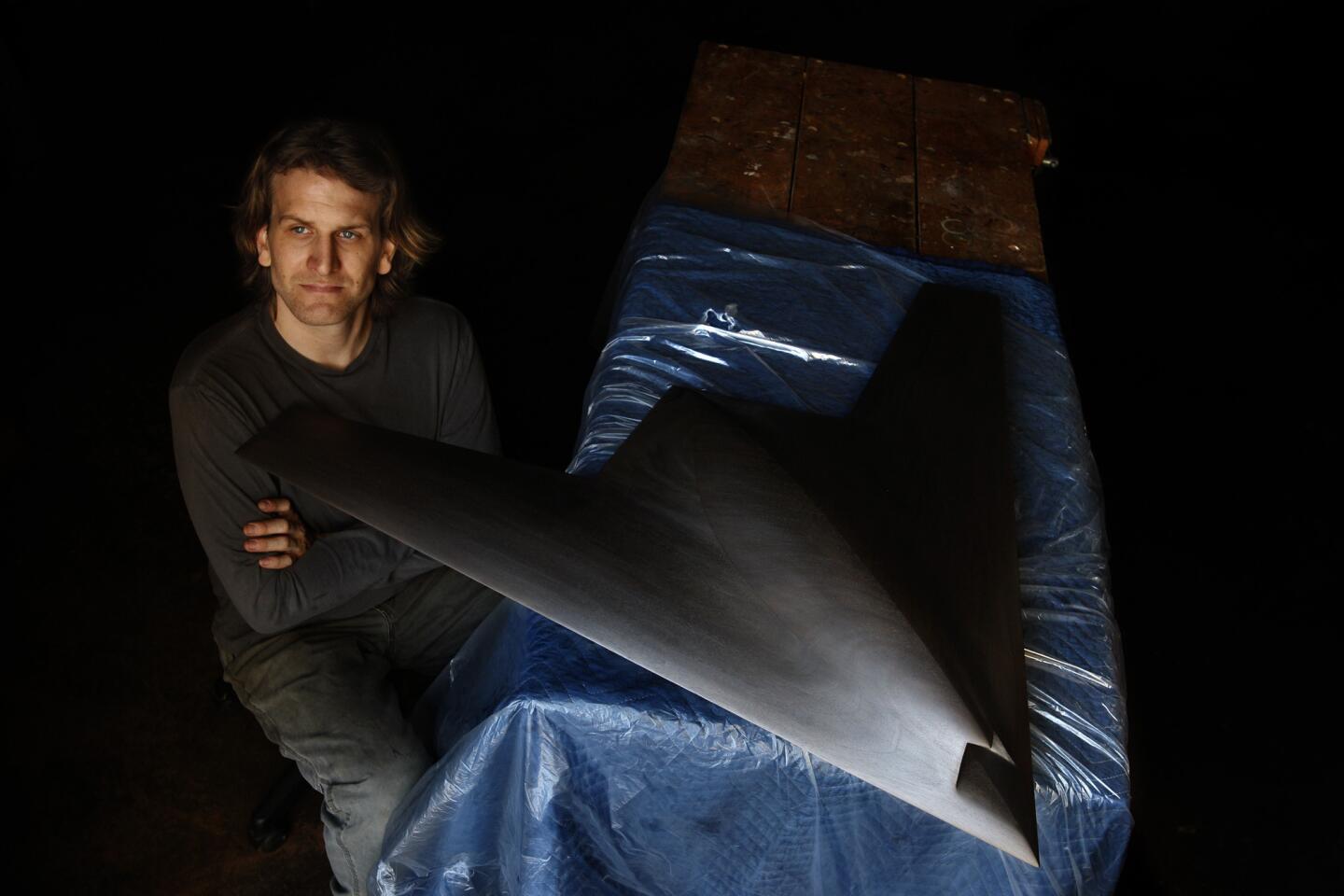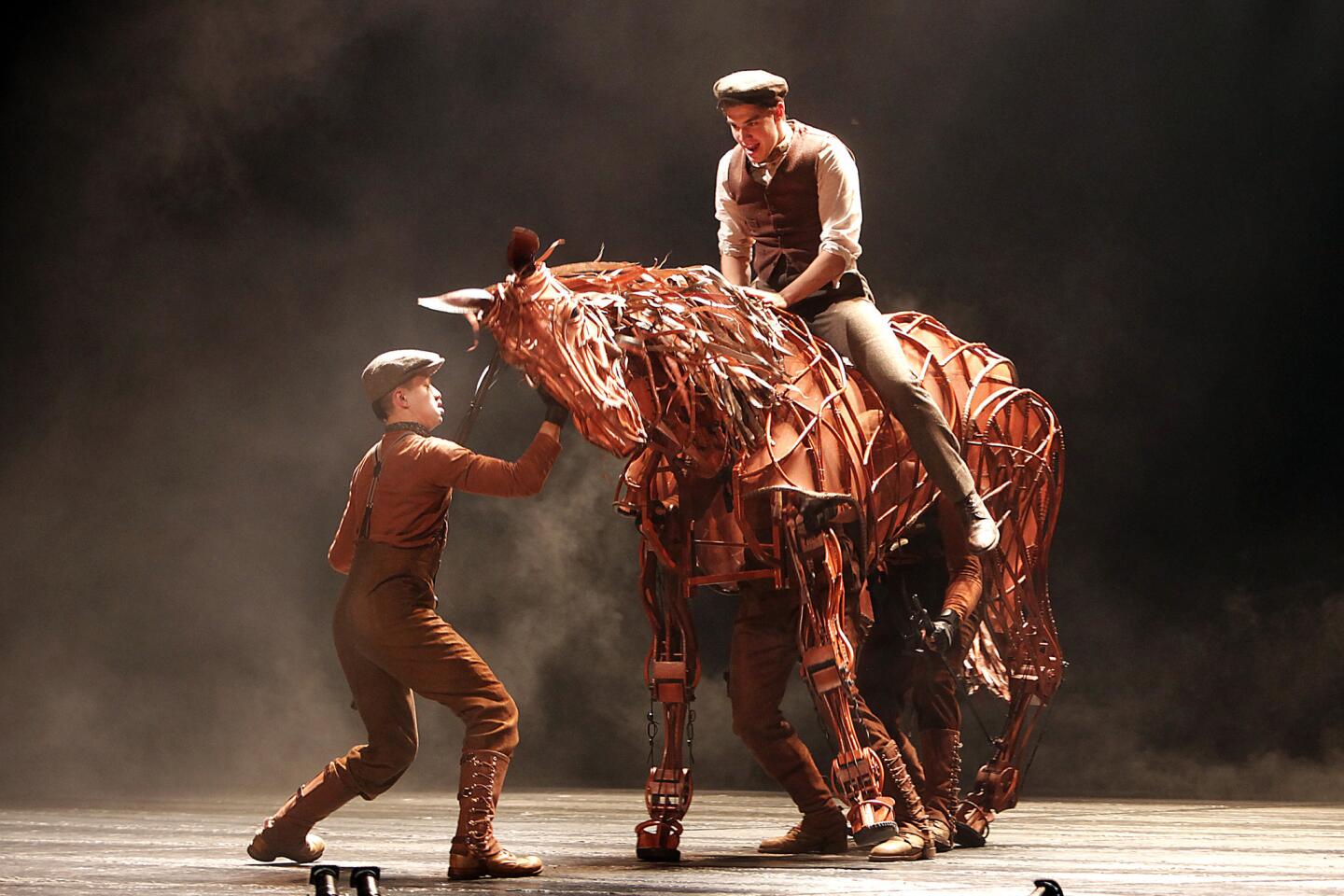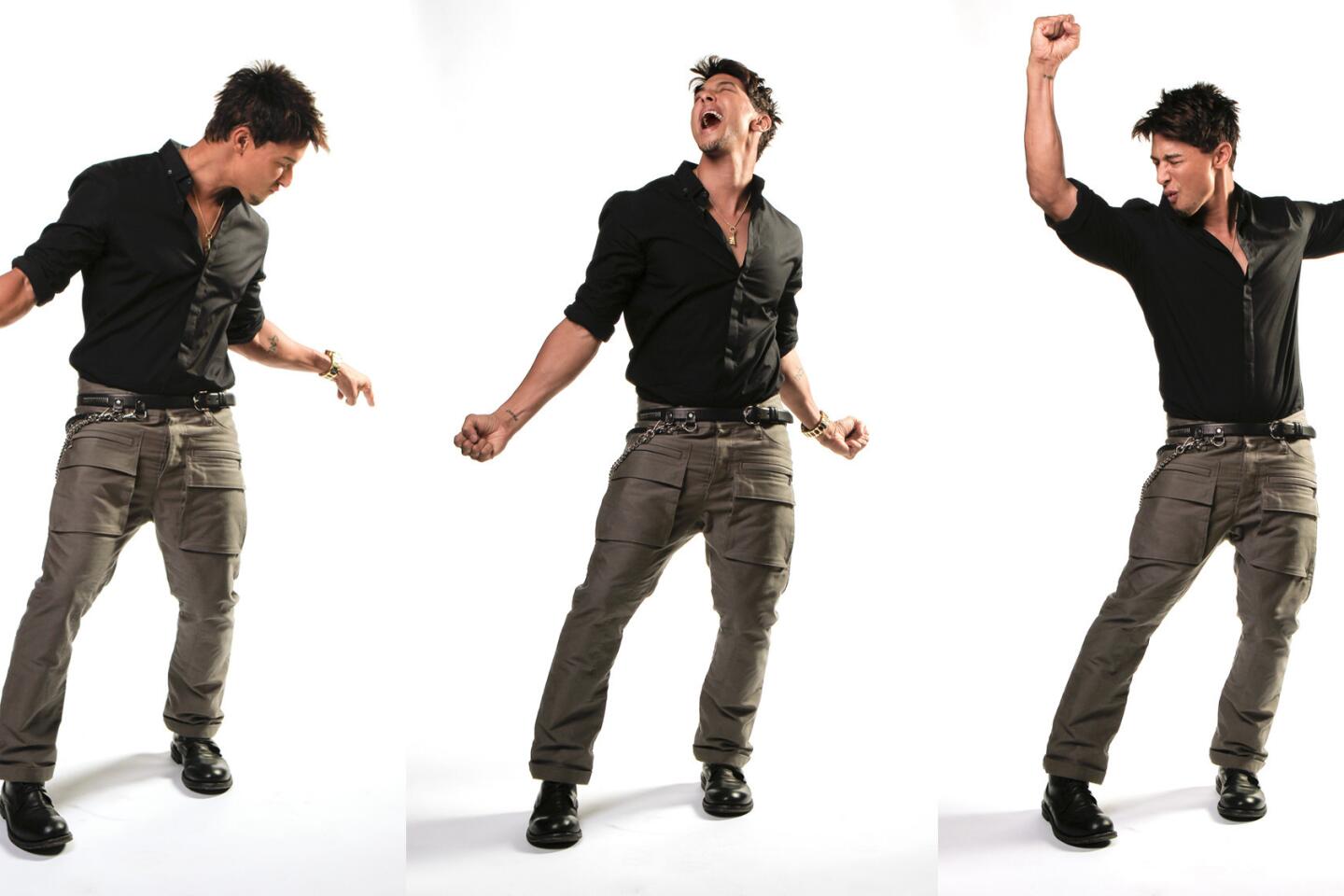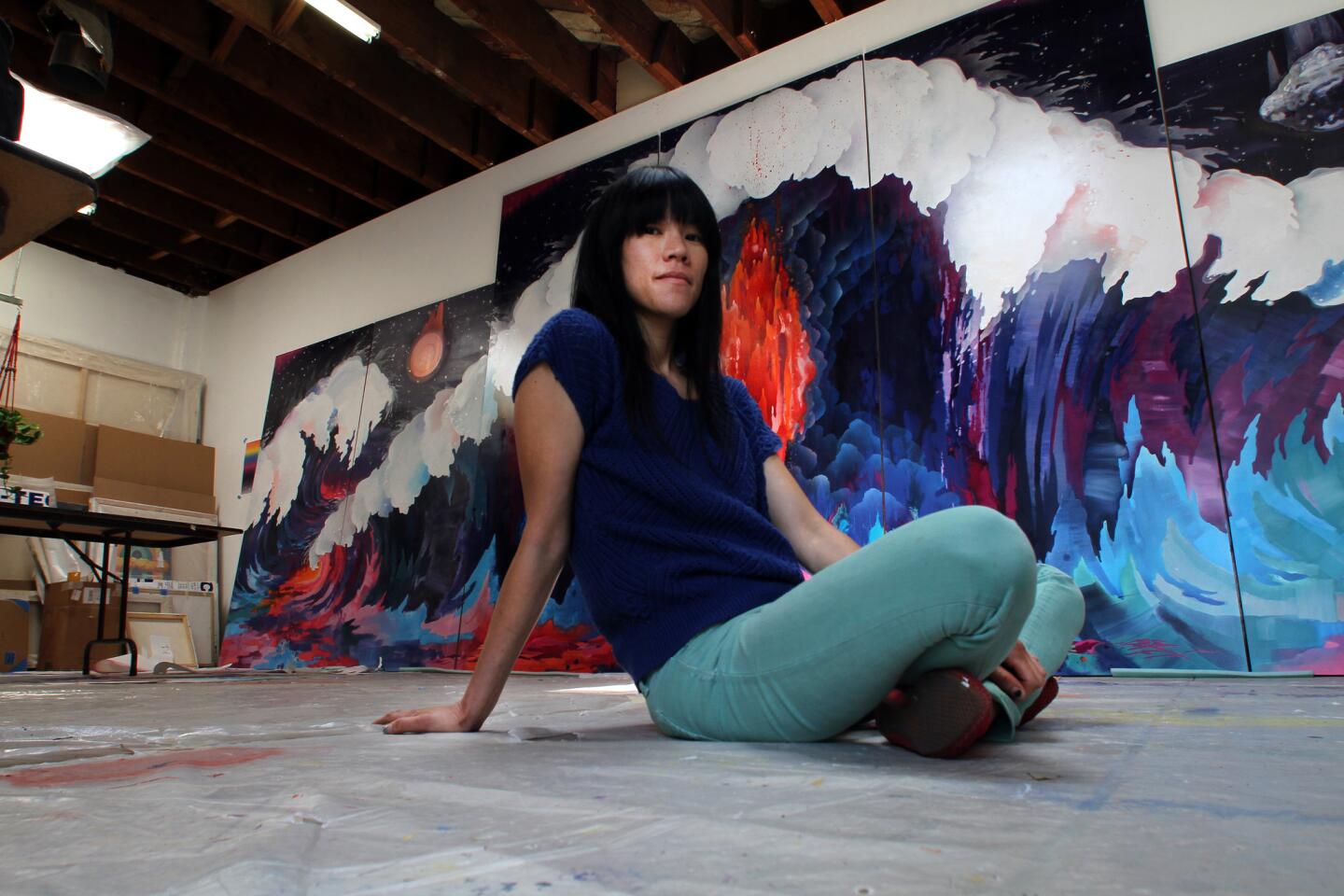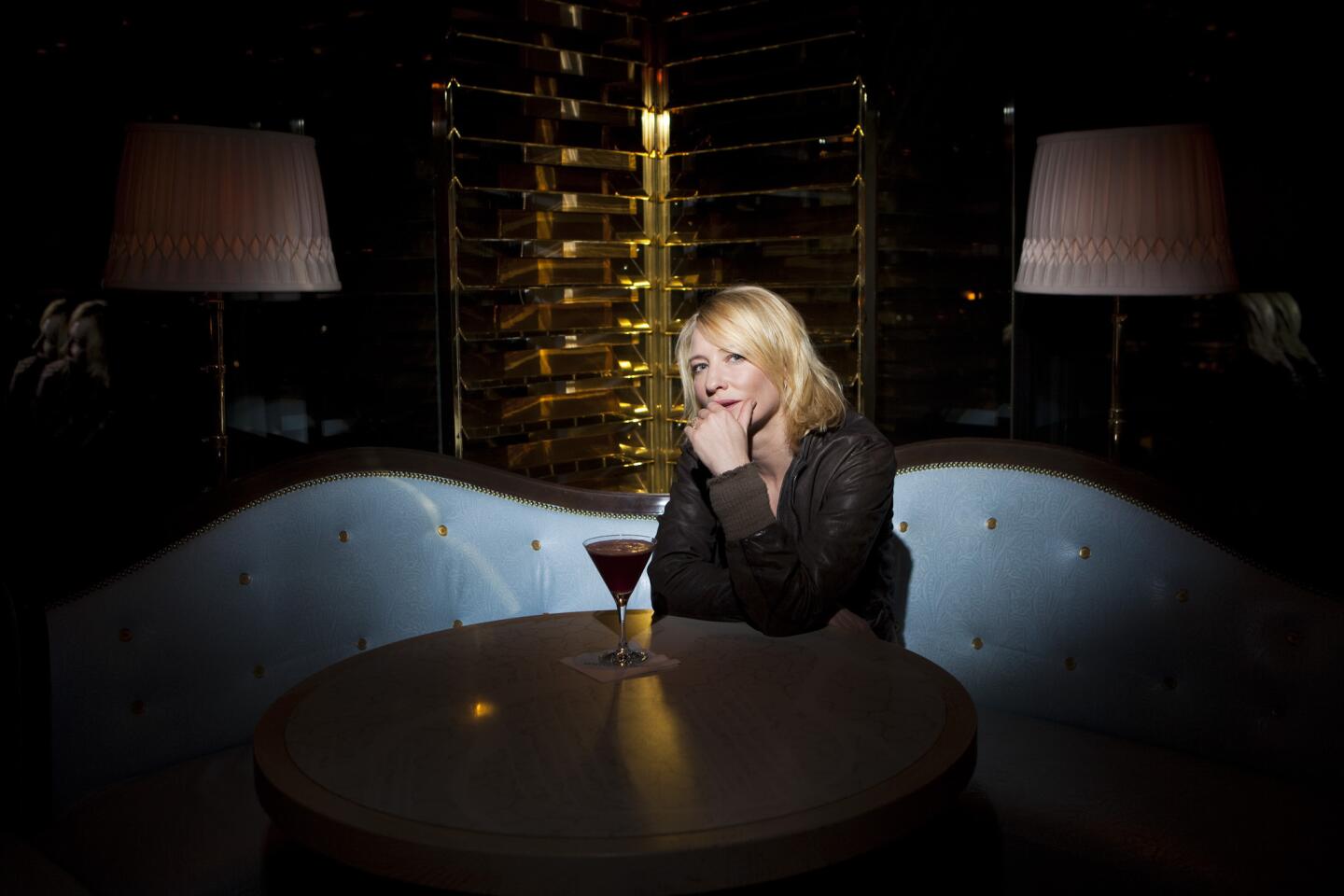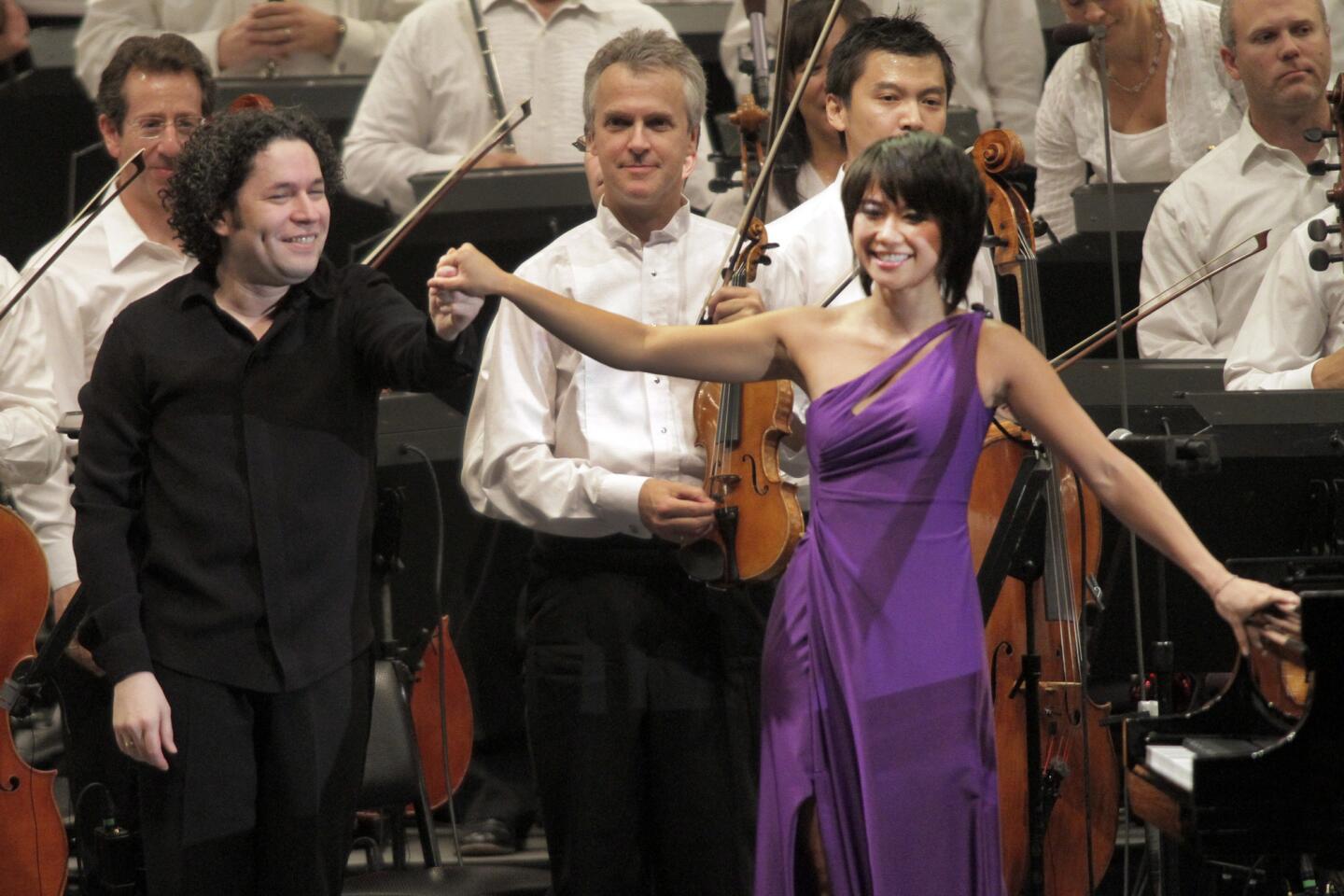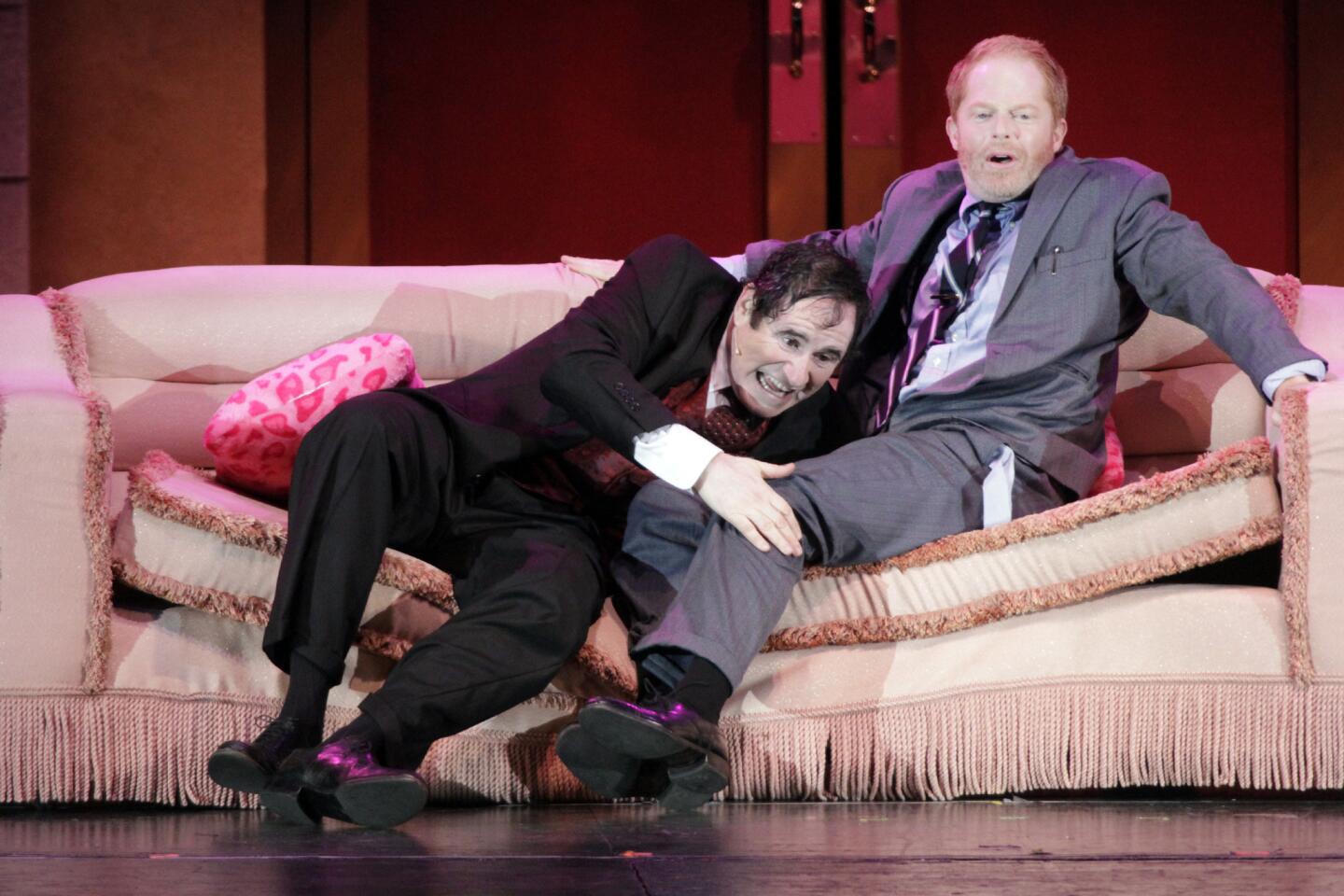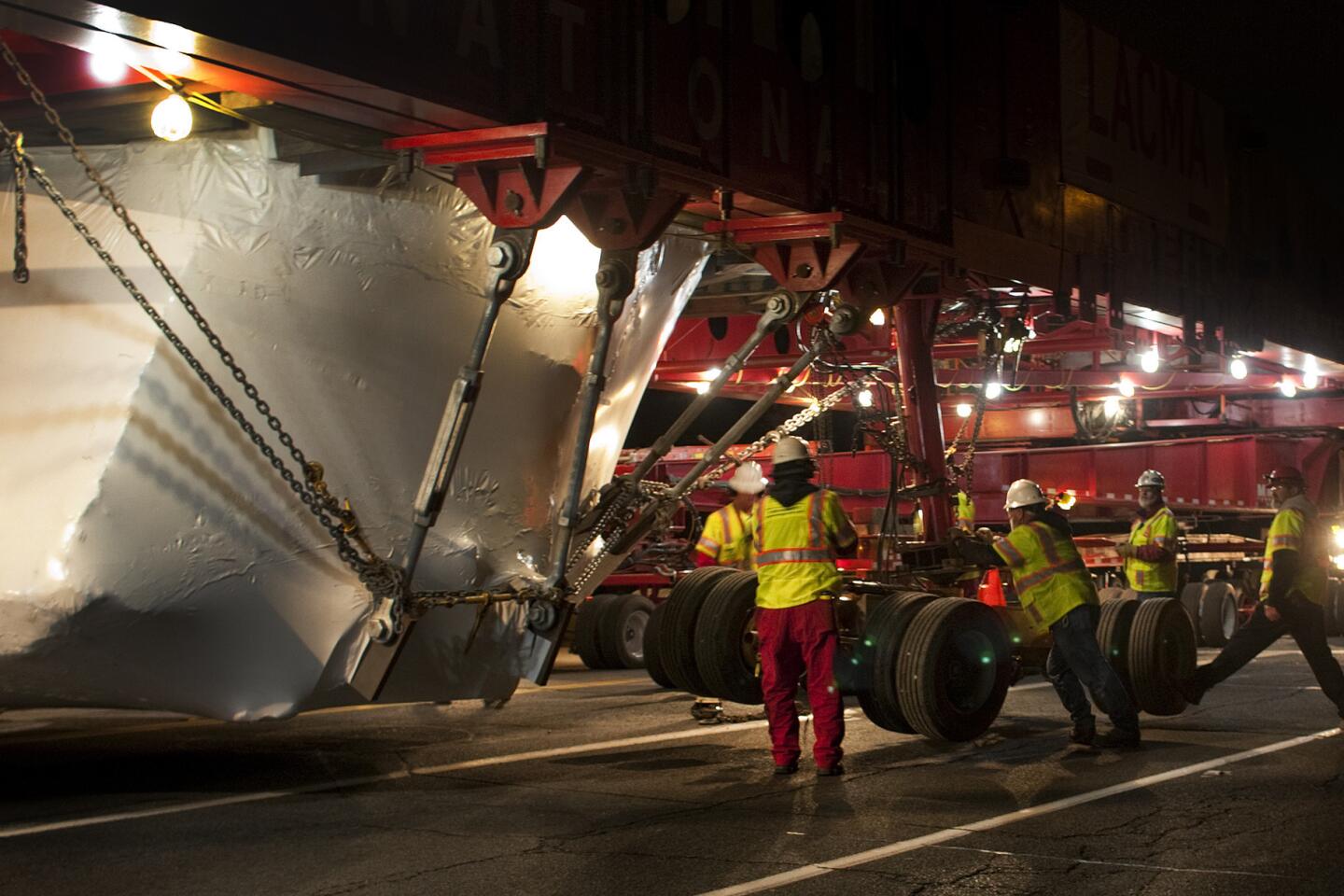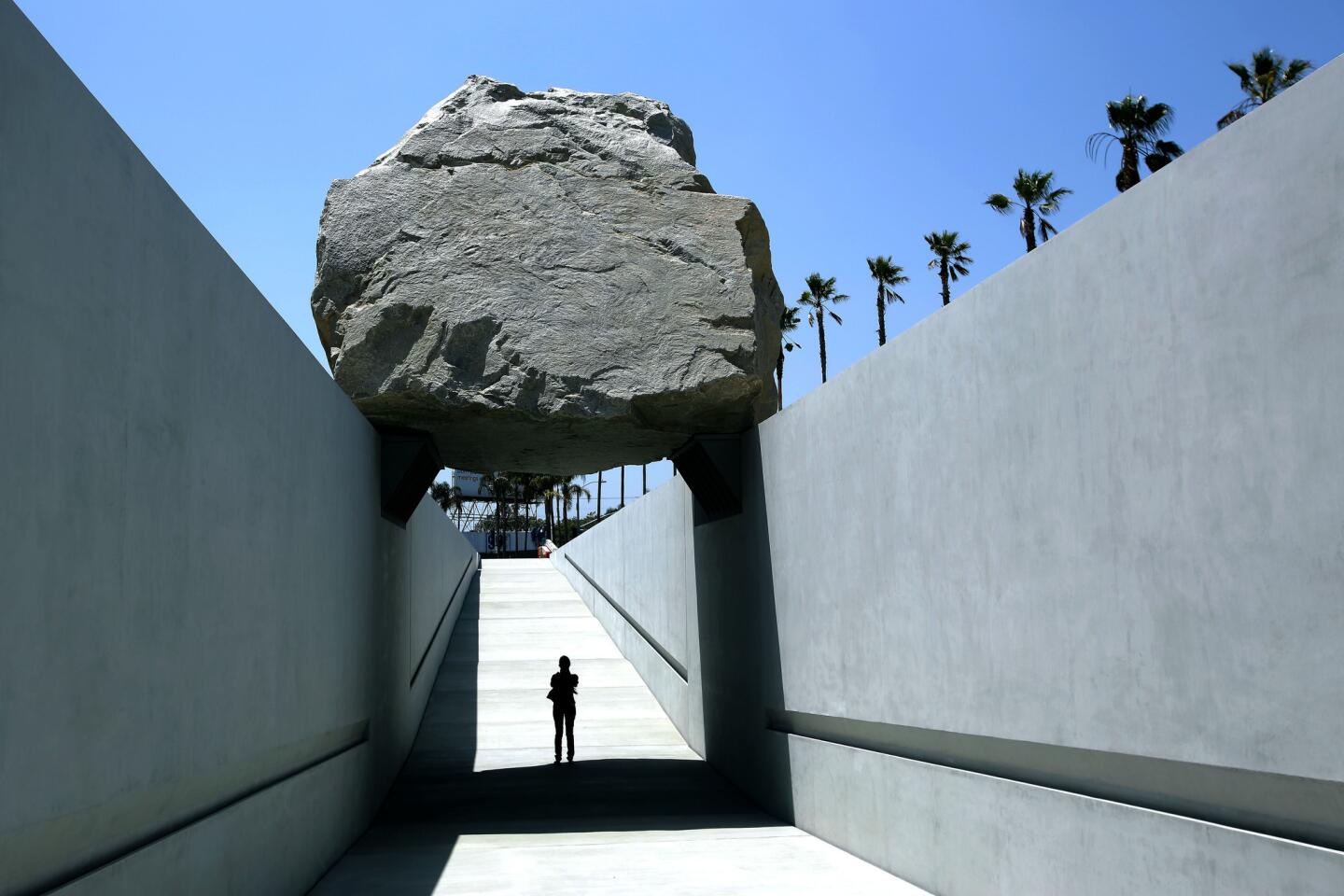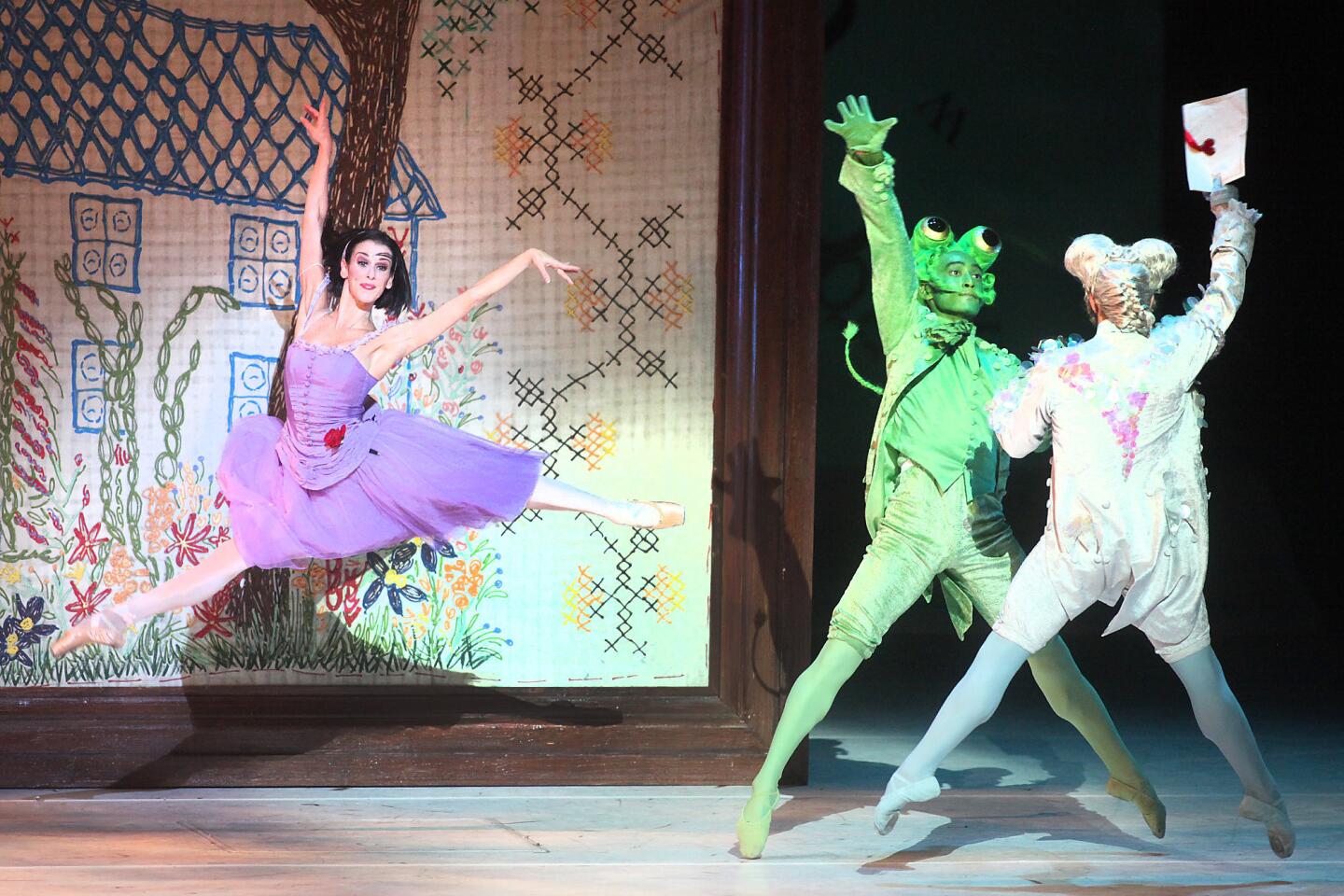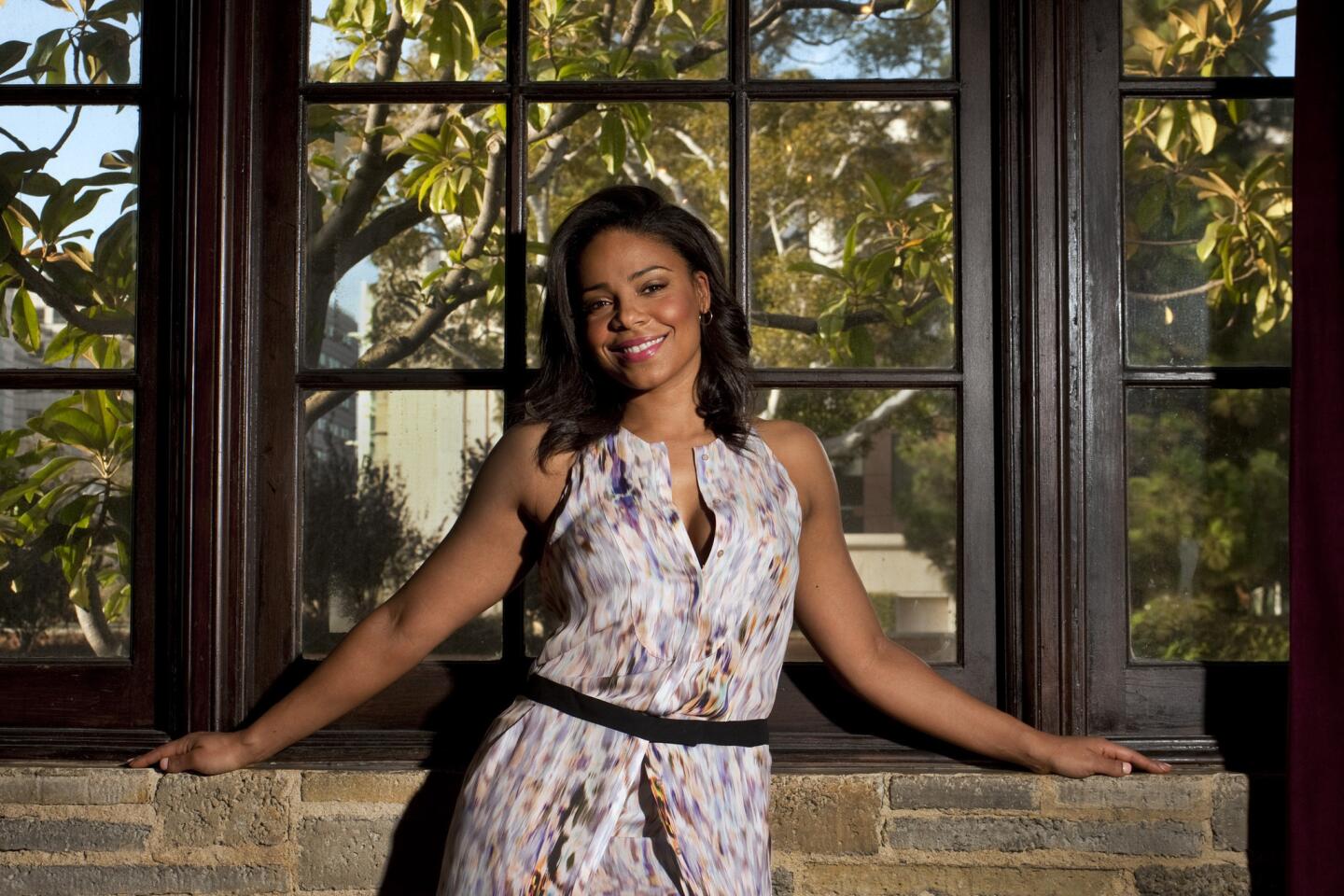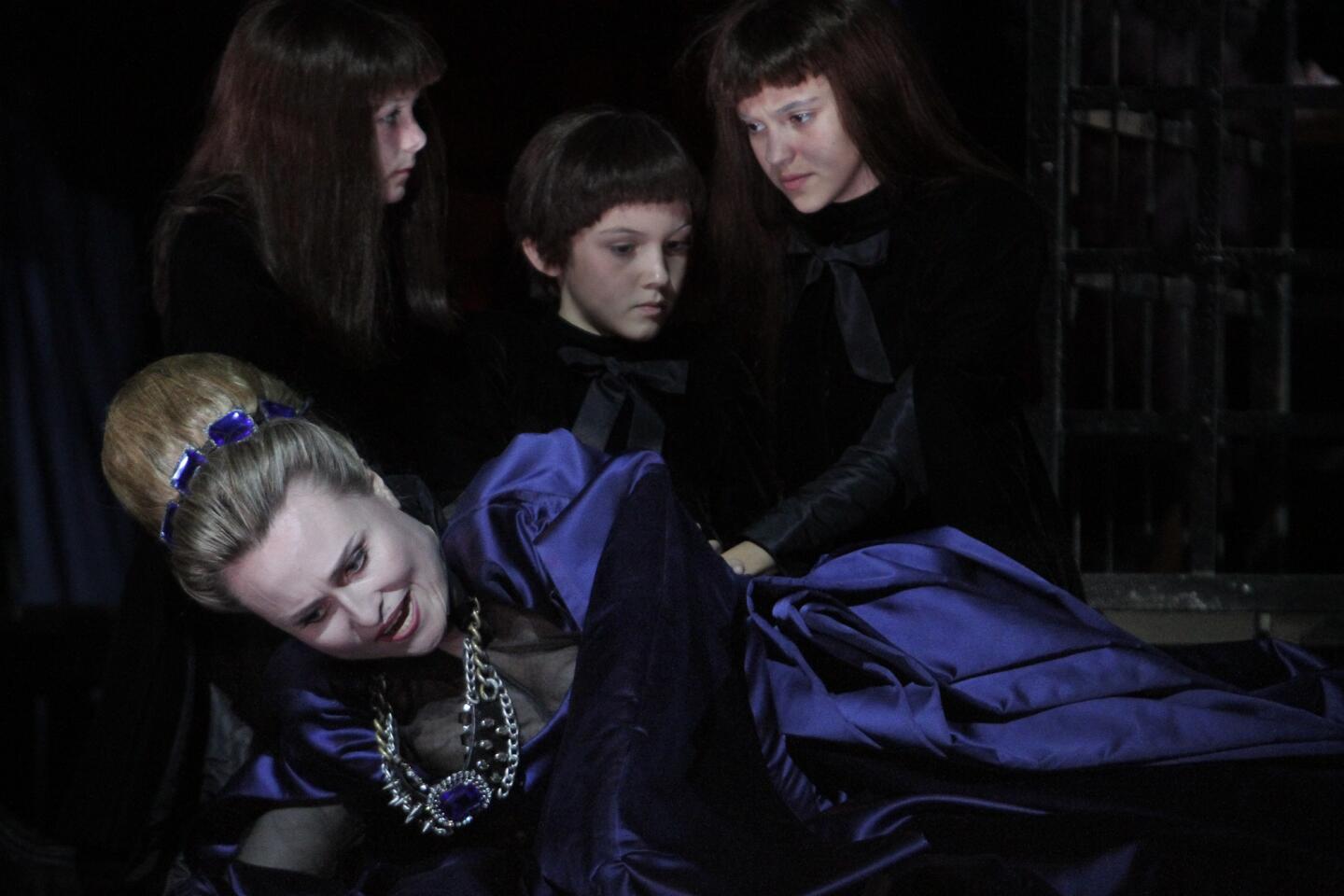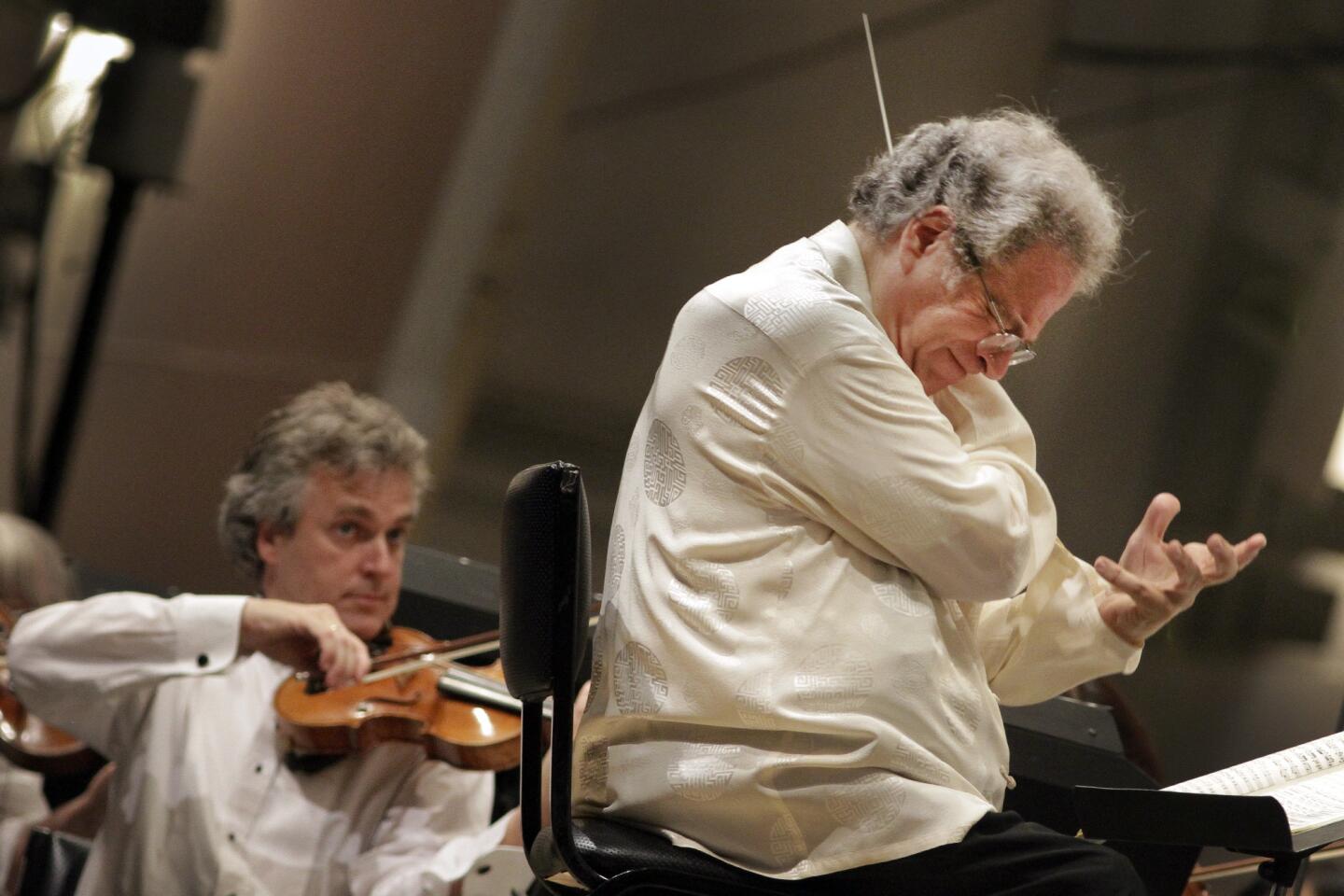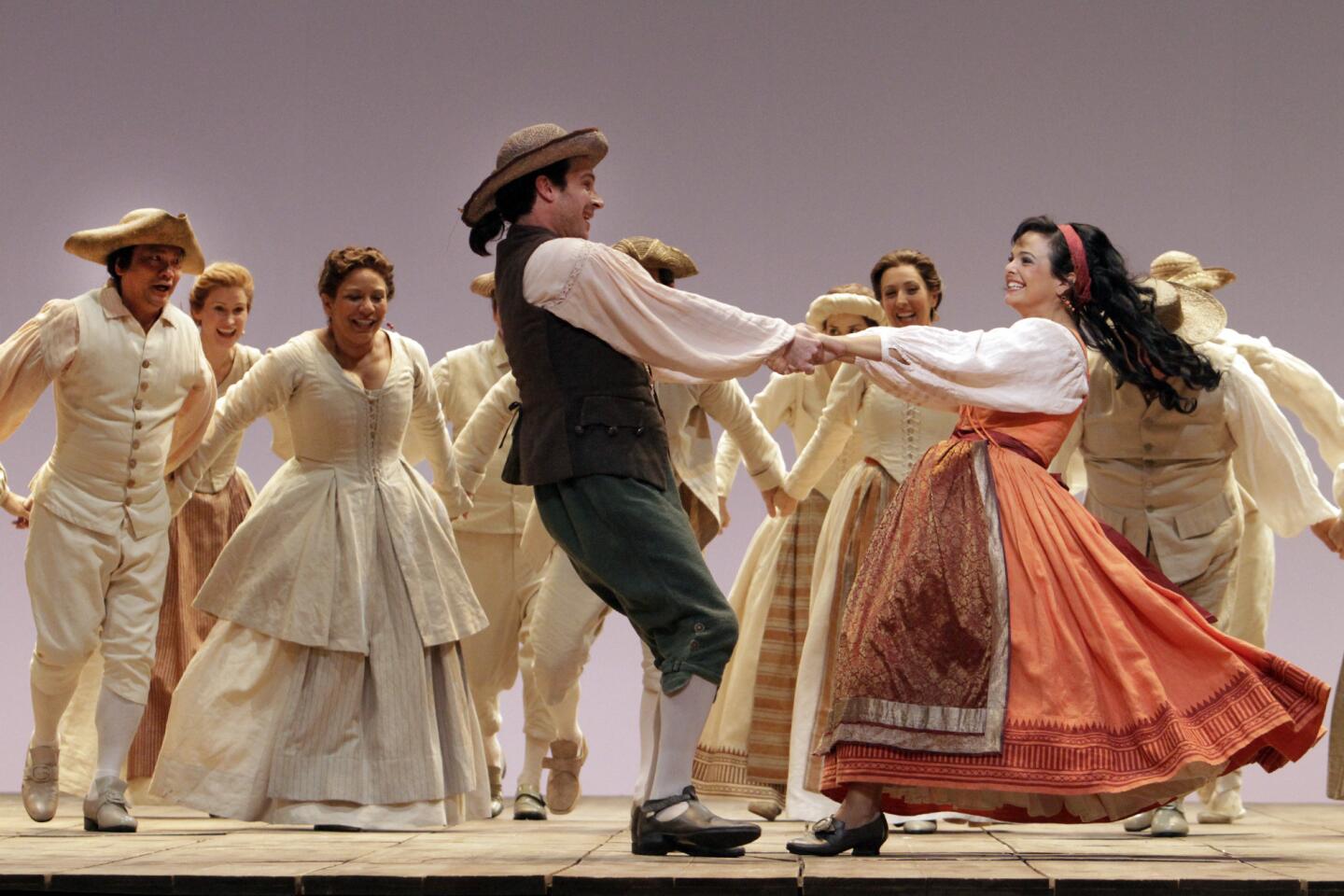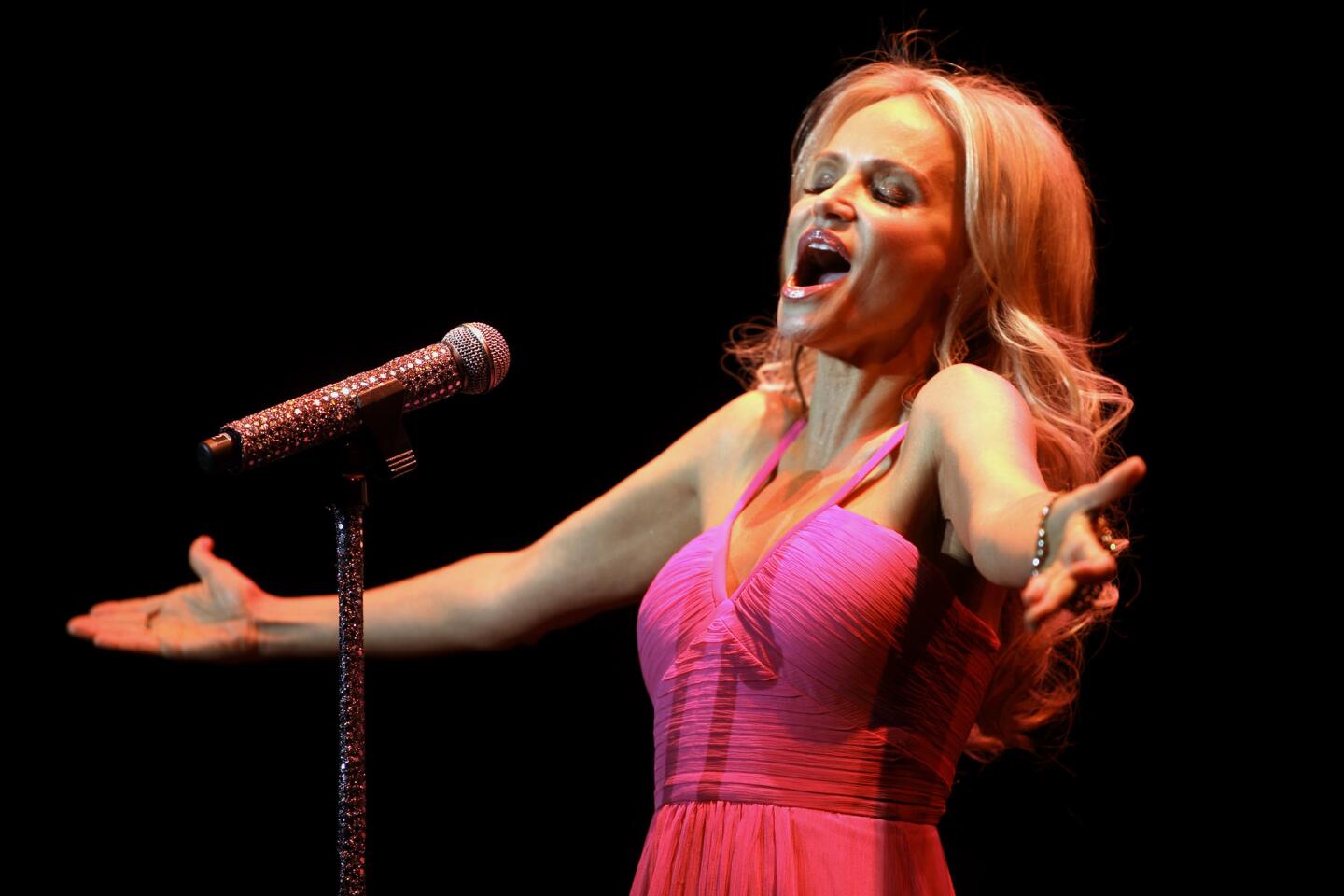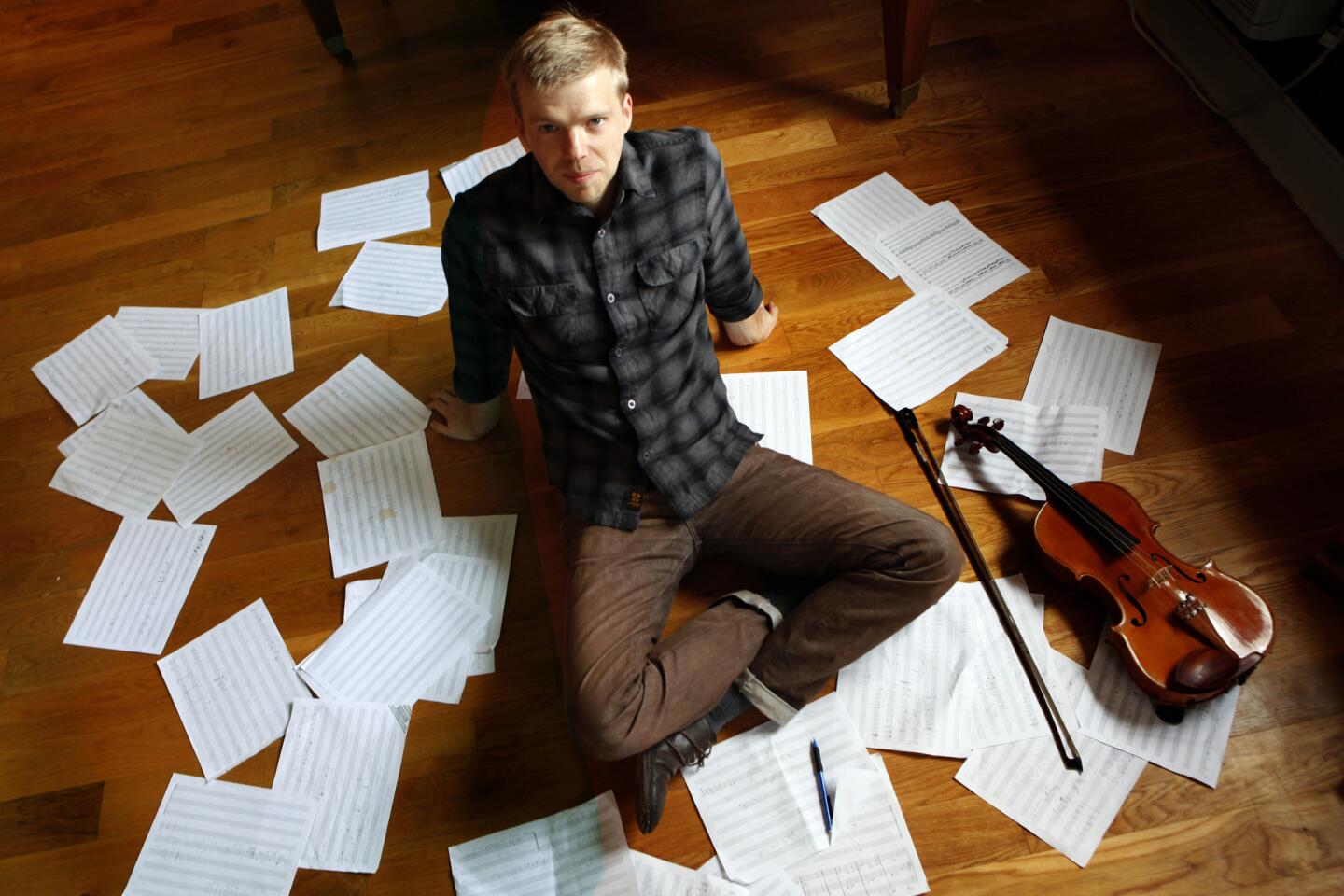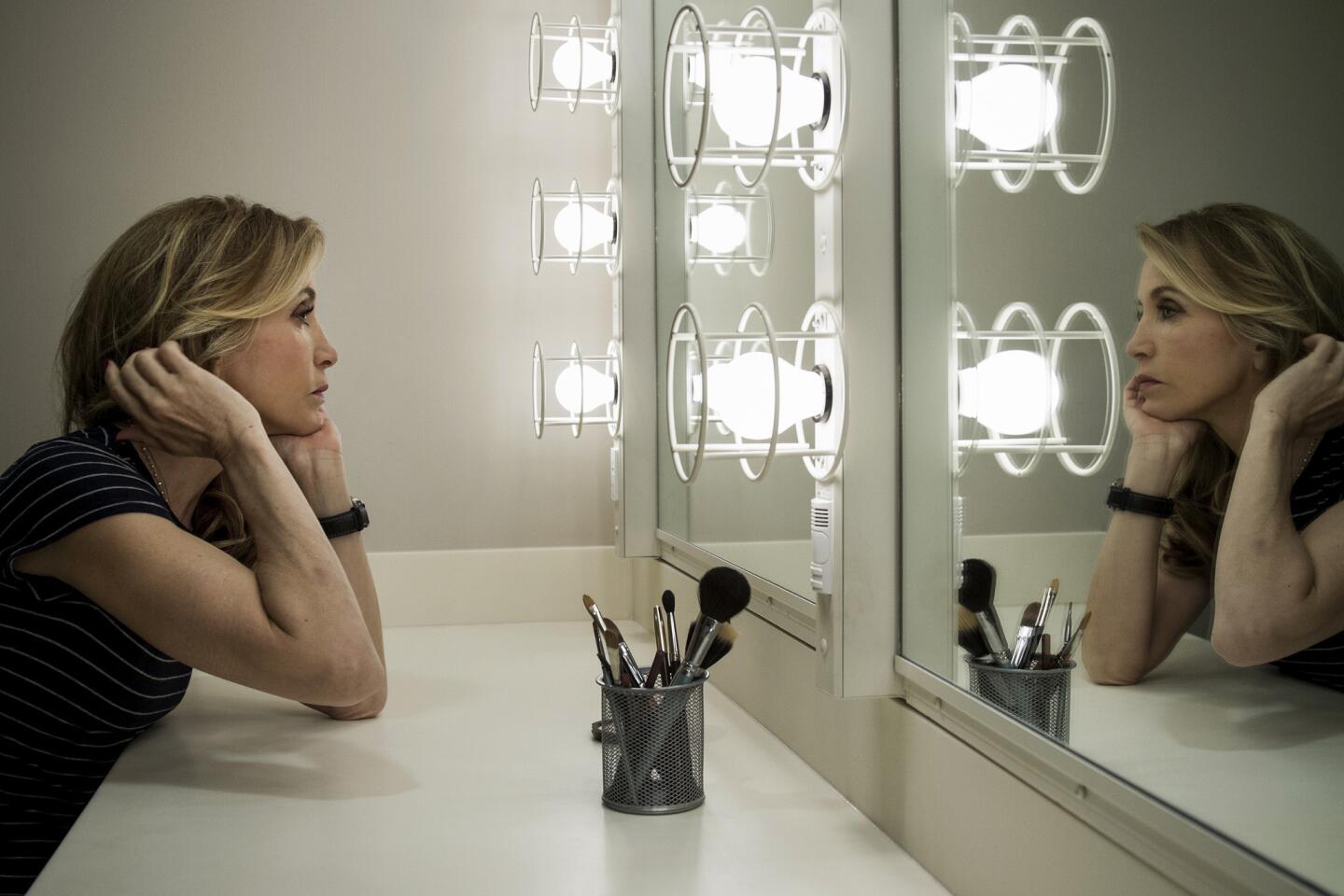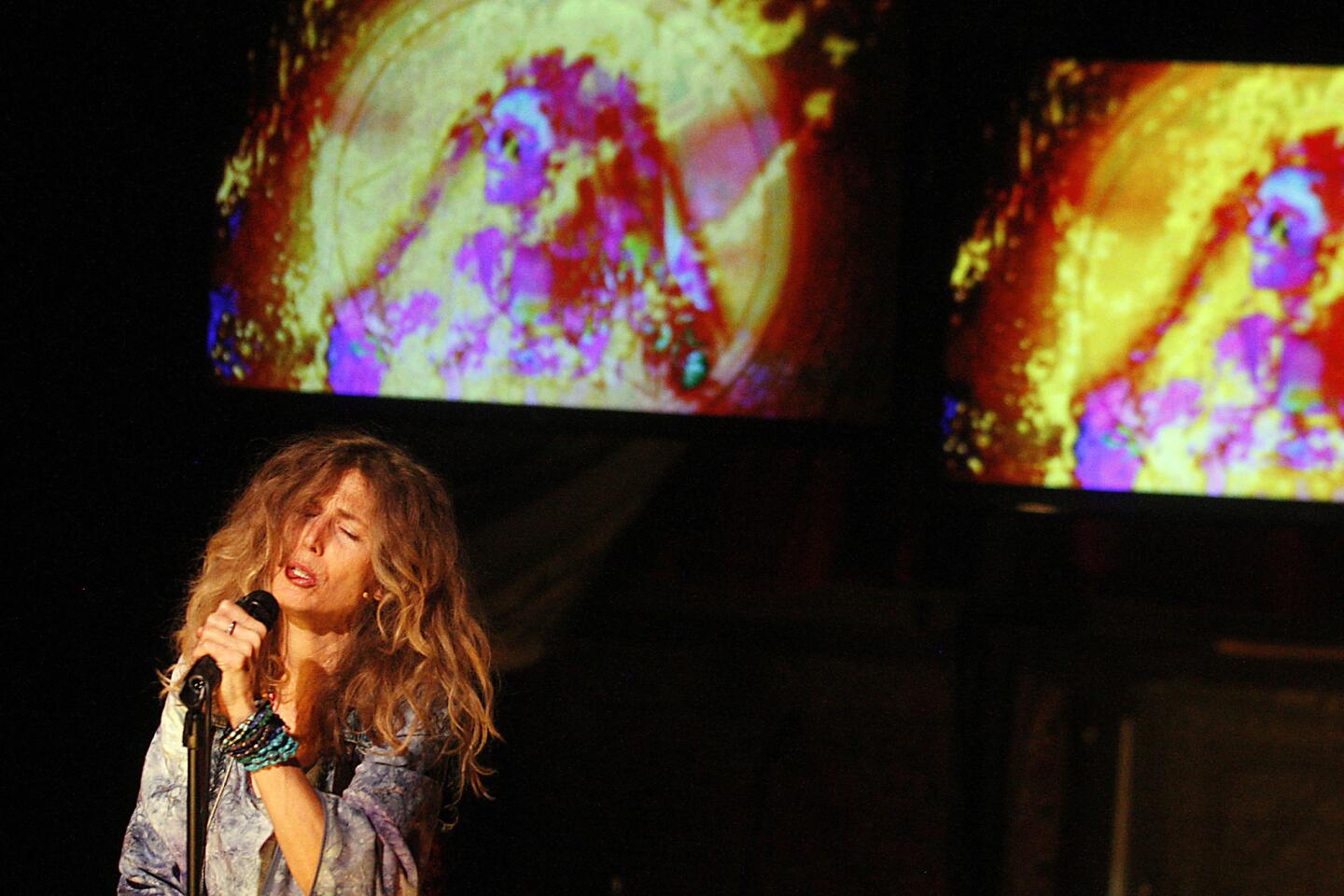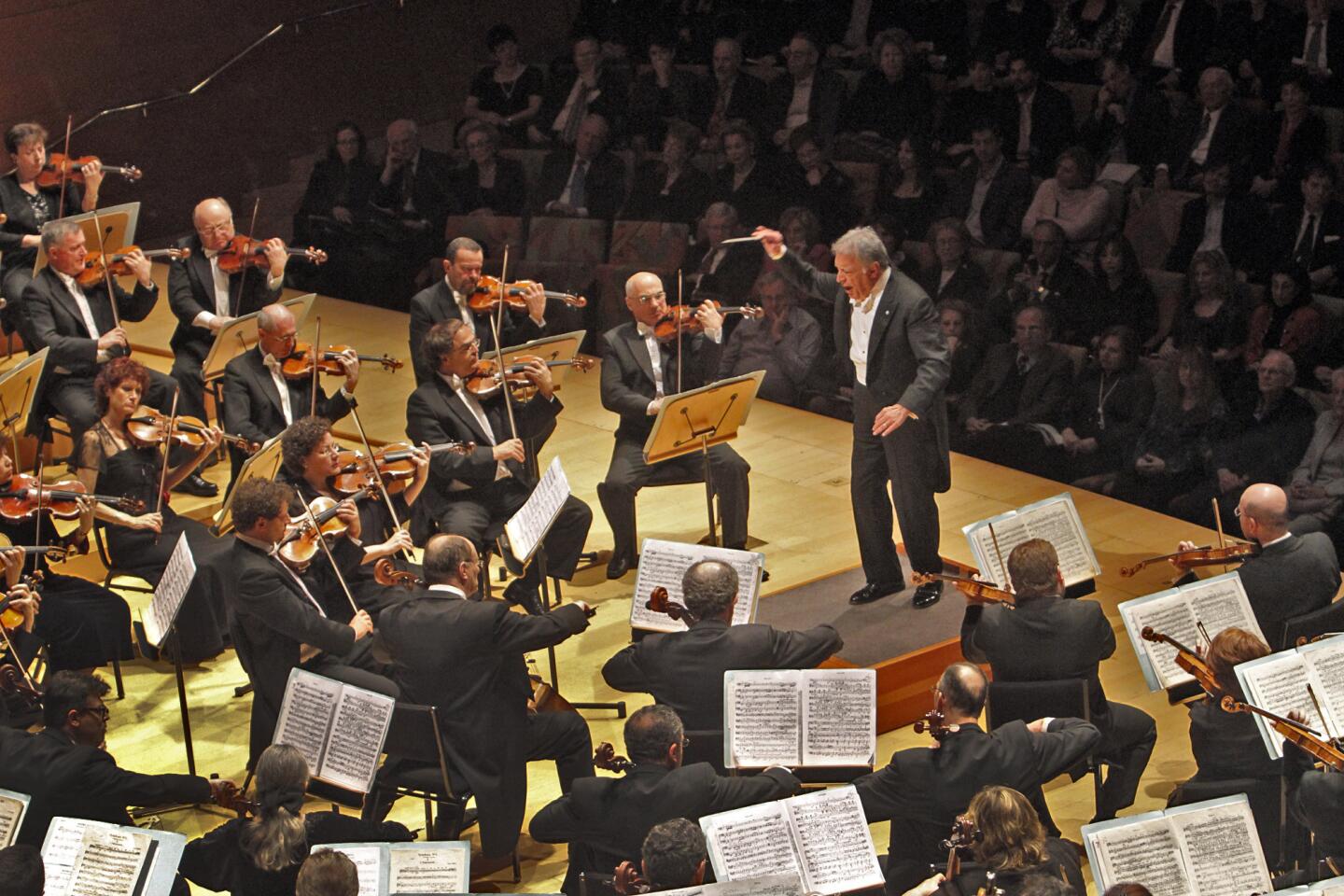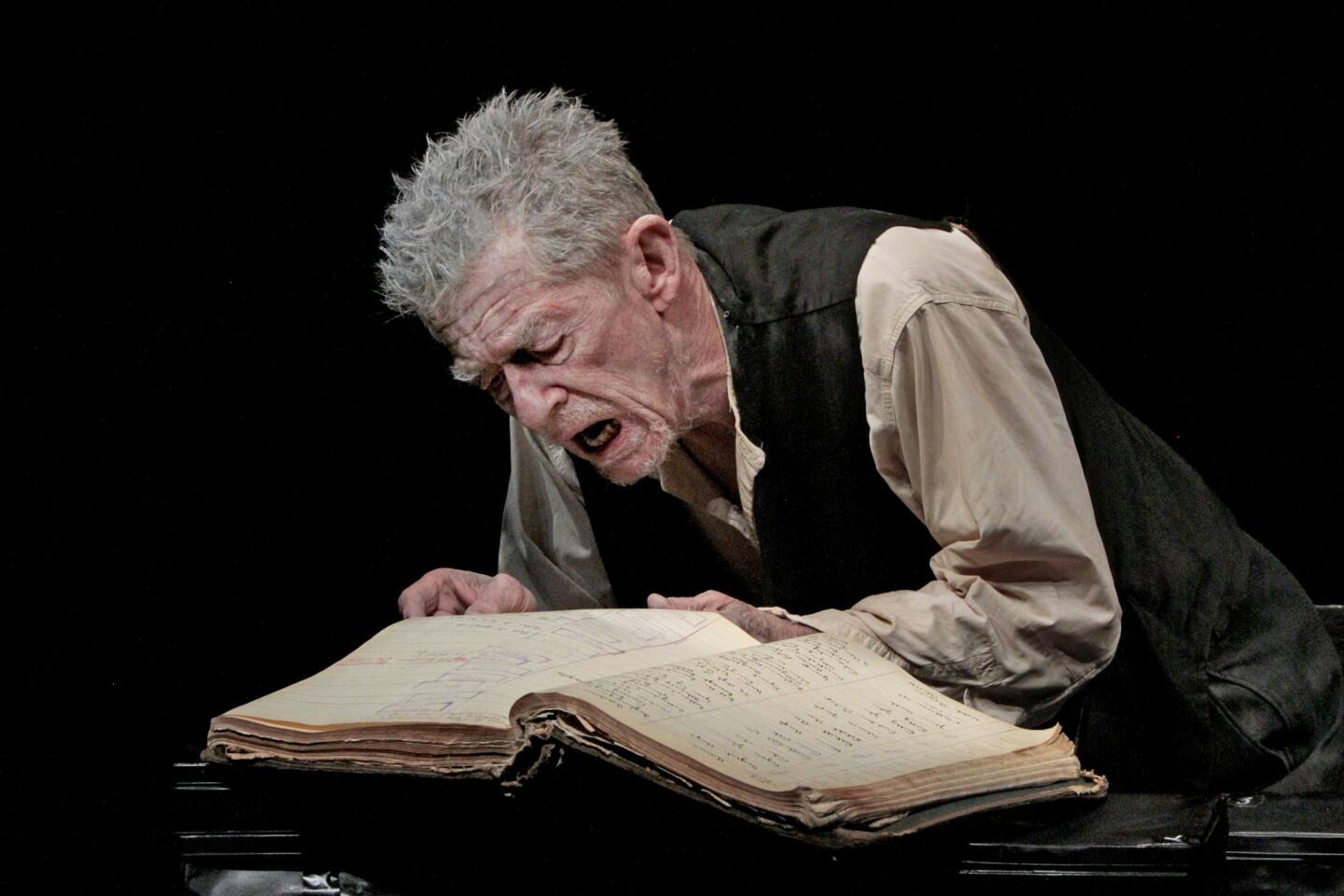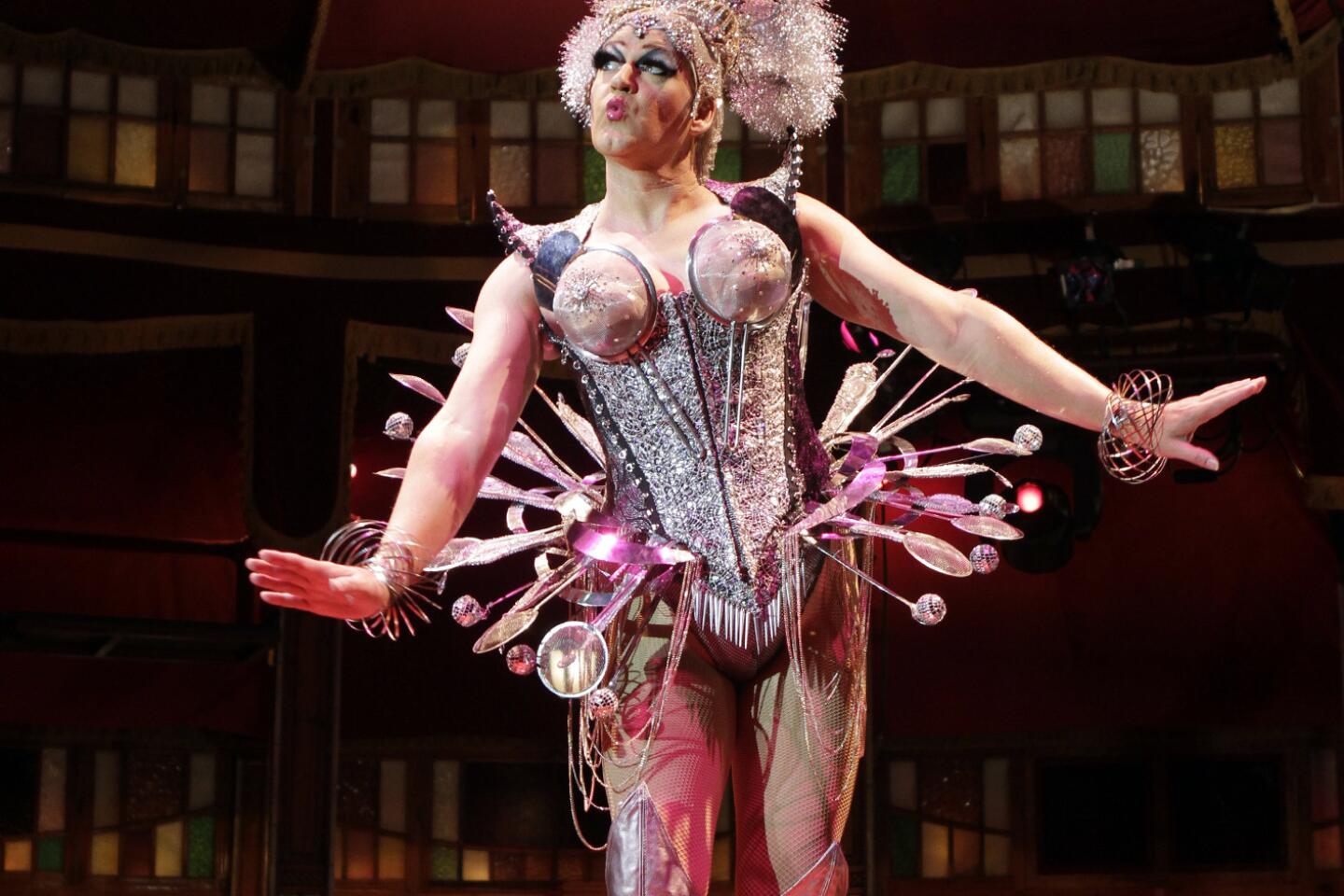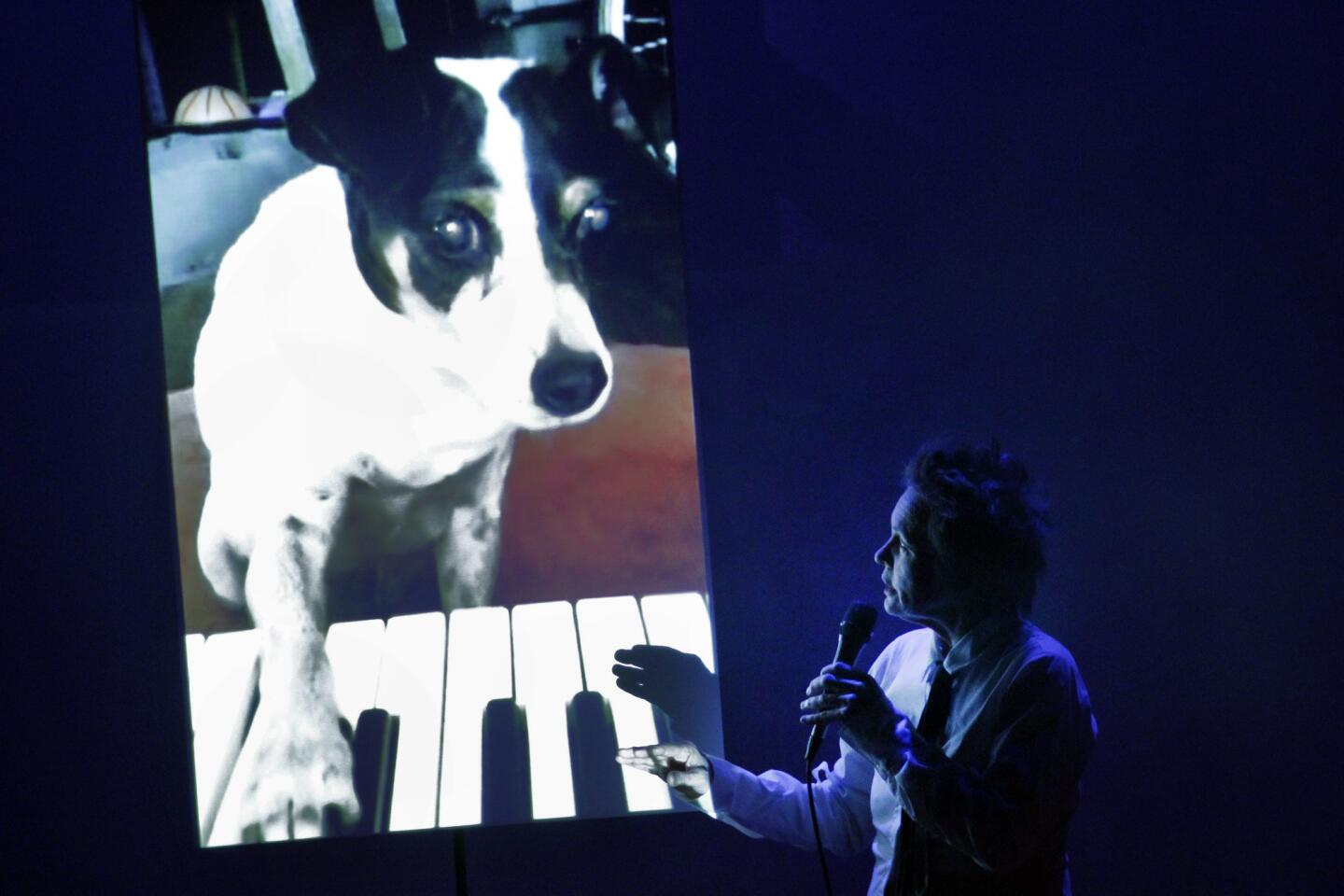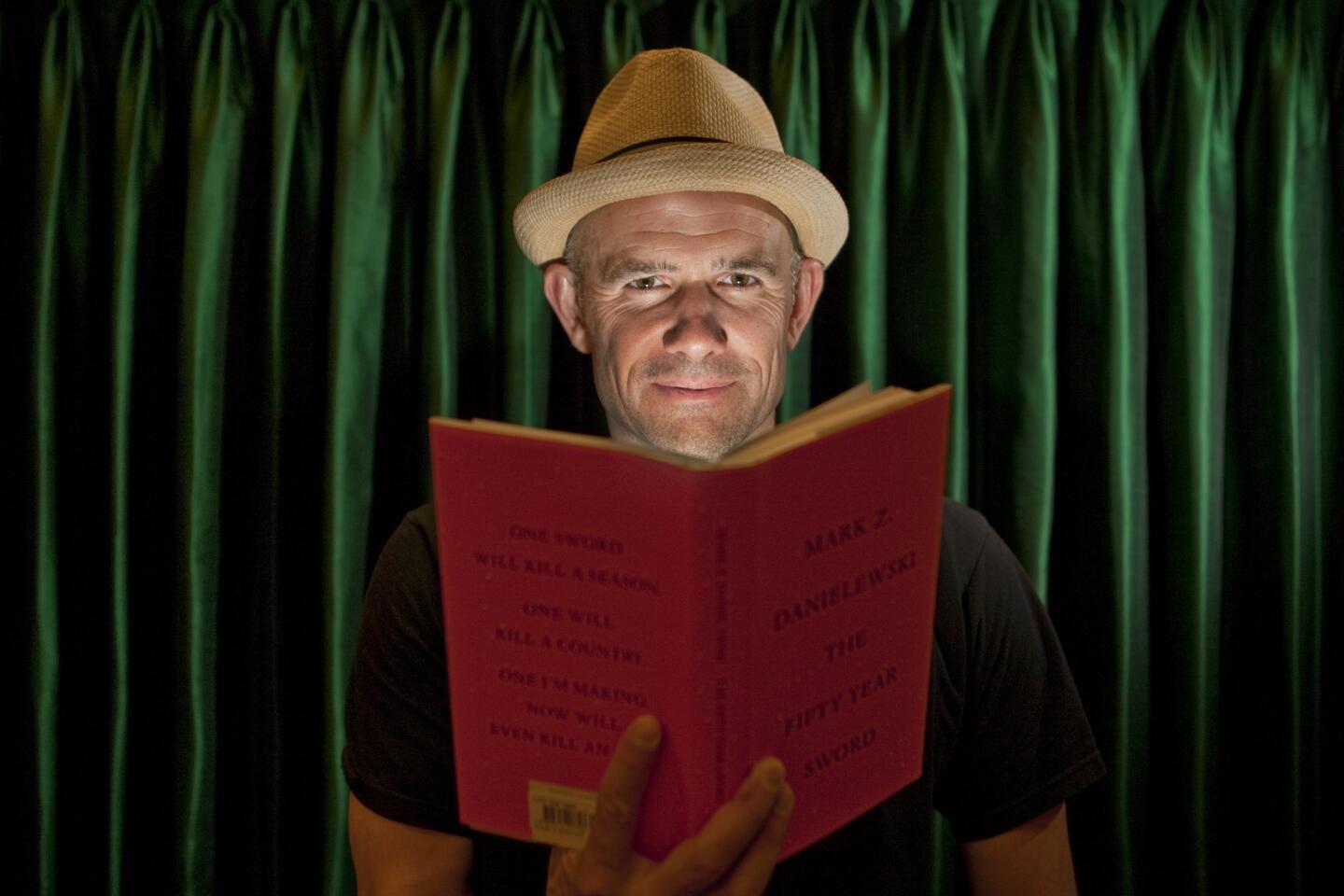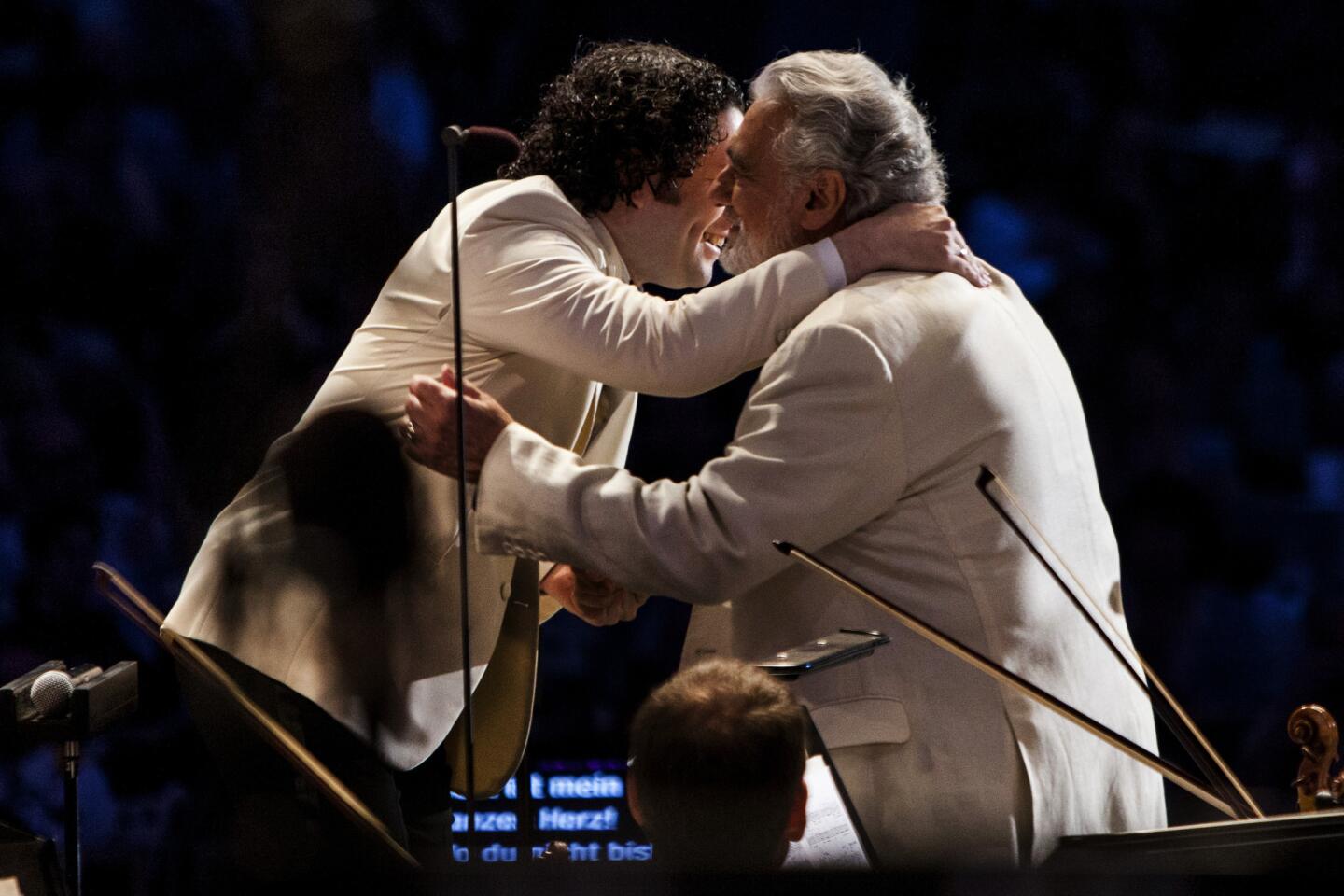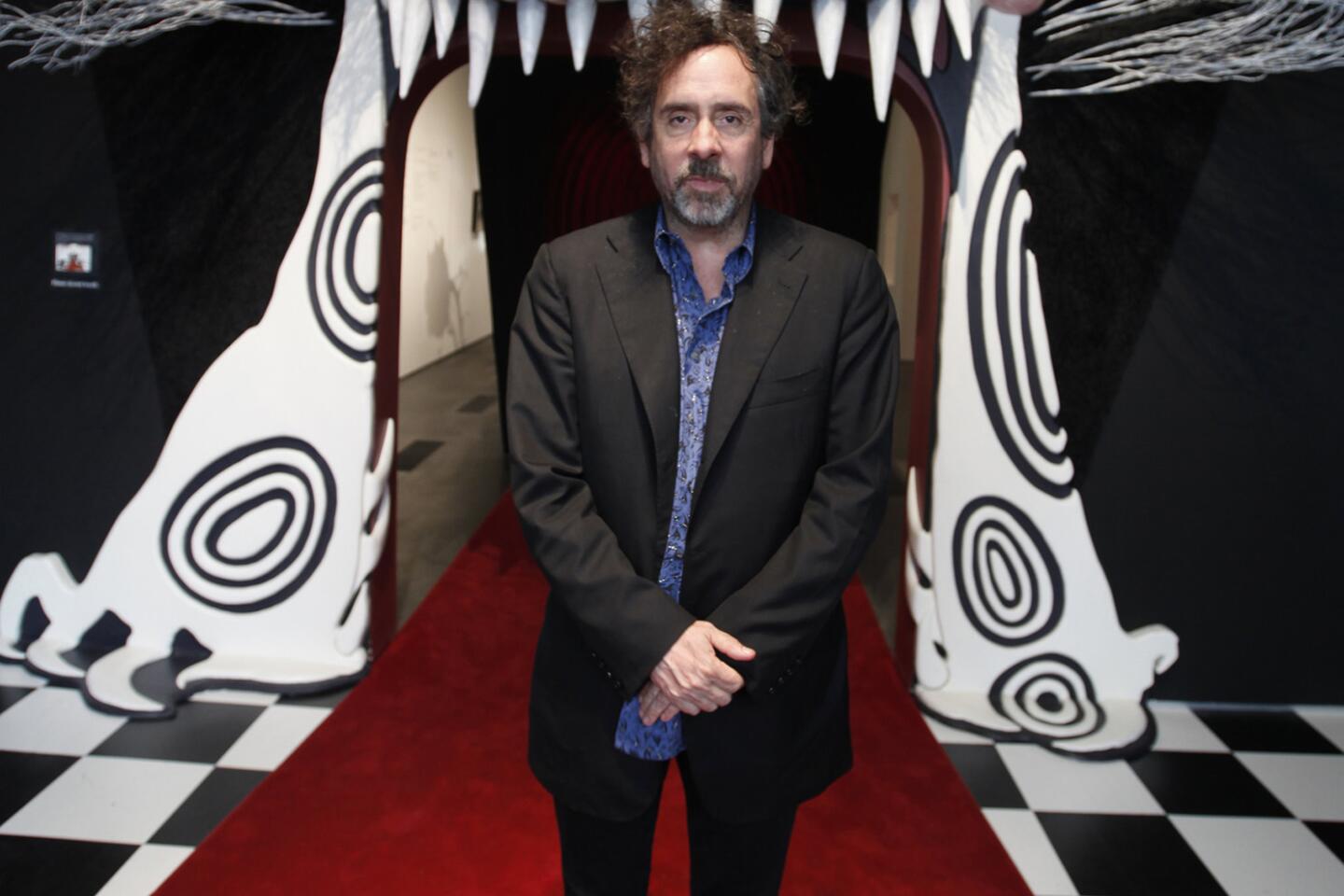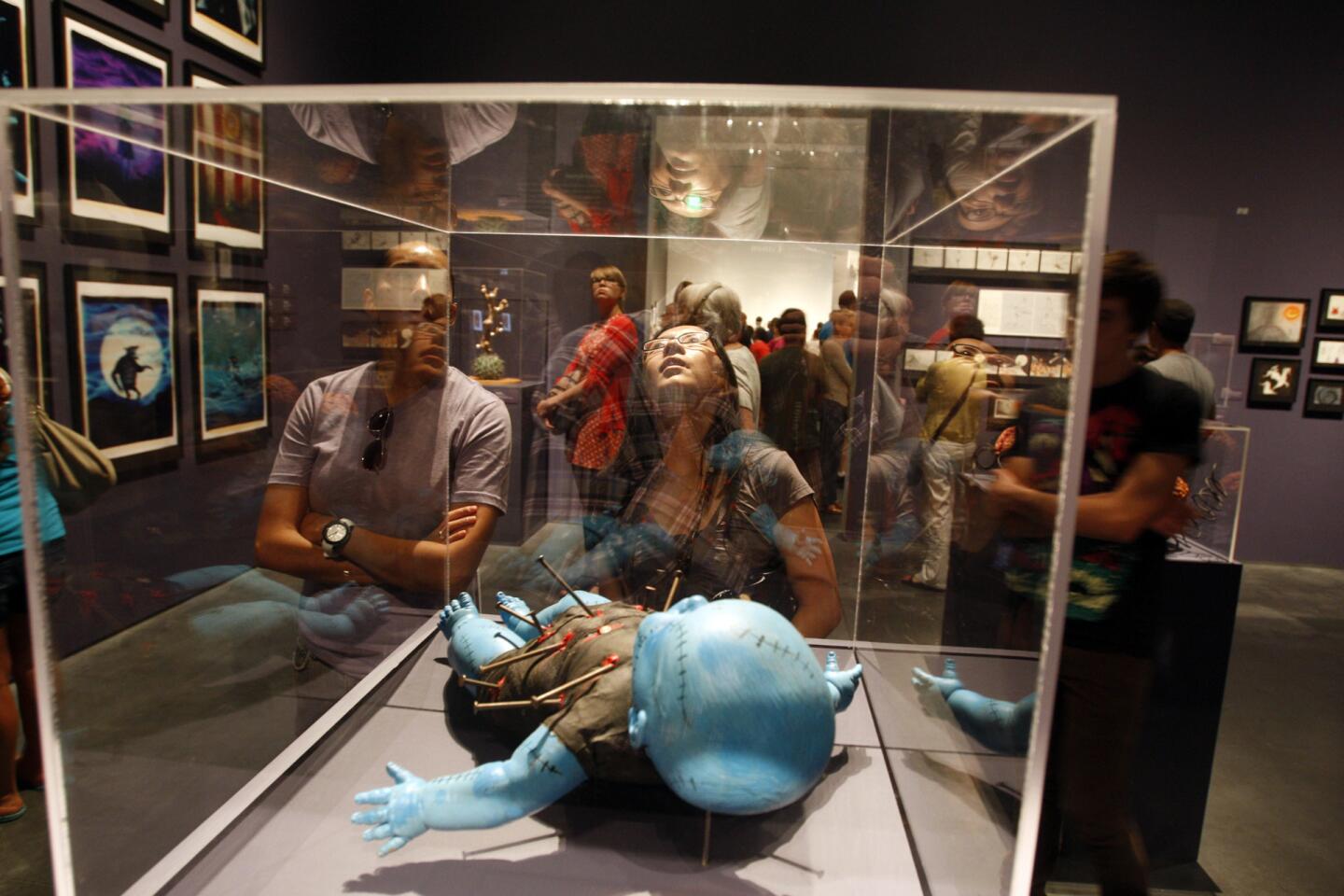Supertitles, once denounced, loom large in modern-day opera
âCelluloid condoms between the audience and the immediate gratification of understanding.â
âMore like watching Playboy TV than having sex.â
Hyperbolic outbursts are not uncommon in opera, but rarely were they so concentrated or, um, vivid.
FOR THE RECORD:
Opera supertitles: A May 19 article about the history of opera supertitles misidentified director Graham Vick as Graham Vickers. â
What riled opera so?
Supertitles. Translations usually projected above the stage have driven directors to issue bomb threats. No less than James Levine rashly stated he would rather die than acquiesce.
Three decades after they were invented by the Canadian Opera Company in Toronto, what was once an anathemaâs anathema is now recognized, even if grudgingly by purists, as the most important change in opera in years.
PHOTOS: LA Opera through the years
The motivation for introducing the titles was to make opera more accessible for audiences beyond the usual suspects. Before supertitles, opera houses could pretend in good faith that their audiences were au fait with enough Italian and German to follow along with such standards as âIl Barbiere Di Sivigliaâ or âDie ZauberflĂśte.â Something like Janacekâs âFrom the House of the Dead,â with its libretto adapted from a Dostoevski novel and then translated into Czech, however, was something else entirely.
Before the 1960s, composers expected to change the language of the text to match the language of the audience. Performers either stayed in their native country or sang the role in the language they learned it. Imagine what would happen today if Tosca replied to Cavaradossi in French? Itâs not as ridiculous as it sounds.
In 1781, Mozart wrote to his father, âthe poetry must be altogether the obedient daughter of the music. Why are Italian comic operas popular everywhere in spite of the miserable libretti? ⌠Because the music reigns supreme, and when one listens to it all else is forgotten.â
Recordings pushed classical music into a new orthodoxy in the 1960s and most operas were sung in their original language. In the English-speaking world, only English National Opera and the Opera Theatre of St. Louis routinely produce all their shows in their audienceâs native language. For everyone else, the sanctity of the score is it.
One of the biggest obstacles in the development of supertitles was working out exactly how to display the text. The light bulb went on when John Leberg, the Canadian Opera Companyâs director of operations in the â80s, saw an Italian musical with projected scenery. On Jan. 21, 1983, using a typewriter, 1,000 glass slides and three projectors, the COCâs production of Straussâ opera âElektraâ became the first in history to be titled.
The opera house trademarked the invention as âsurtitlesâ to honor Canadaâs bilingual heritage (sur means âon top ofâ in French).
PHOTOS: Arts and culture in pictures by The Times
âSurtitles caught on like wildfire, and within six months over 100 companies adopted it,â said Gunta Dreifelds, a member of the COC title development team. The titles spread first in North America, then to other English-speaking countries, such as England and Australia, and then across Europe.
âNow itâs expected. You canât put on an opera without surtitles.â
David Smythe of Perth, Scotland, has been going to the opera for nearly 45 years and remembers well what it was like before title ubiquity.
âIf the opera was not in English, you really had to do some homework â characters and story before setting foot in the opera house. Nowadays, anyone can turn up and follow the story. I feel that any distraction is more than made up for in a greater understanding of what is happening onstage.â
Titles arenât just for those new to opera. Beverly Sills, the soprano, was director of New York City Opera in 1983 when it became the first American house to use titles. She told the New York Times, âI must have seen âBohemeâ 600 times, but I got the biggest kick the first time I saw it with supertitles and learned that Marcello was painting the Red Sea.â
In the â80s, the big rush was on for companies to have equipment installed and get some text â any text â projected. As a relatively young company, 27-year-old Los Angeles Opera has always had them.
At some companies, poor translations and technical glitches led to unintentional laughs. In the early days, a Houston Opera production of âToscaâ had Toscaâs line âMa falle gli occhi neri! (But make the eyes black!)â translated as âGive her black eyes.â Even the most committed soprano would find it difficult to fly into an indignant rage while the audience is howling with laughter.
The Met was late to the titling party partly out of stubbornness (Metropolitan Operaâs music director Levine and general manager Joe Volpe hated them) and partly because the 3,800-seat theater was too big for projections to work properly. The $1.25-million solution was to install individual screens with the dialogue projected (or turned off for purists). Seat back titling premiered in the 1995 season-opening production of âOtelloâ featuring PlĂ cido Domingo. Santa Fe Opera and La Scala also use seat back titling.
Whatever the projection method, space is limited and what the translation leaves out is as important as what remains. In act finales, when the principal characters are all singing as well as the chorus, providing titles for everything would be massively confusing, not to mention unnecessary. At that point, everyone is usually just restating their feelings in capital letters.
Said Dreifelds, âIn the case of [multiple lines] I like to highlight whoeverâs prominent. Usually the chorus. Often itâs repeated for emphasis, so you donât want to be beat over the head with âIâm leaving, Iâm leaving. Iâm leaving. Iâm leaving.ââ
Now that titles are standard, there is room for more philosophical considerations, the most inflammatory of which has been: Should native-language productions also be titled? In the beginning, most houses titled only foreign-language productions, including native-language operas as audiences demanded them.
When English National Opera surveyed its audience in the early 2000s, 80% wanted titles. The announcement of their introduction was vehemently opposed by critics, directors and conductors. English National Opera, perhaps aware that critics werenât the ones buying tickets, introduced titles anyway in 2006. Director Graham Vickers seems to have at least postponed his bomb threat. For the moment, the Coliseum stands.
The main bone of contention for native-language titles was that if singers knew the audience could read what they were singing, they wouldnât work so hard on their diction. Dreifelds, who has titled more than 200 operas, explained, âEven if you comprehend the diction, thereâs a delay factor. The idea [with titles] is that you take in the words and return to the stage as kind of a fluid operation. You donât realize youâre understanding, but you are.â
An unintended consequence of titles is that now that the audience can read all the details, including them or not is an additional stylistic decision for a director. Does a hat or eye patch in the libretto mean the character is obligated to wear one? âSometimes I think directors wish [the titles] would say something else. You want to put your own stamp on [the opera] and sometimes surtitles can constrain you,â said Dreifelds.
After 30 years, the Canadian Opera Companyâs original goal of expanding the standard opera repertoire, particularly in North America, has been achieved. Presenting operas originally written in Czech, Hungarian, Polish or Russian is as easy as one in Italian. Dvorakâs âRusalka,â now considered a repertoire staple, premiered in 1901, but wasnât heard outside of Eastern Europe until the â80s. Since 2011, it has had 49 productions, 12 of them new.
It seems unthinkable now to attend an opera without titles. For those who view them as the devilâs handiwork, there is a place to go for title respite: Bayreuth, Wagnerâs shrine to opera in Germany, where they also donât believe in armrests or air conditioning.
More to Read
The biggest entertainment stories
Get our big stories about Hollywood, film, television, music, arts, culture and more right in your inbox as soon as they publish.
You may occasionally receive promotional content from the Los Angeles Times.
